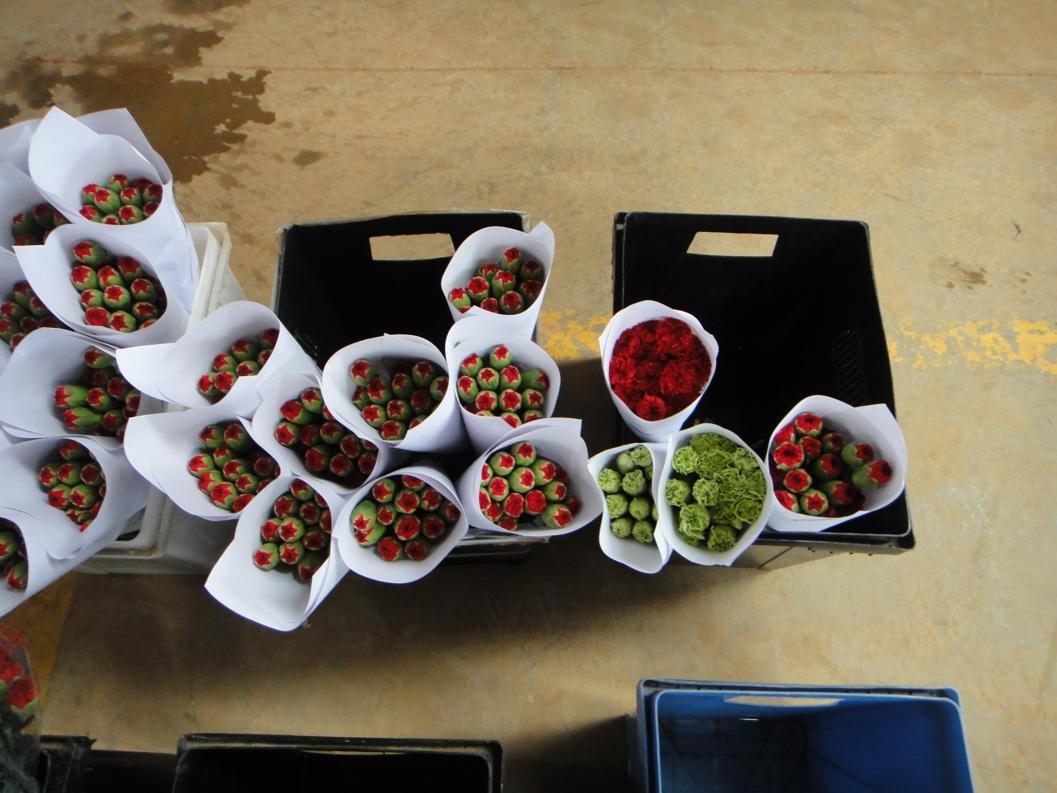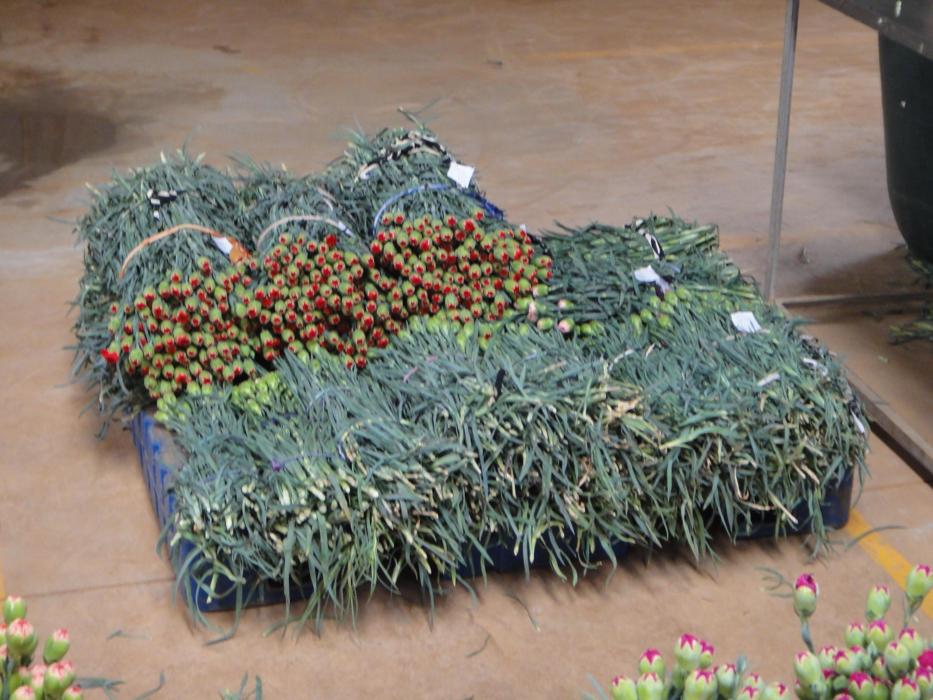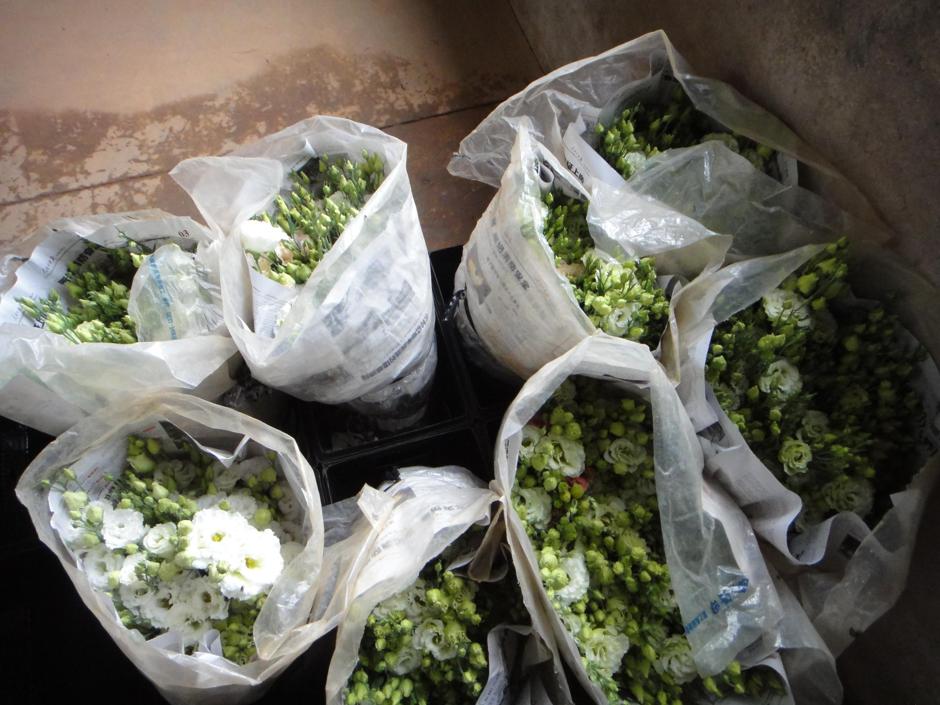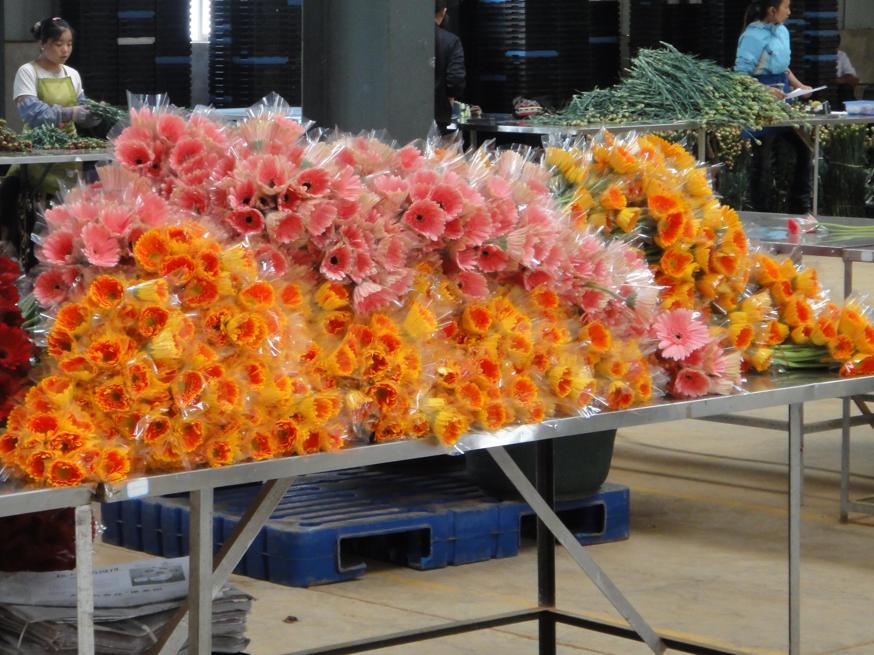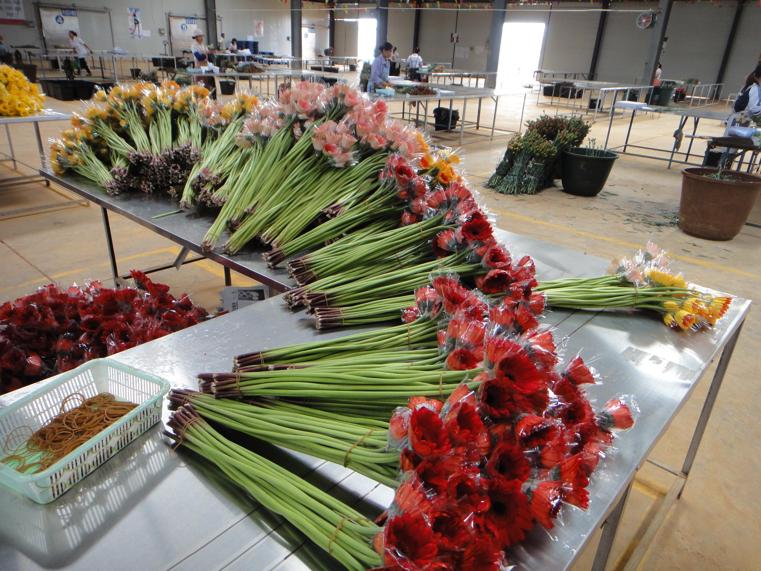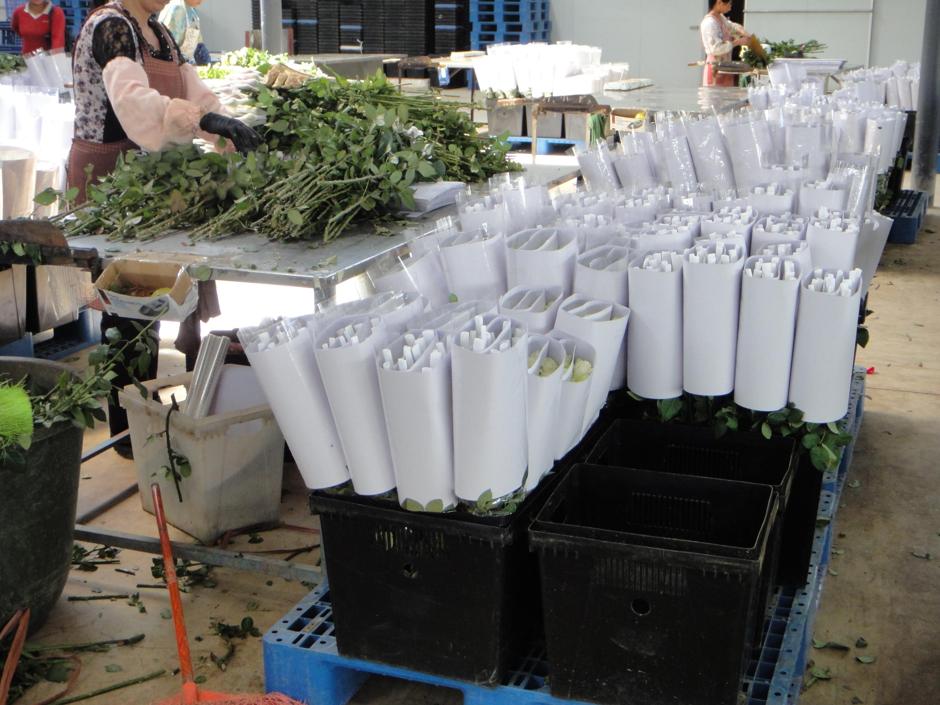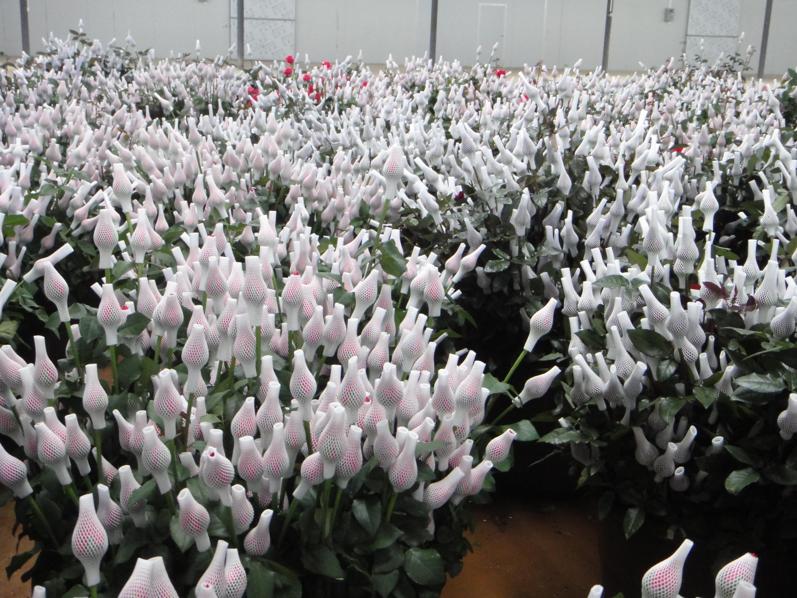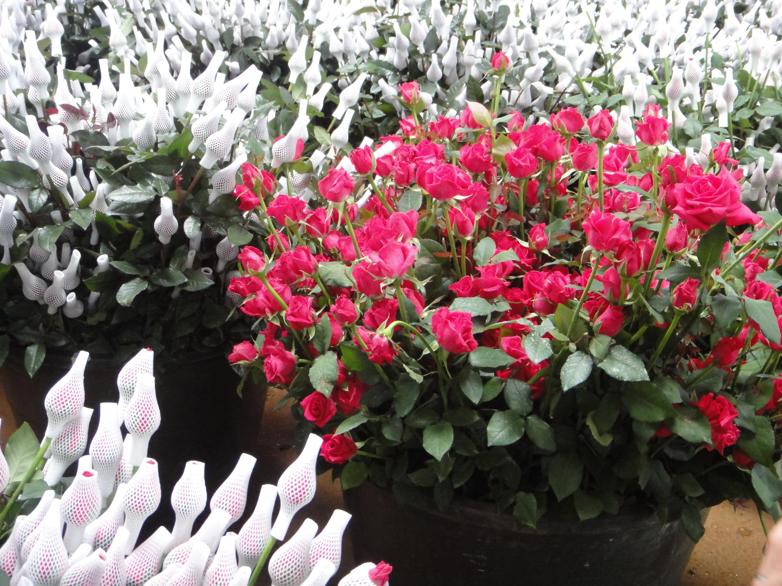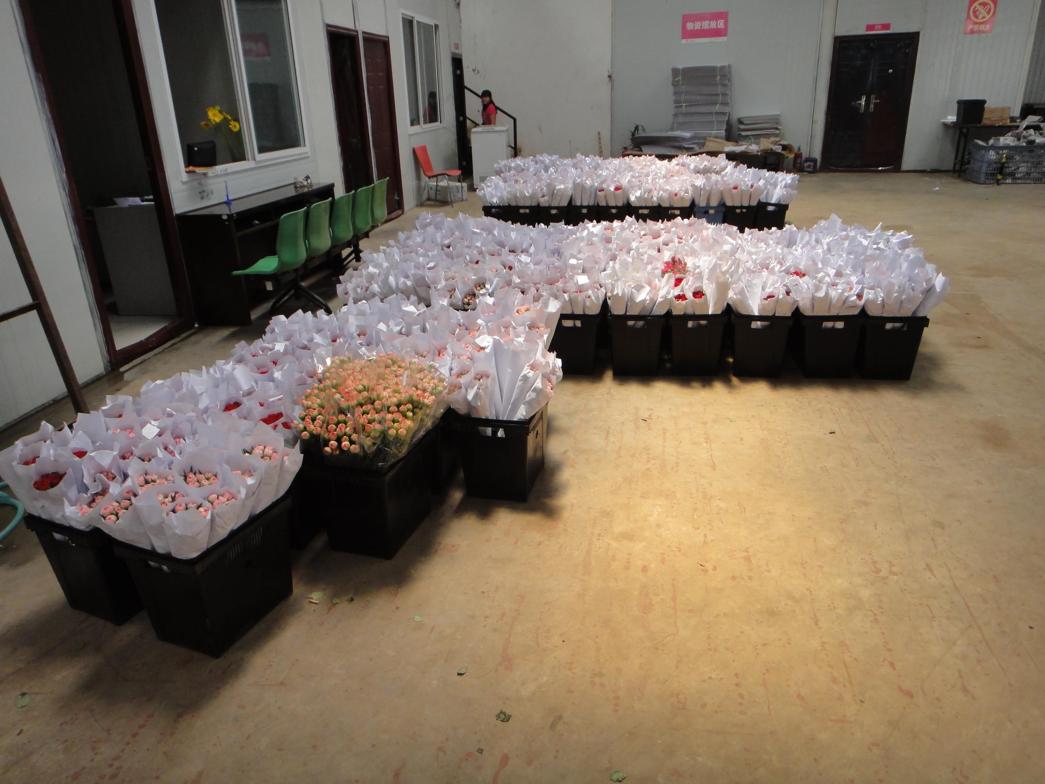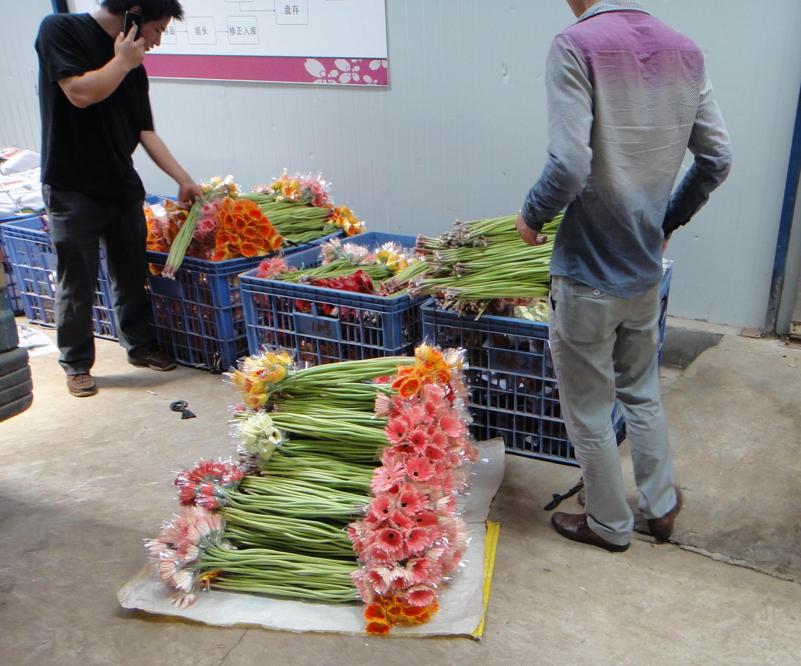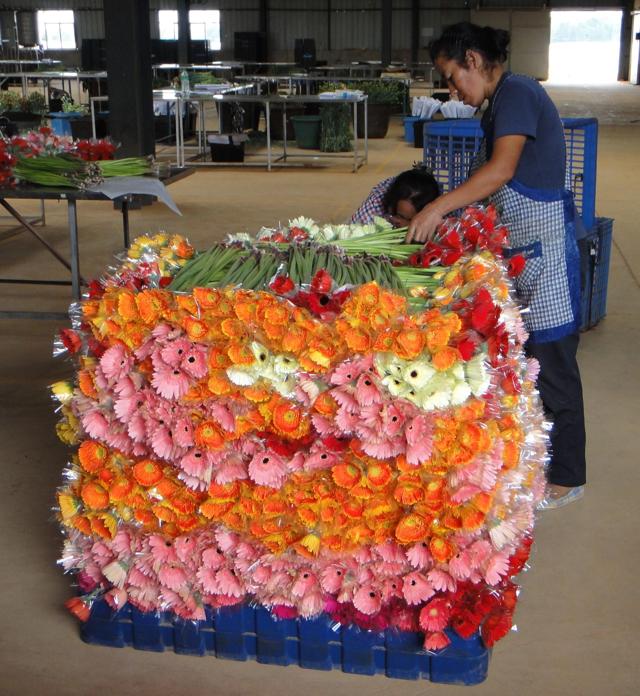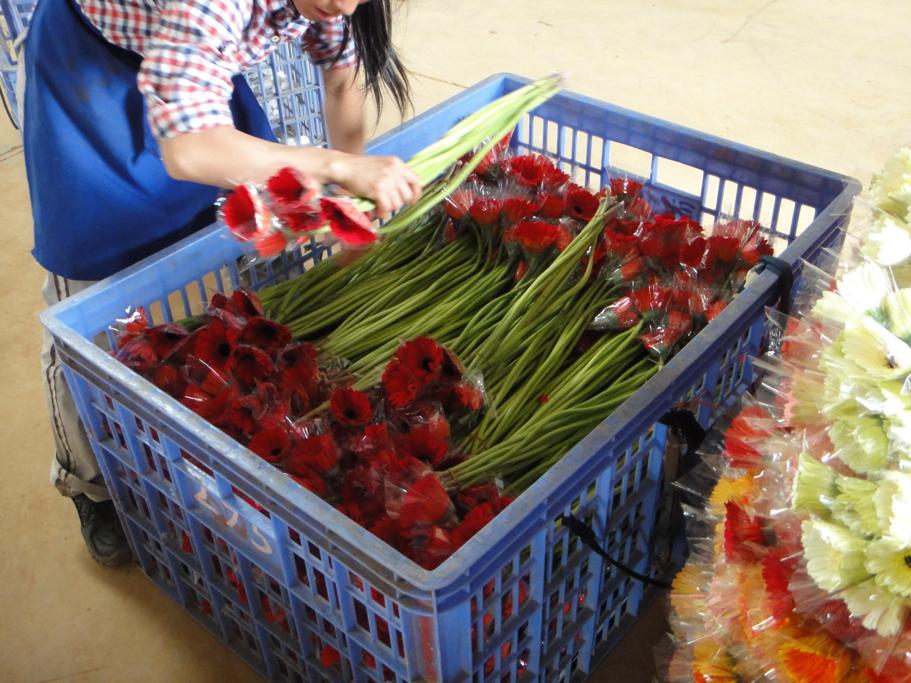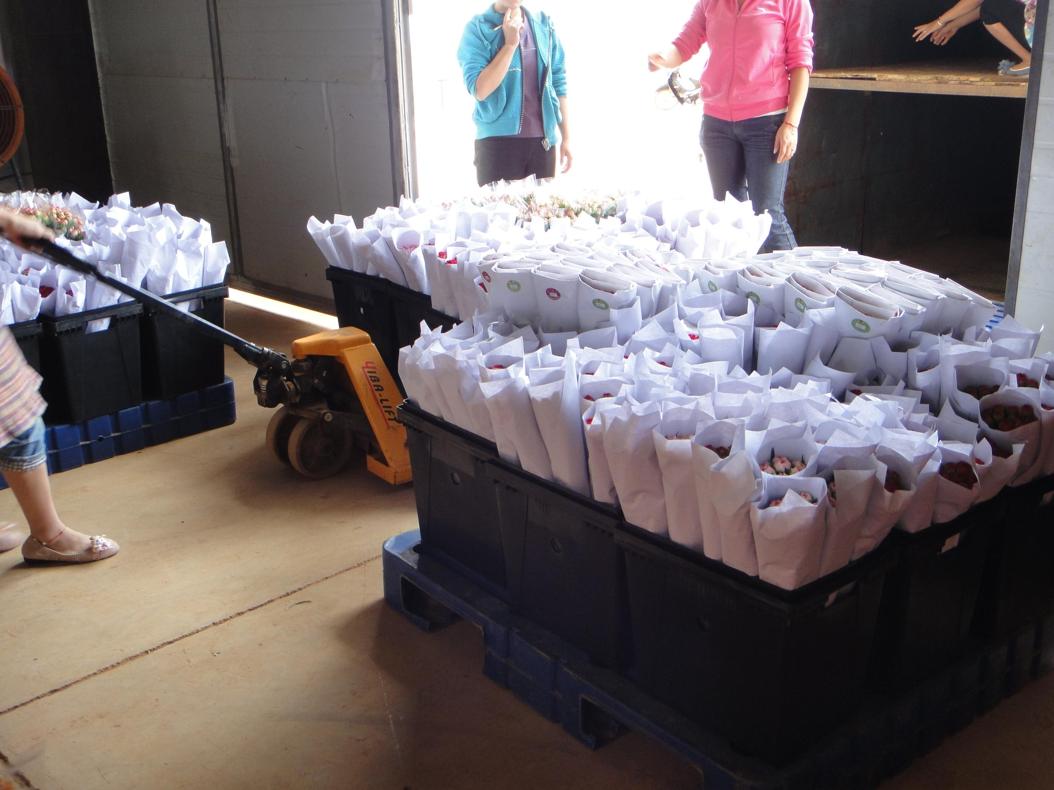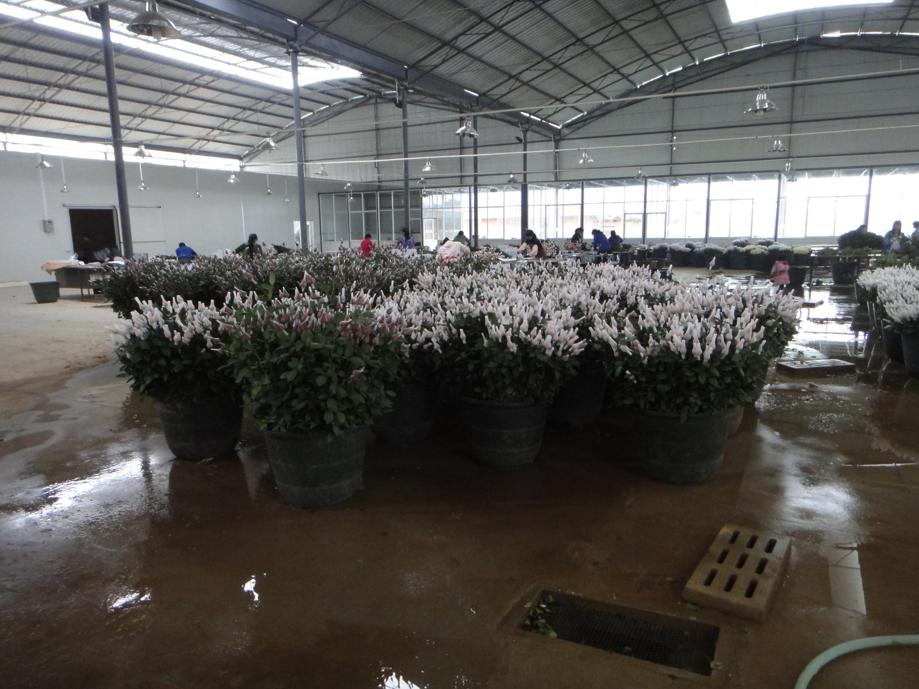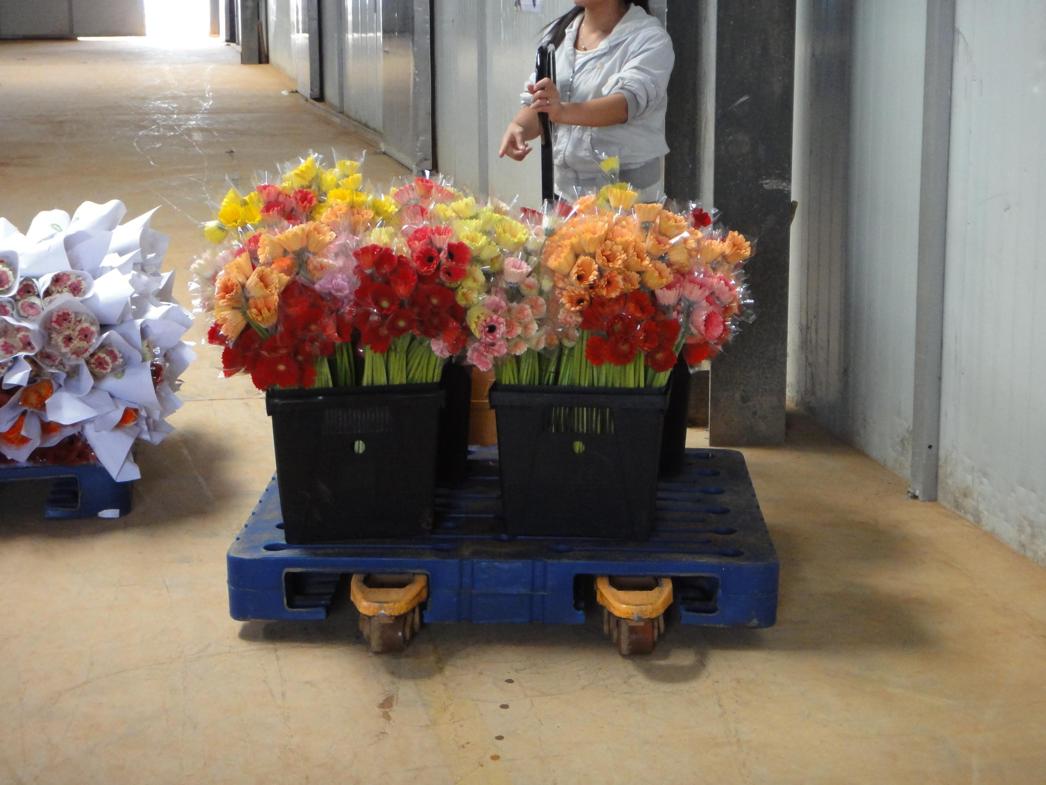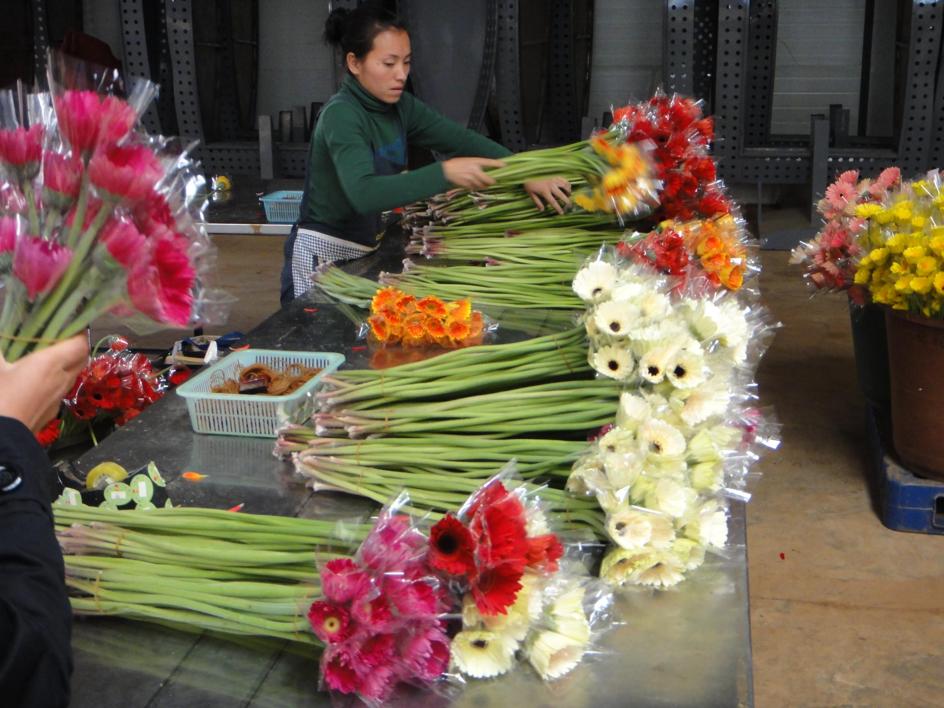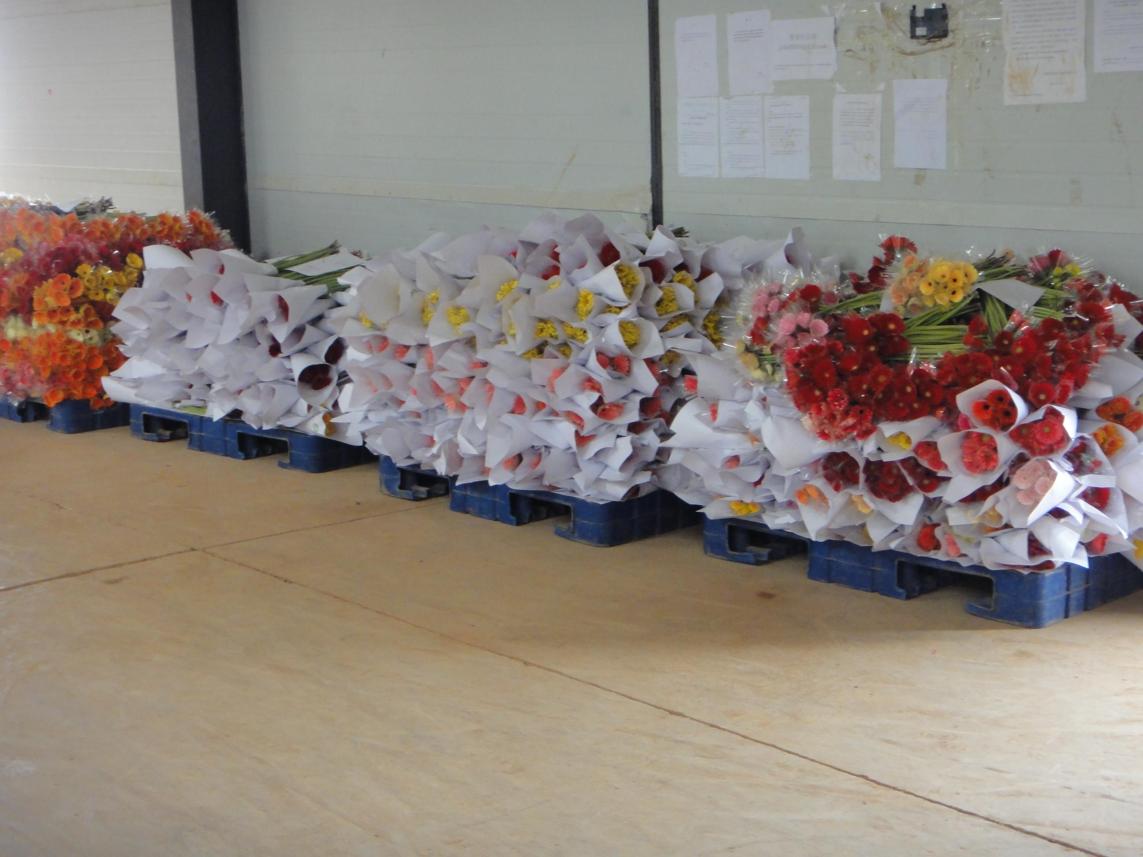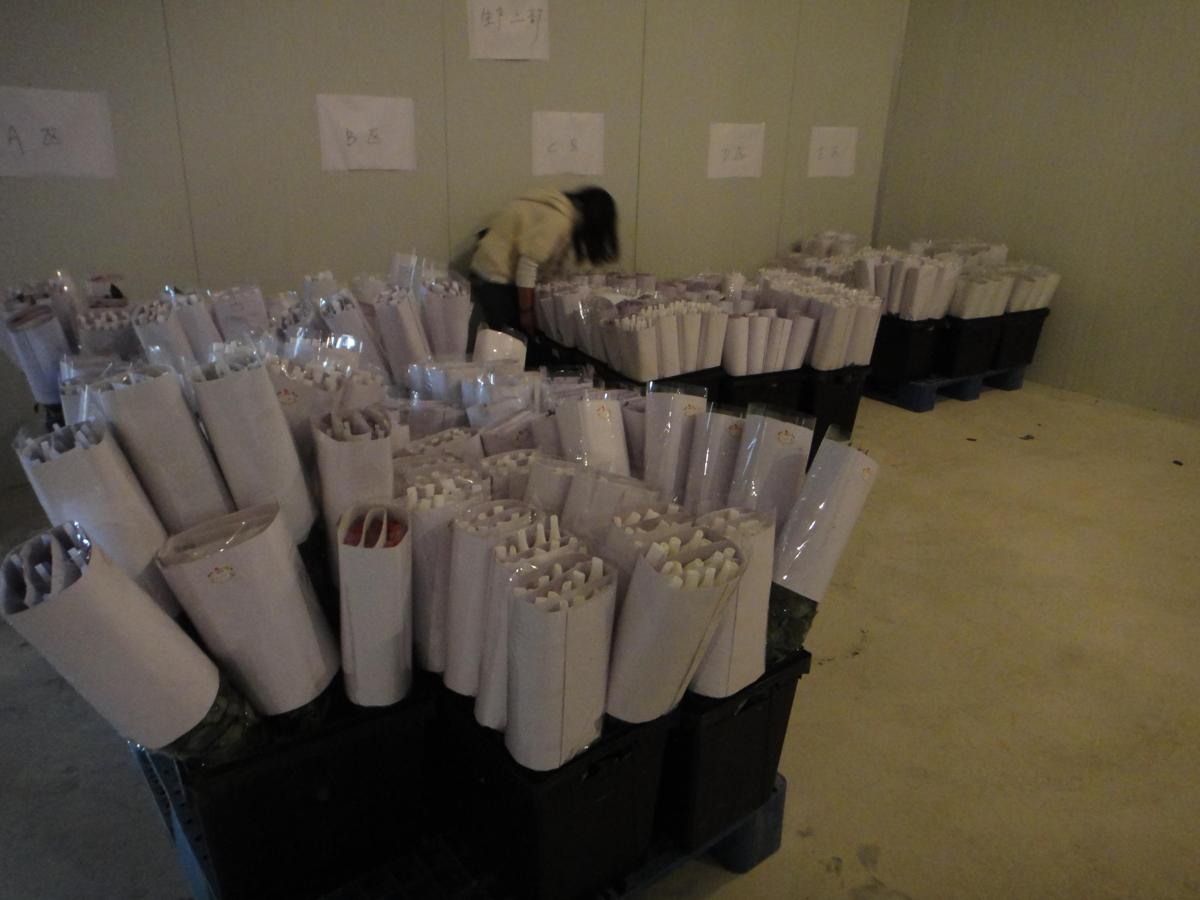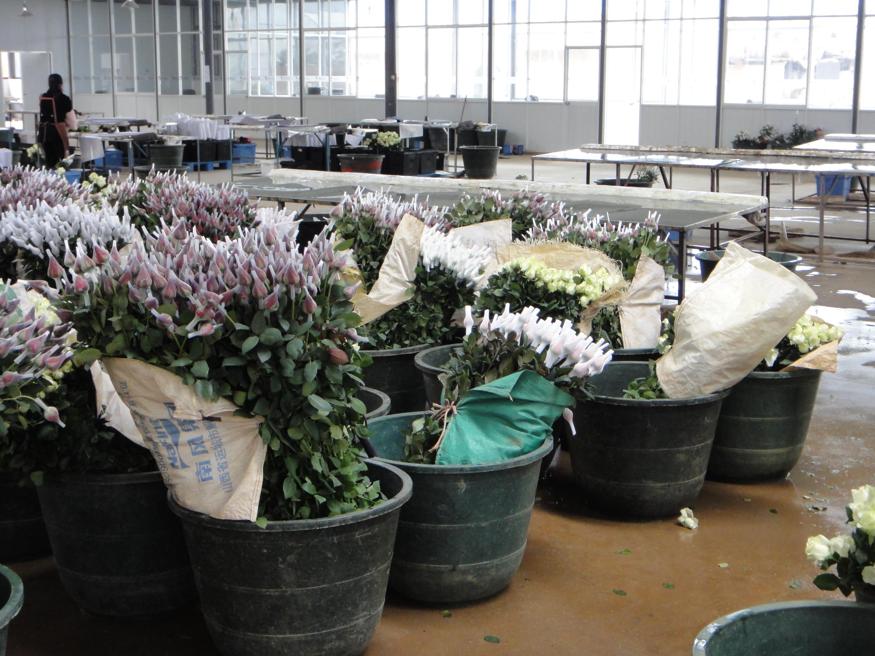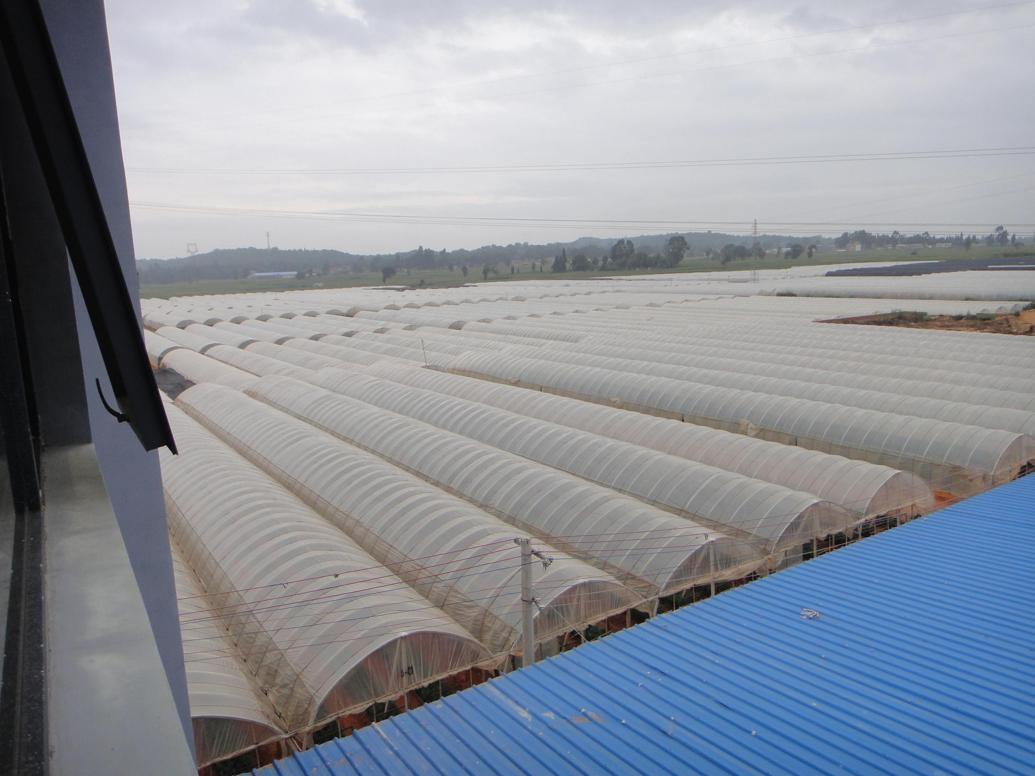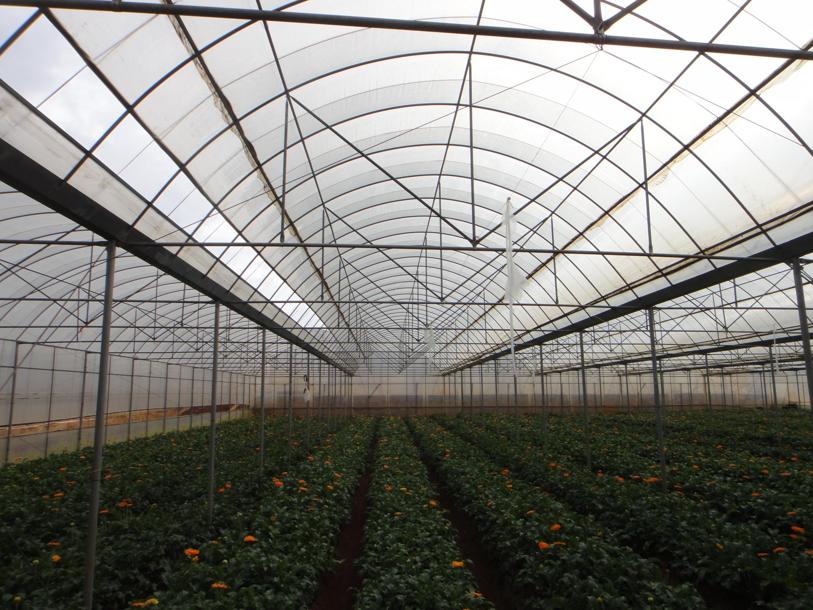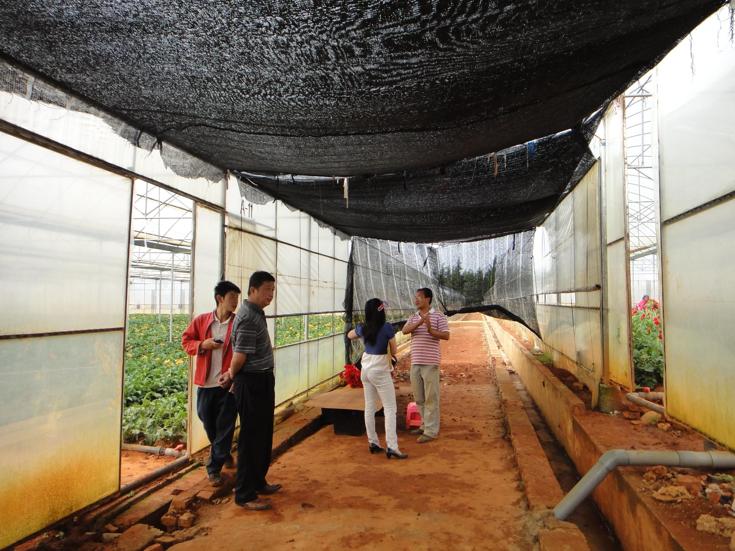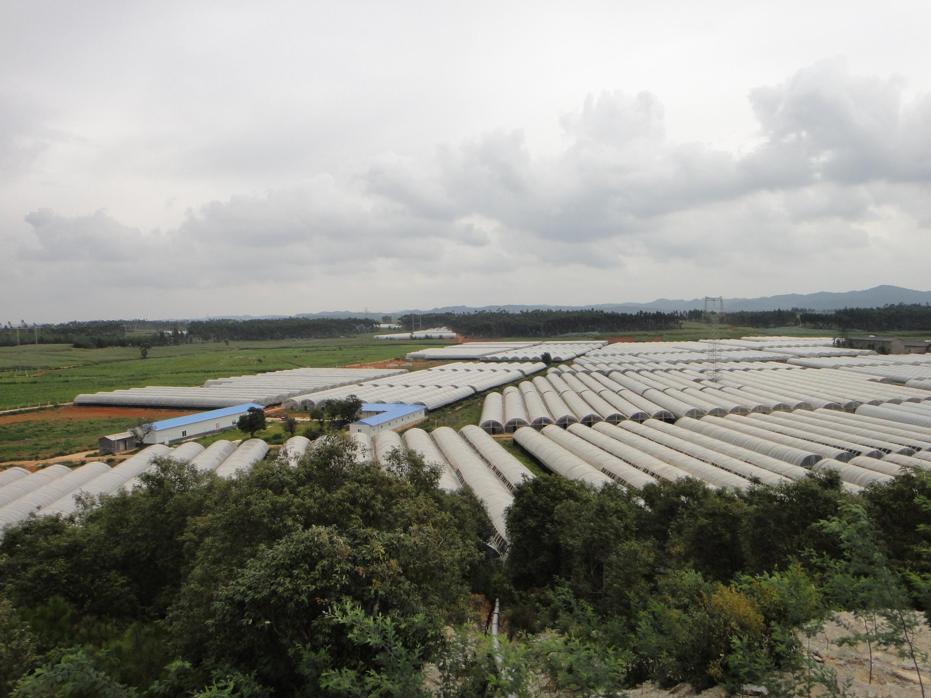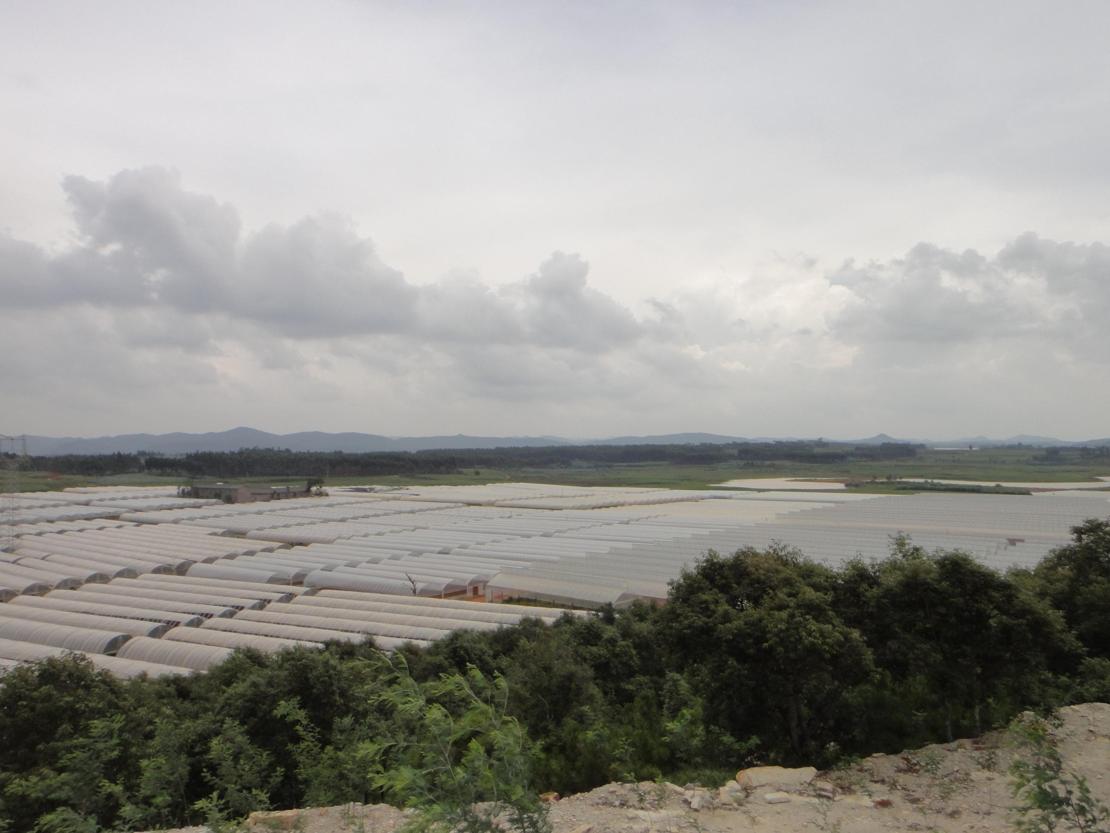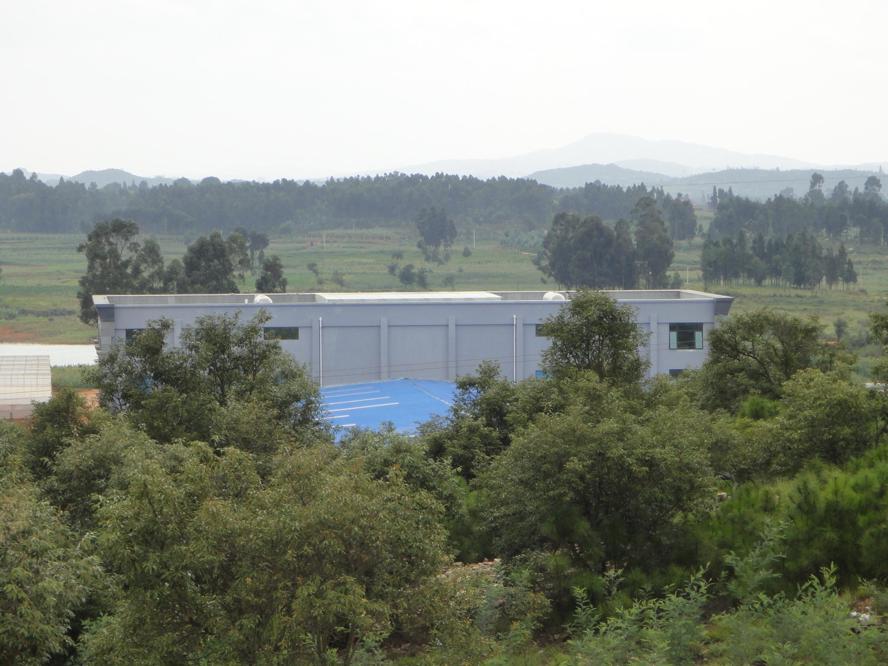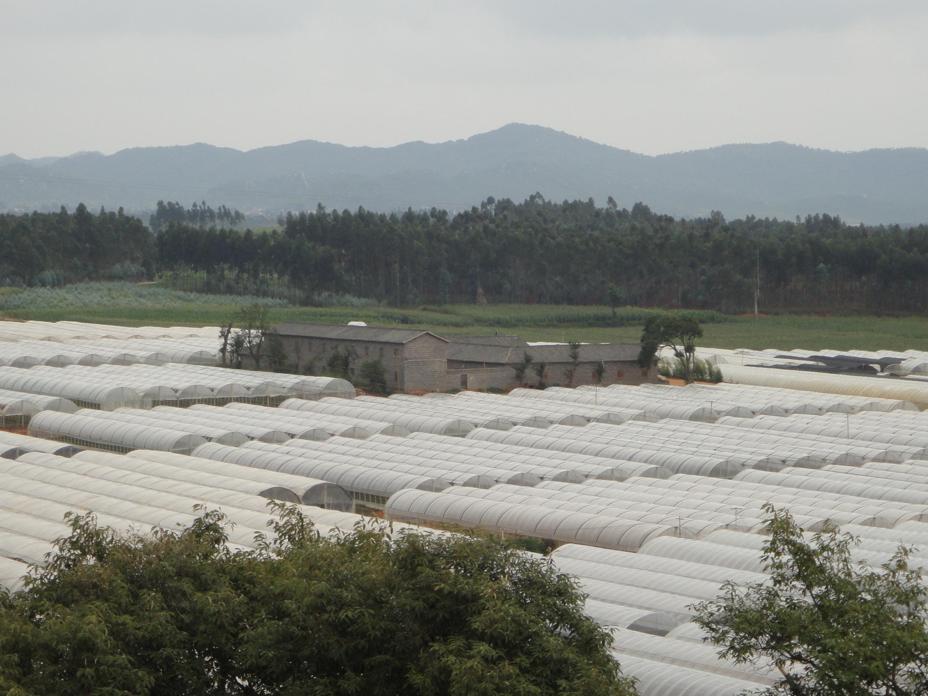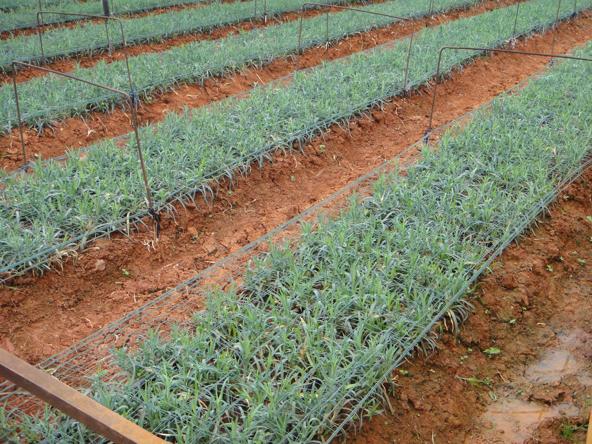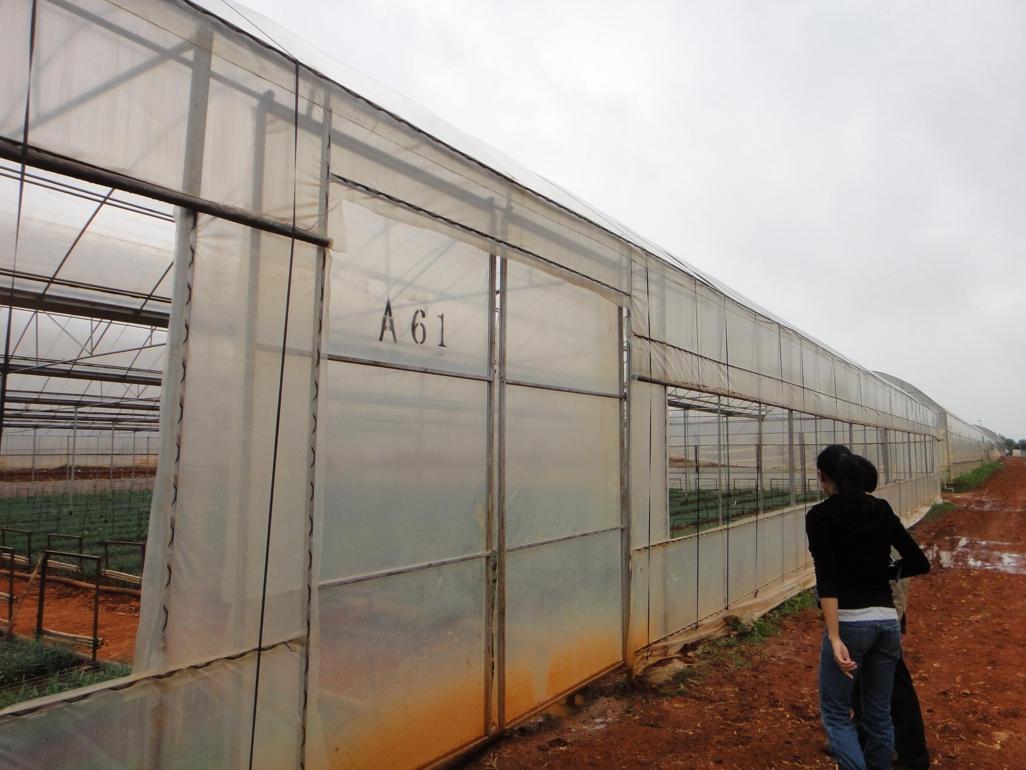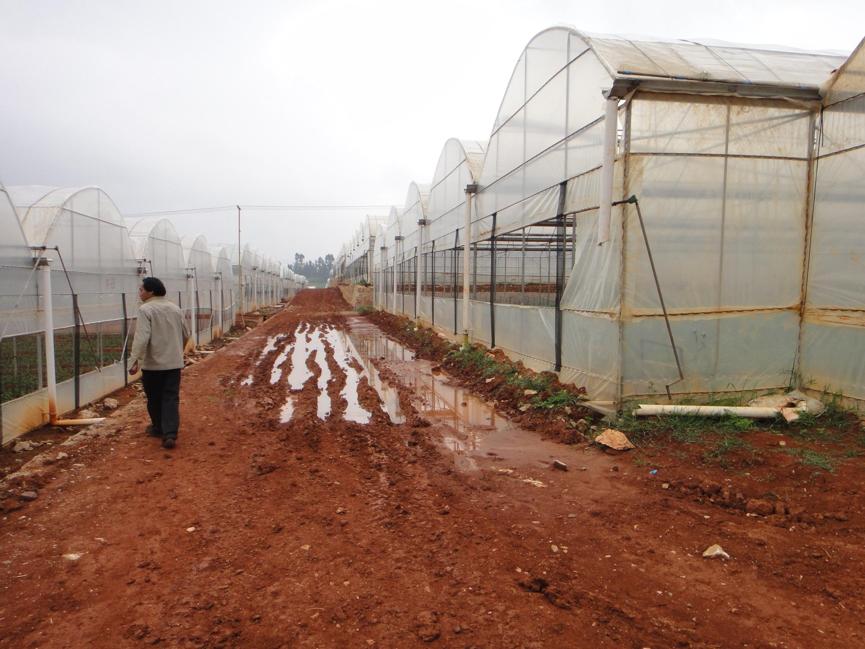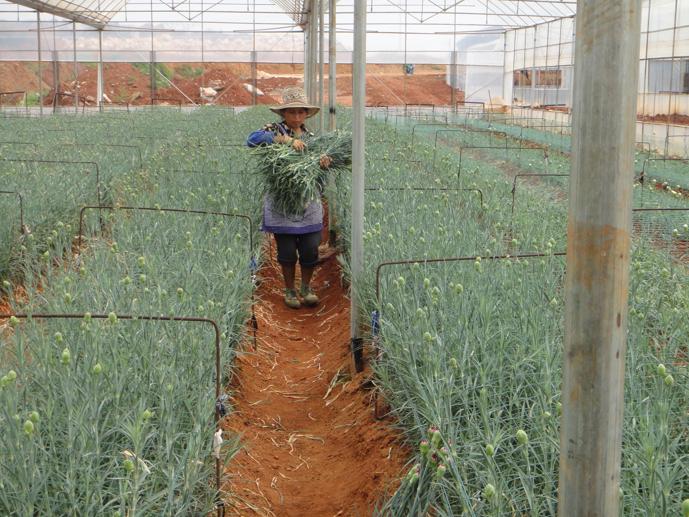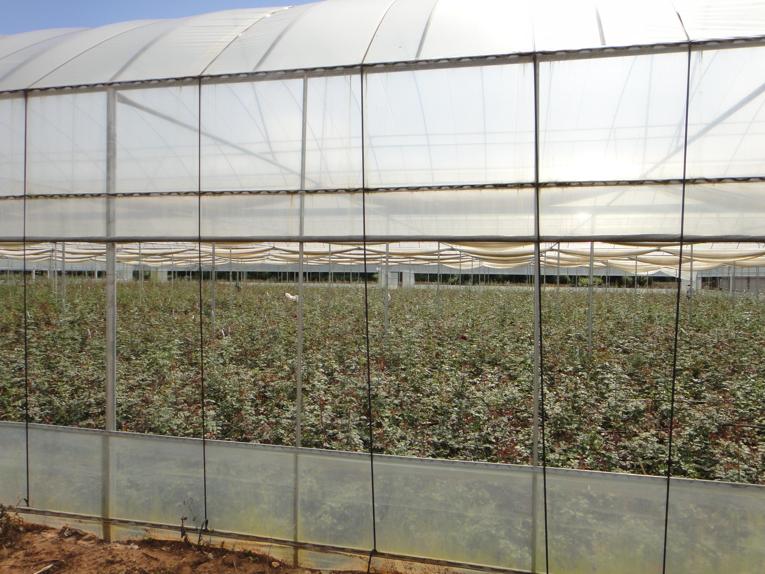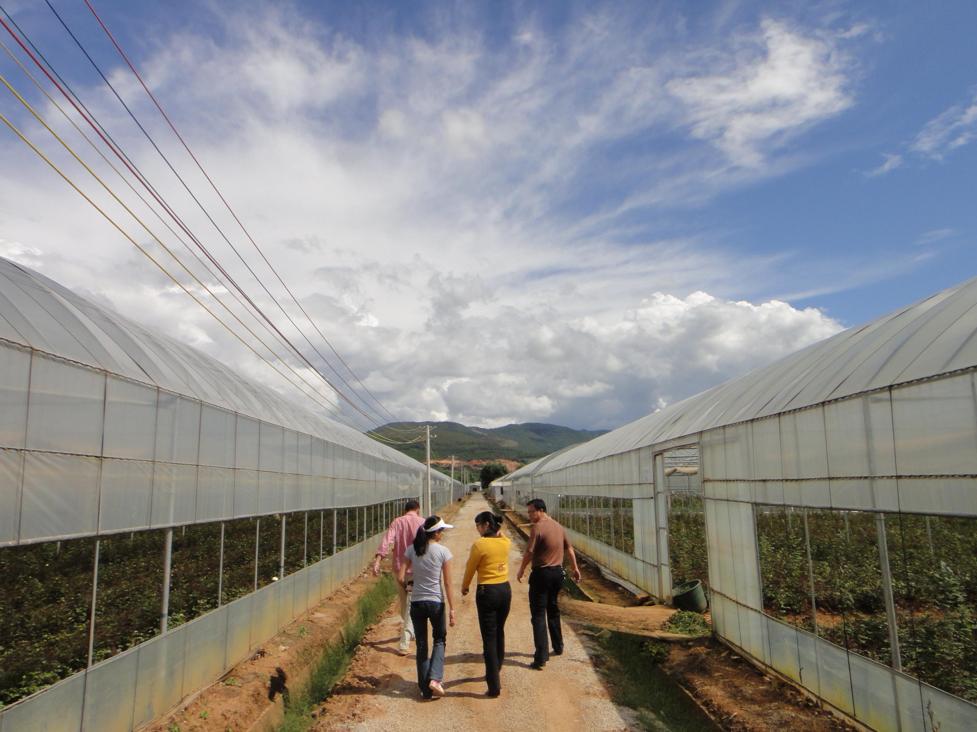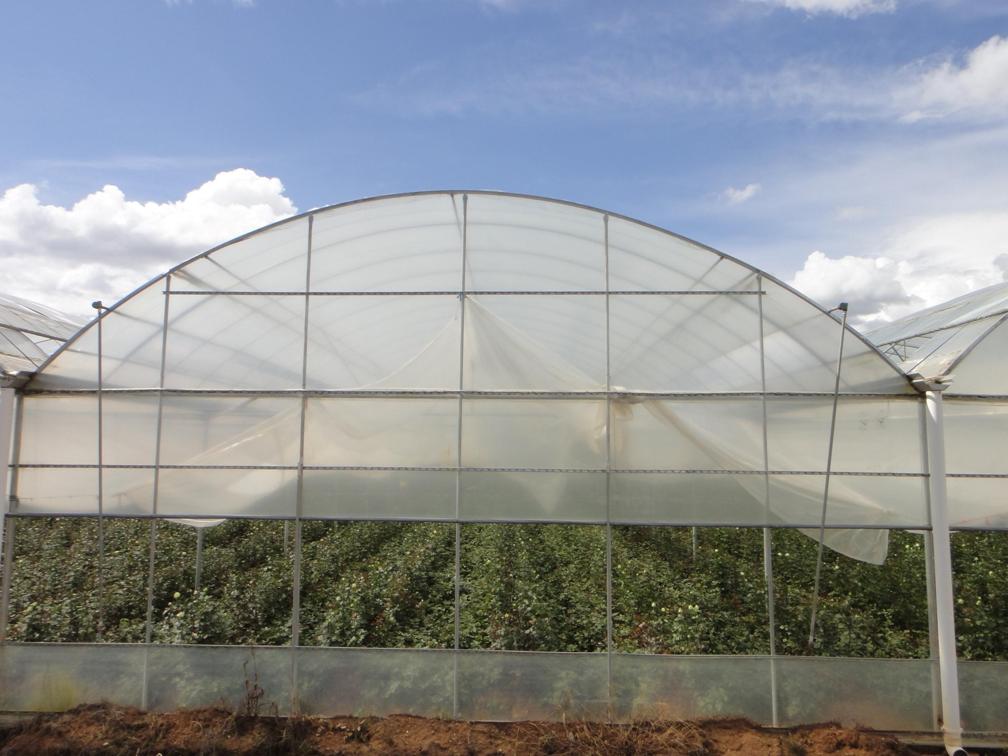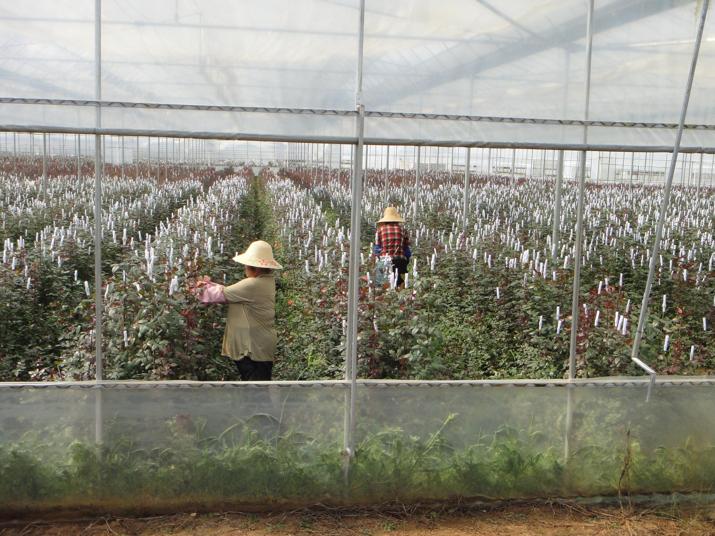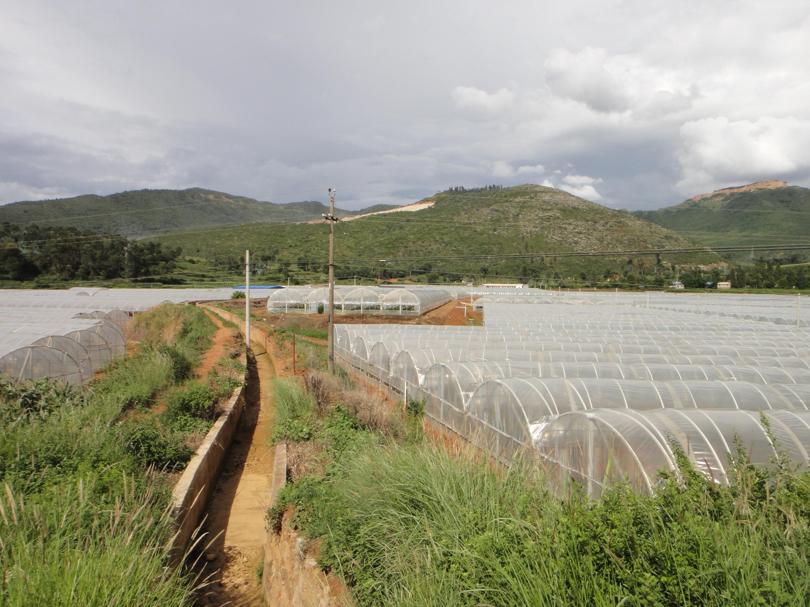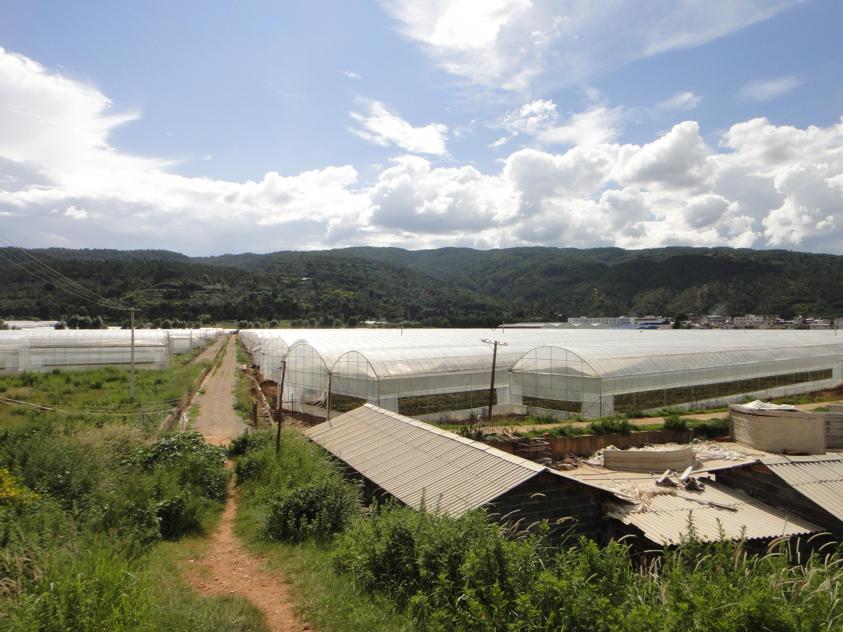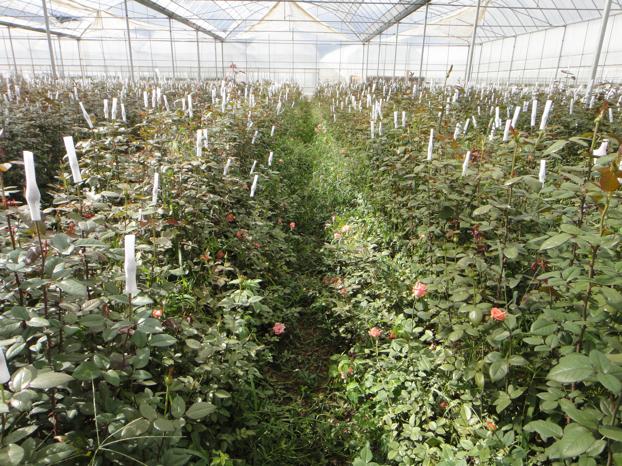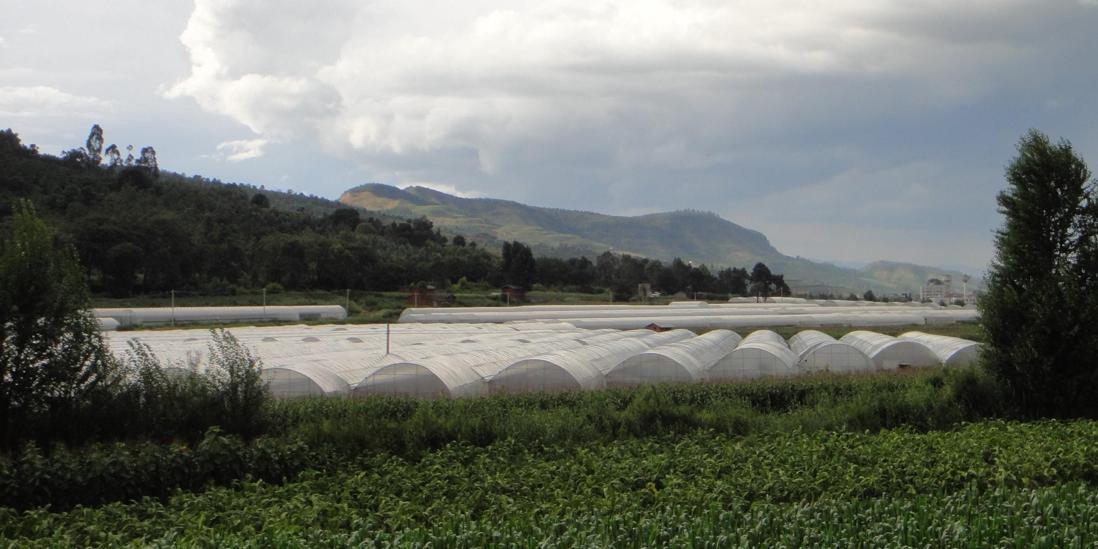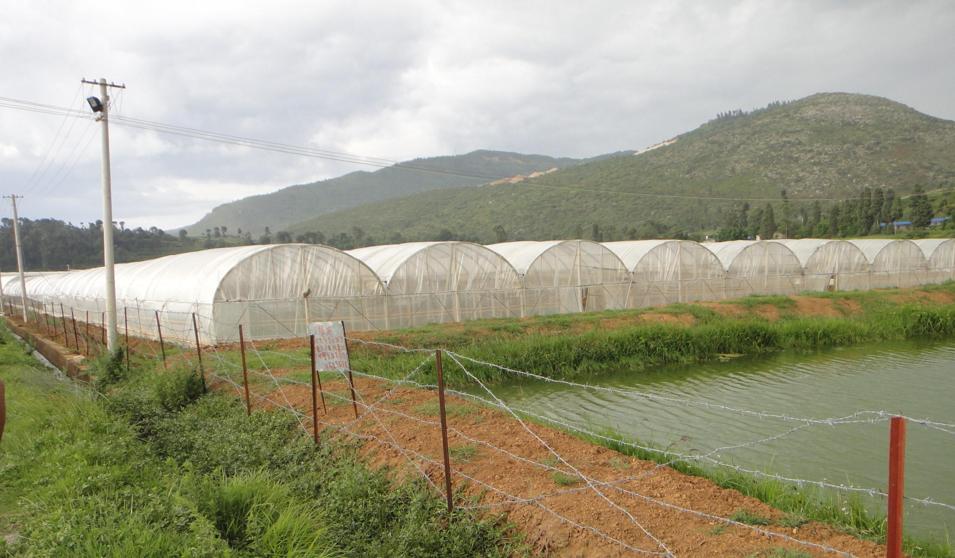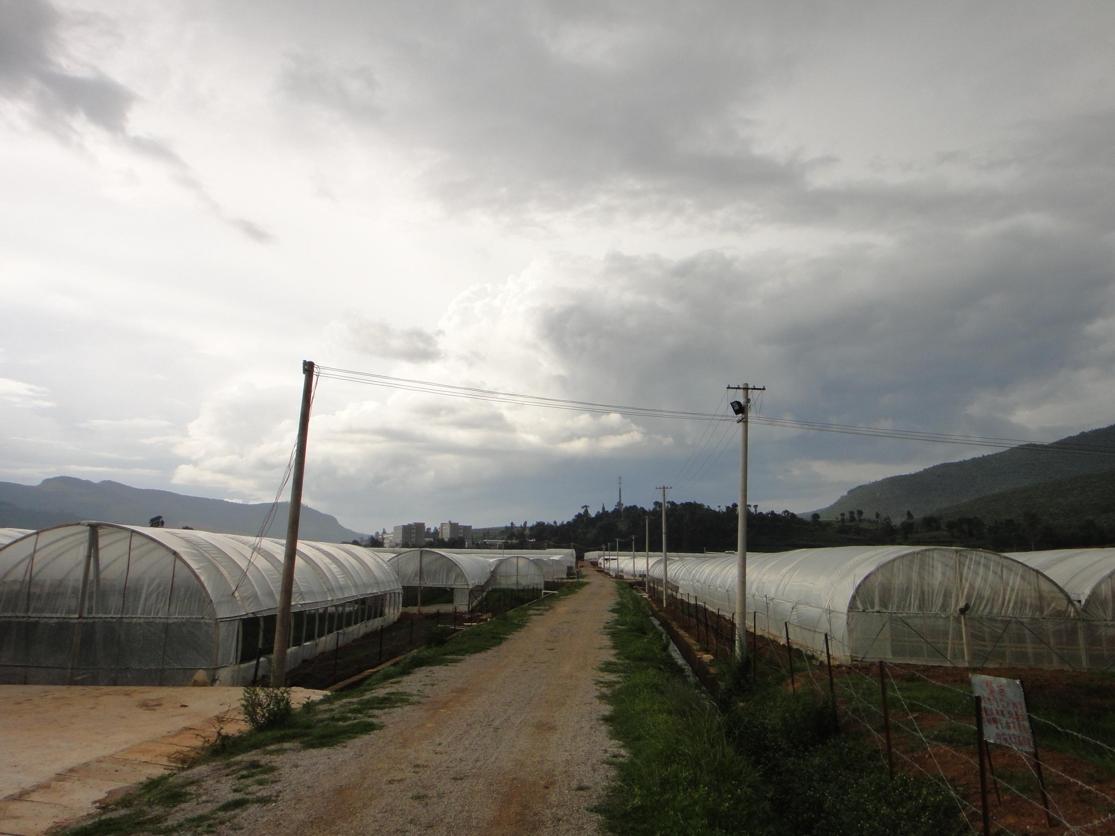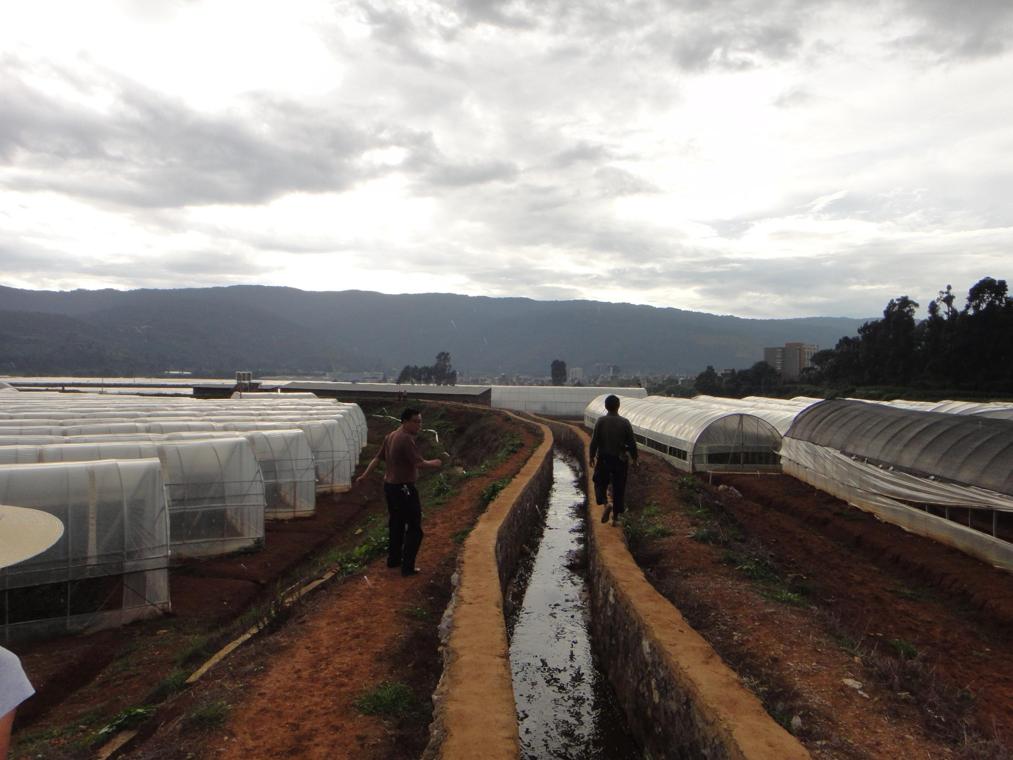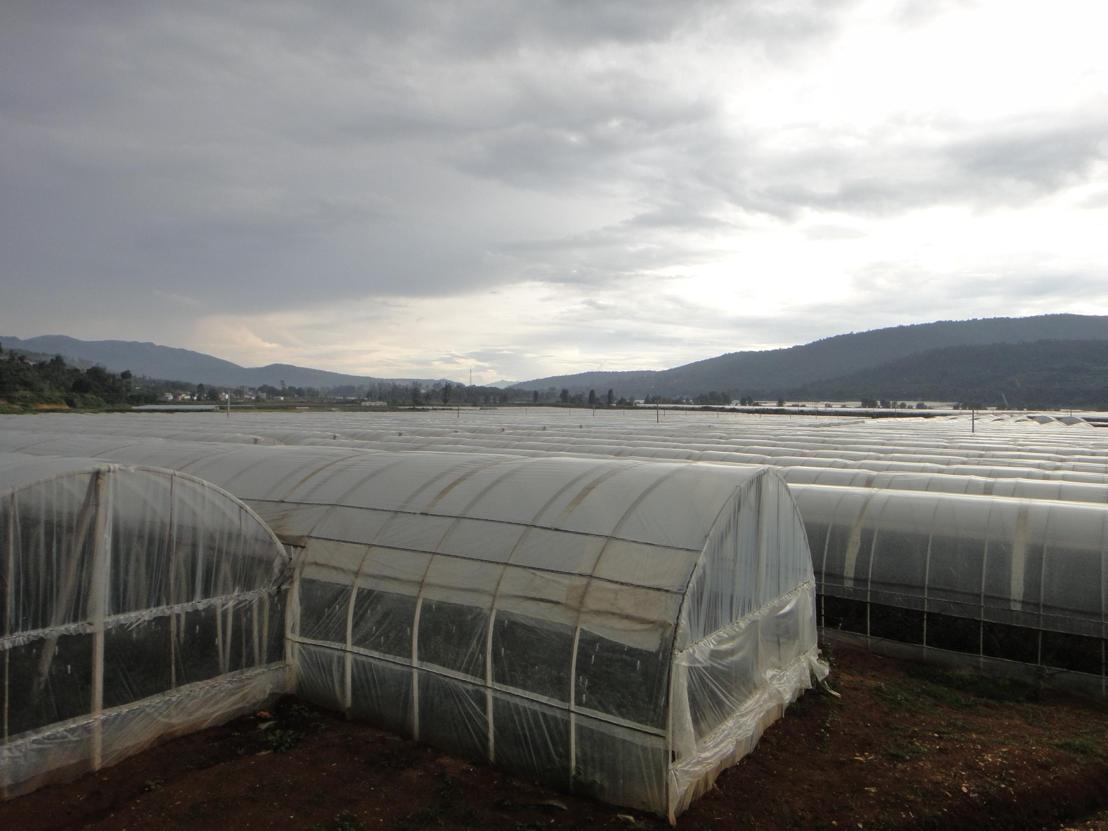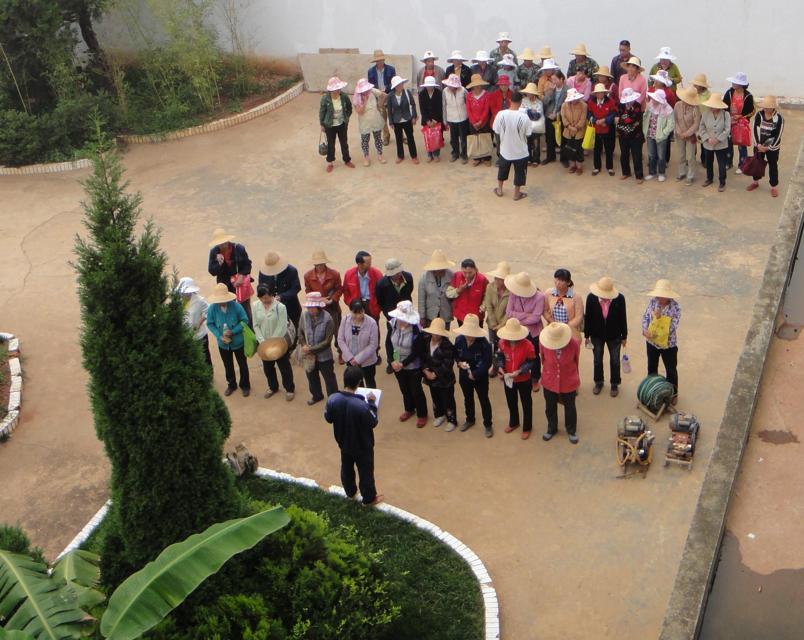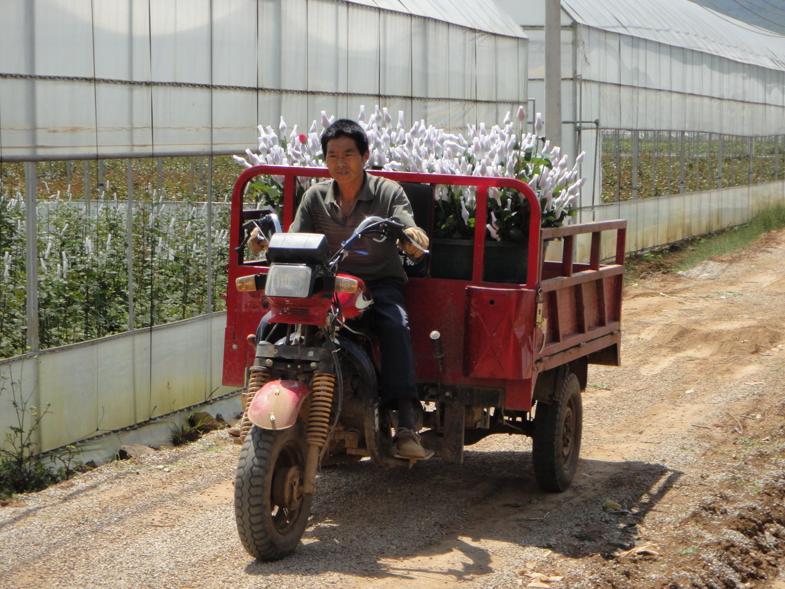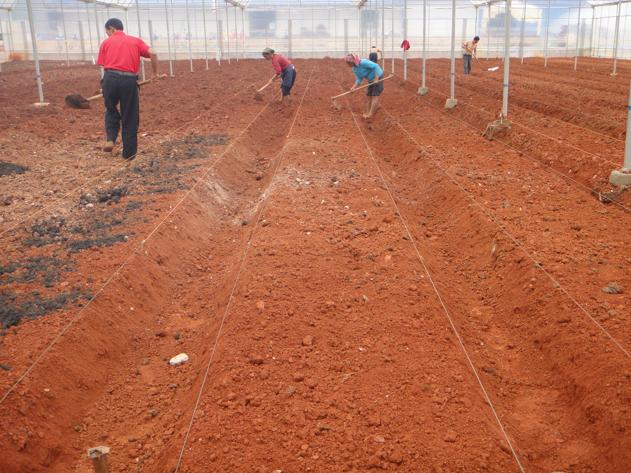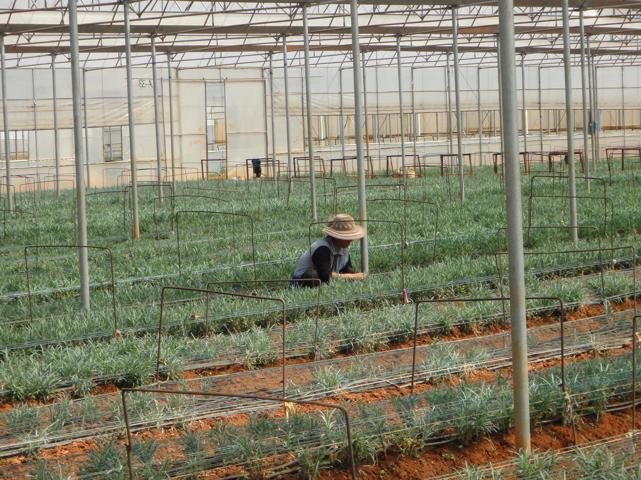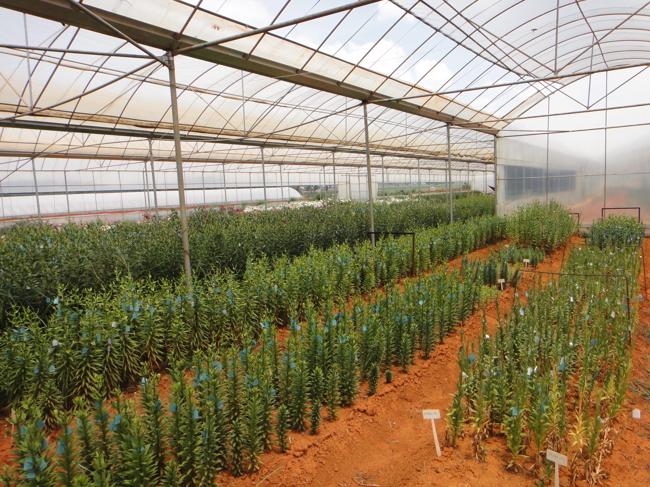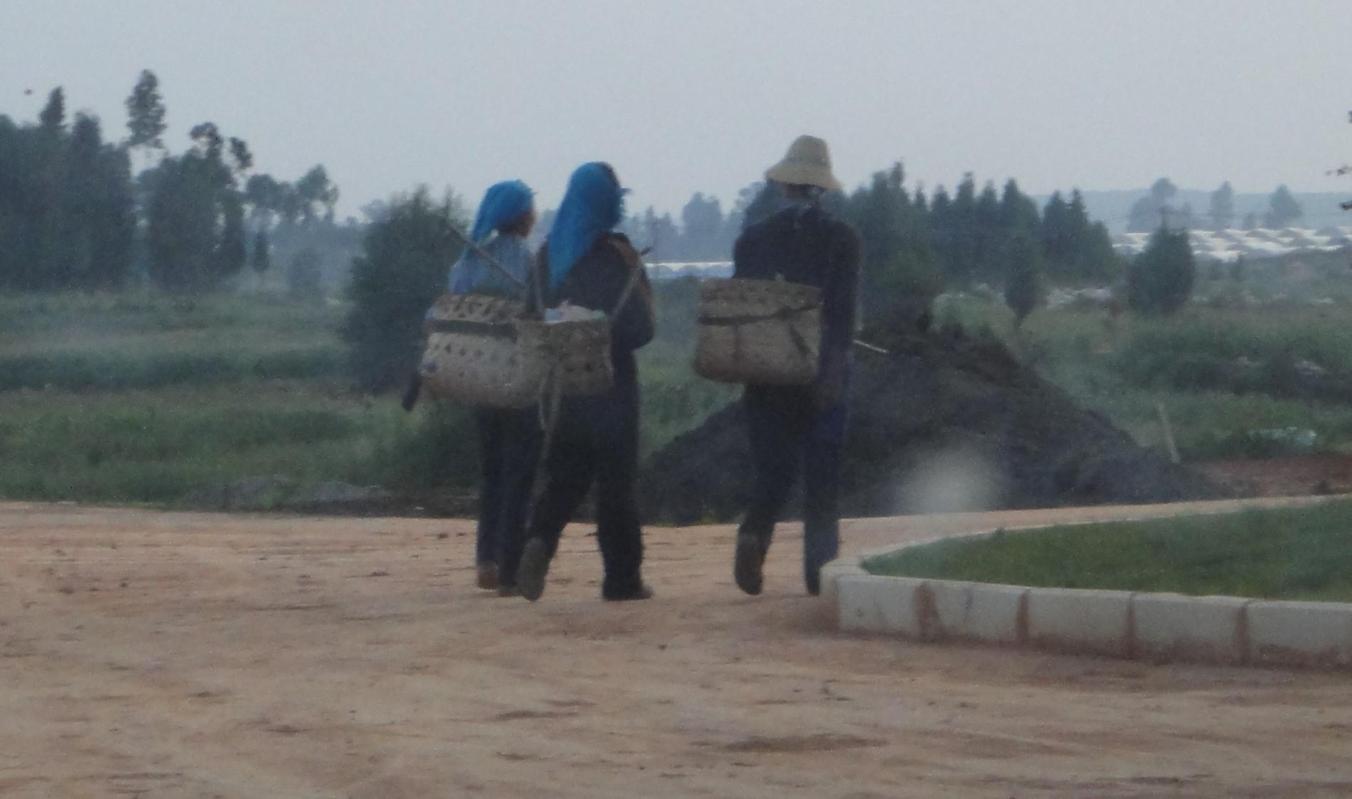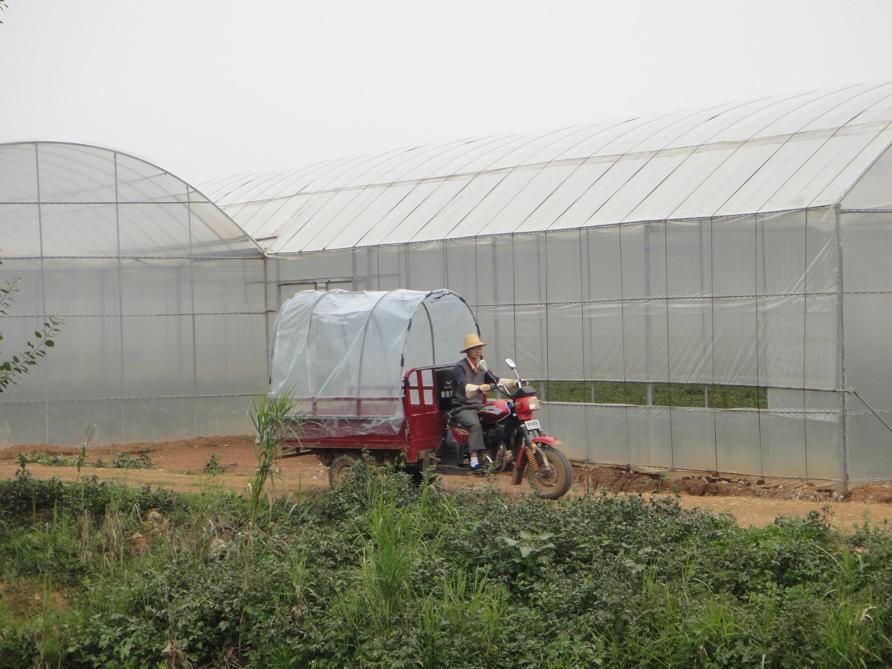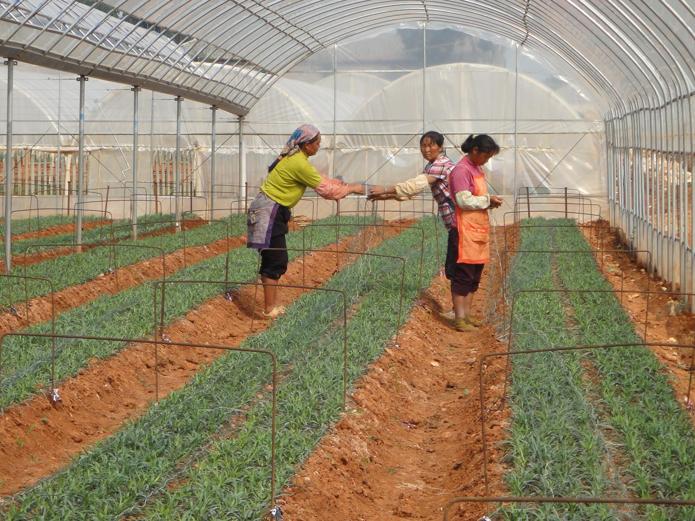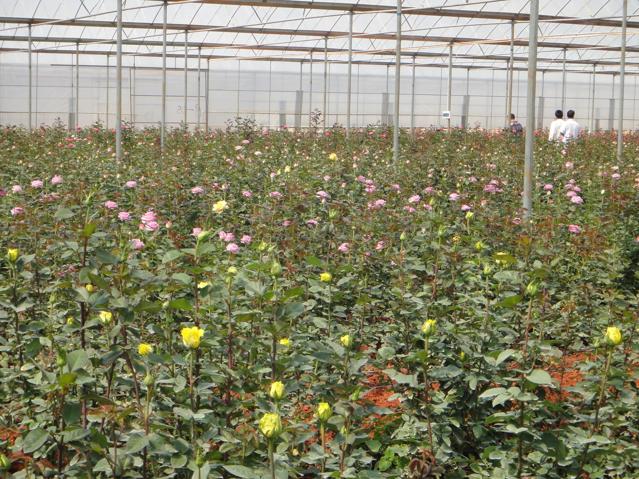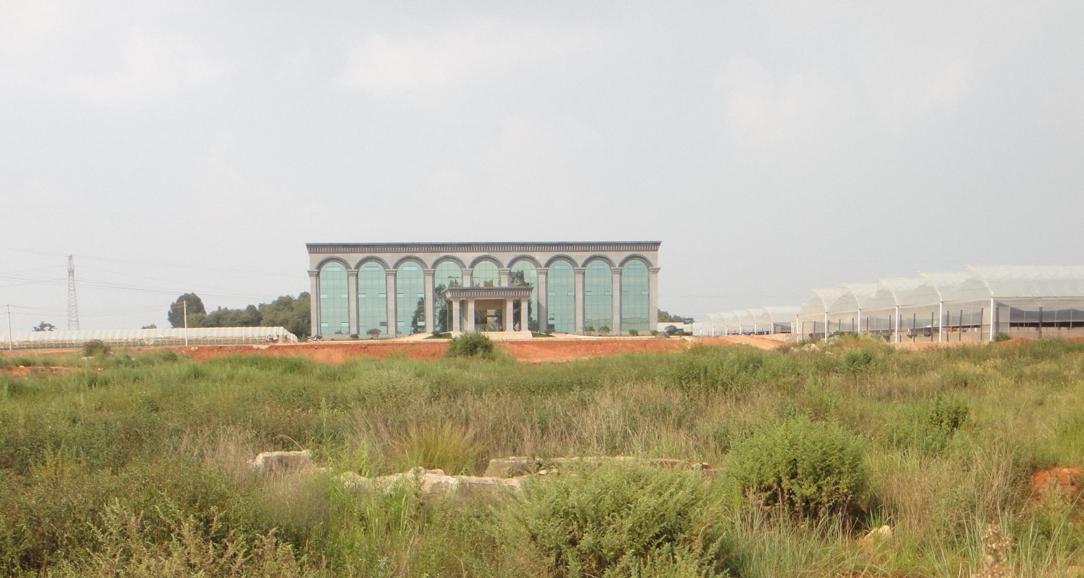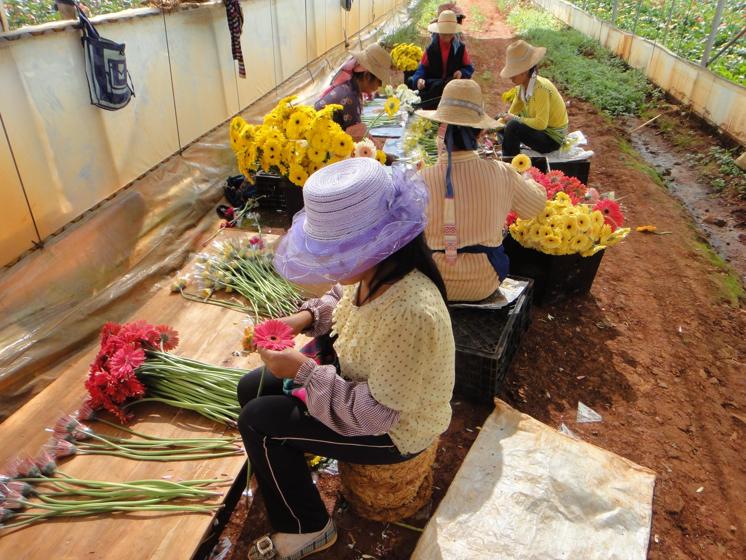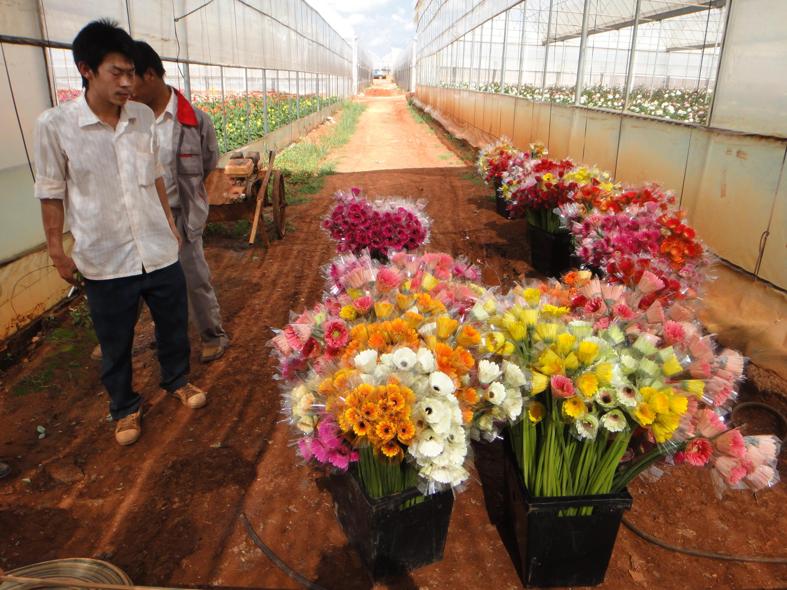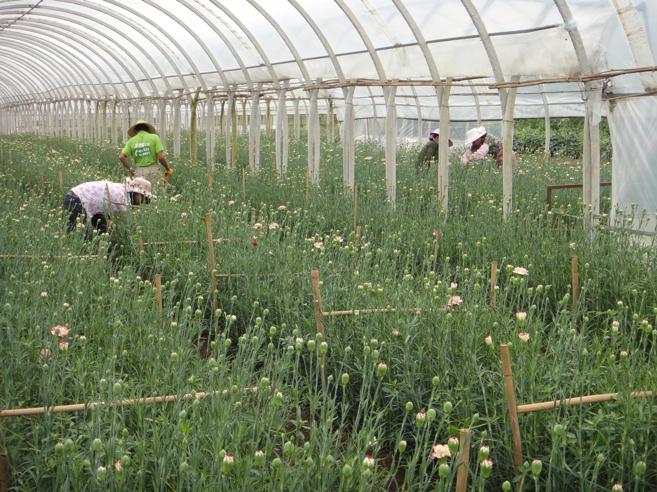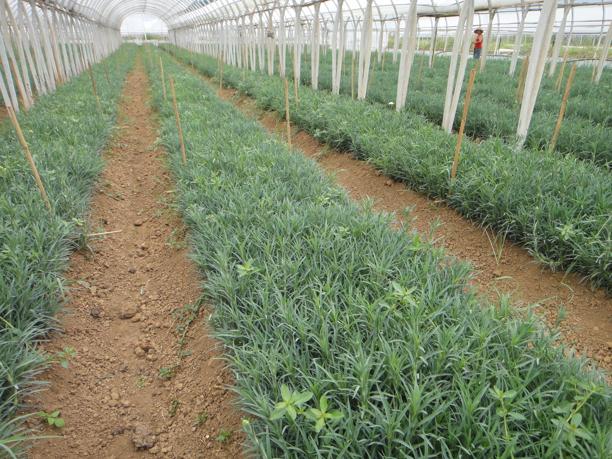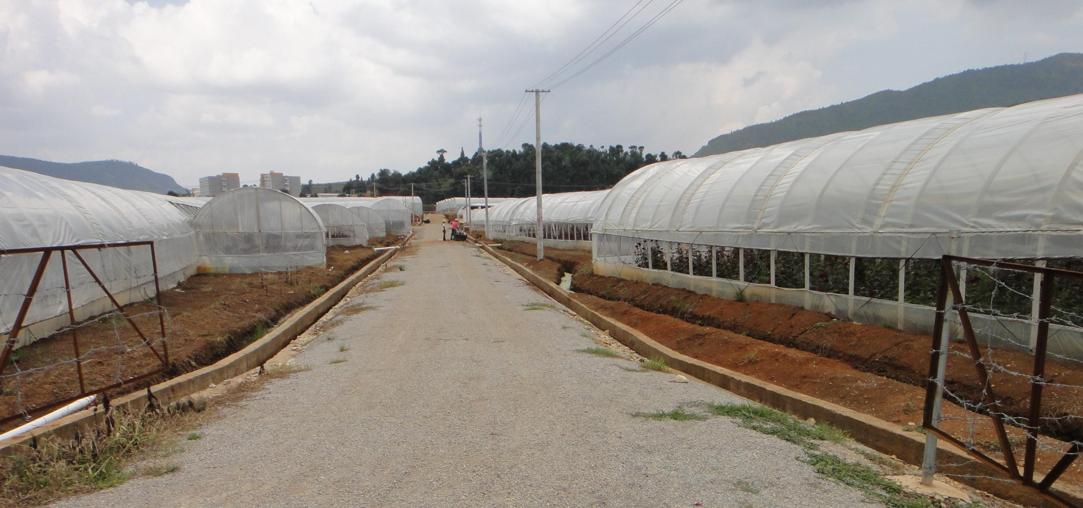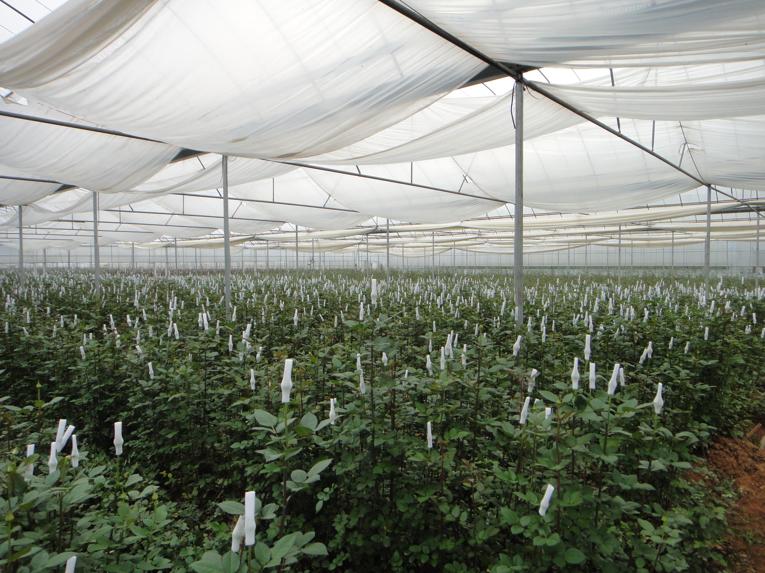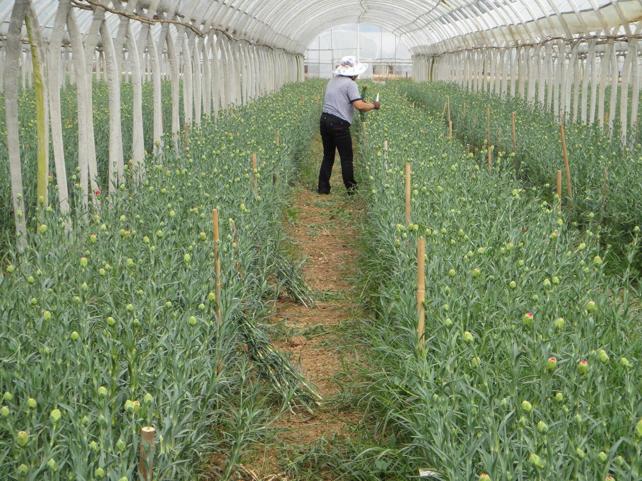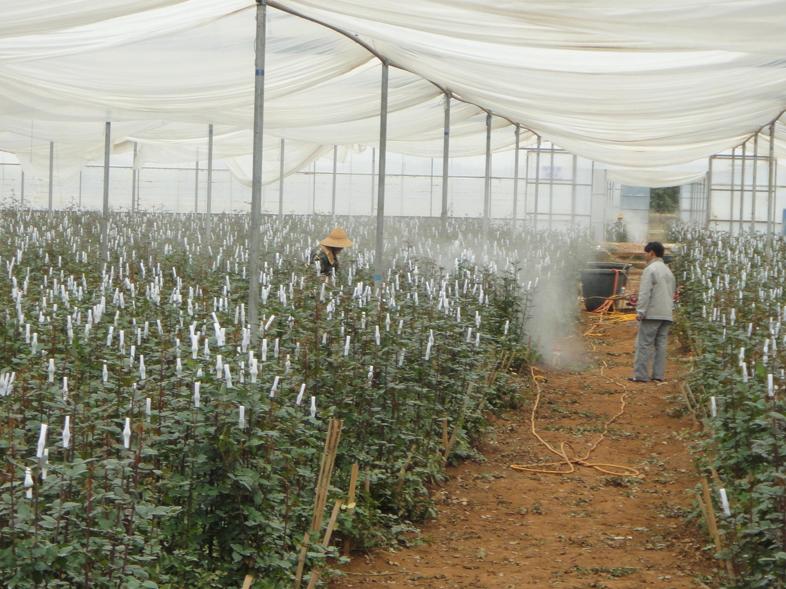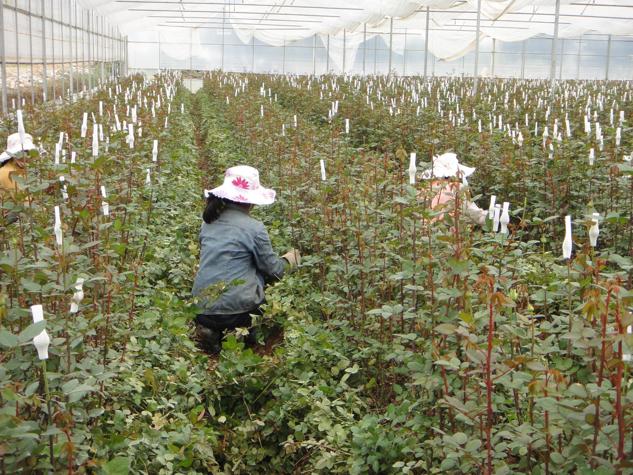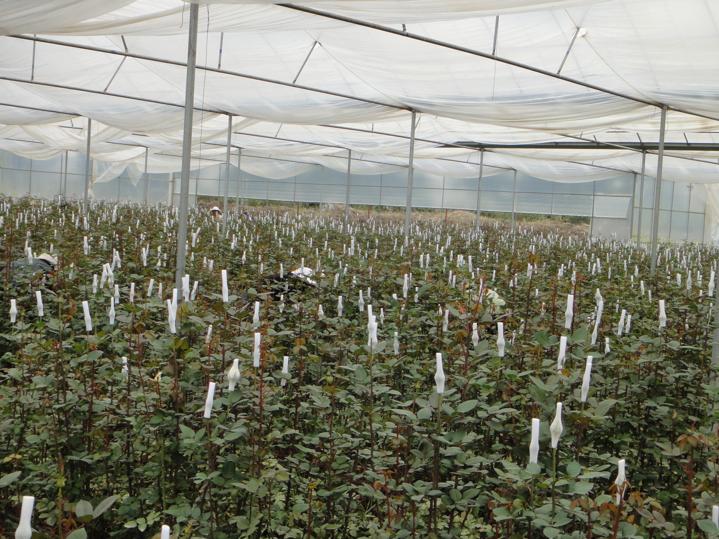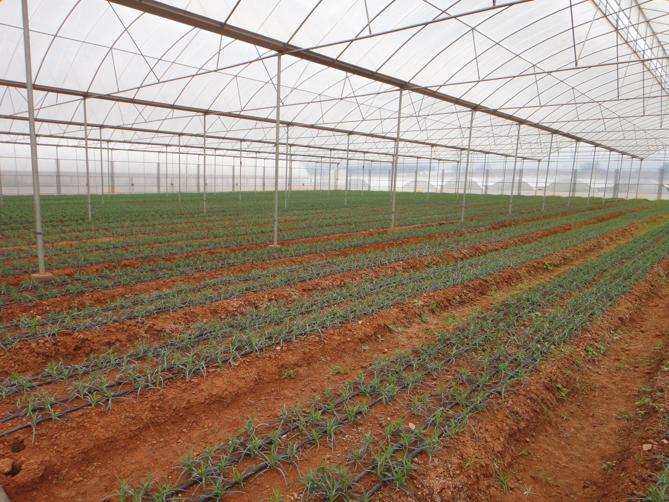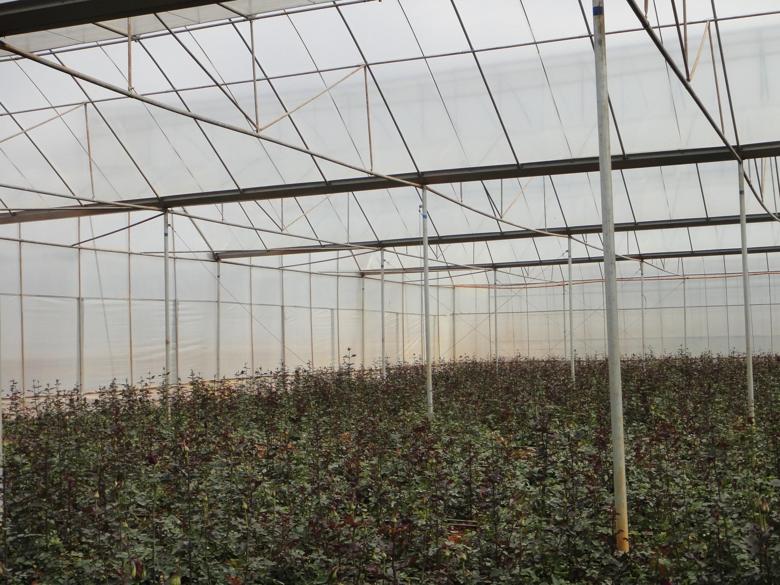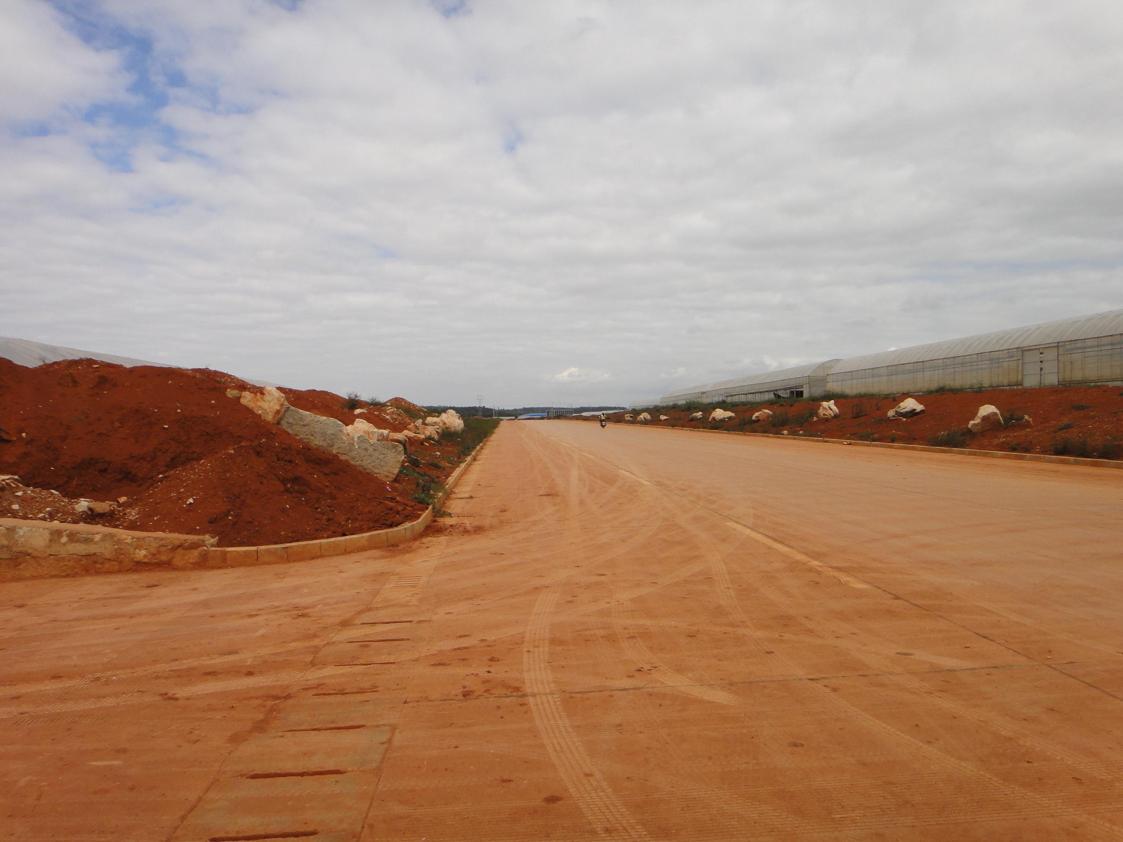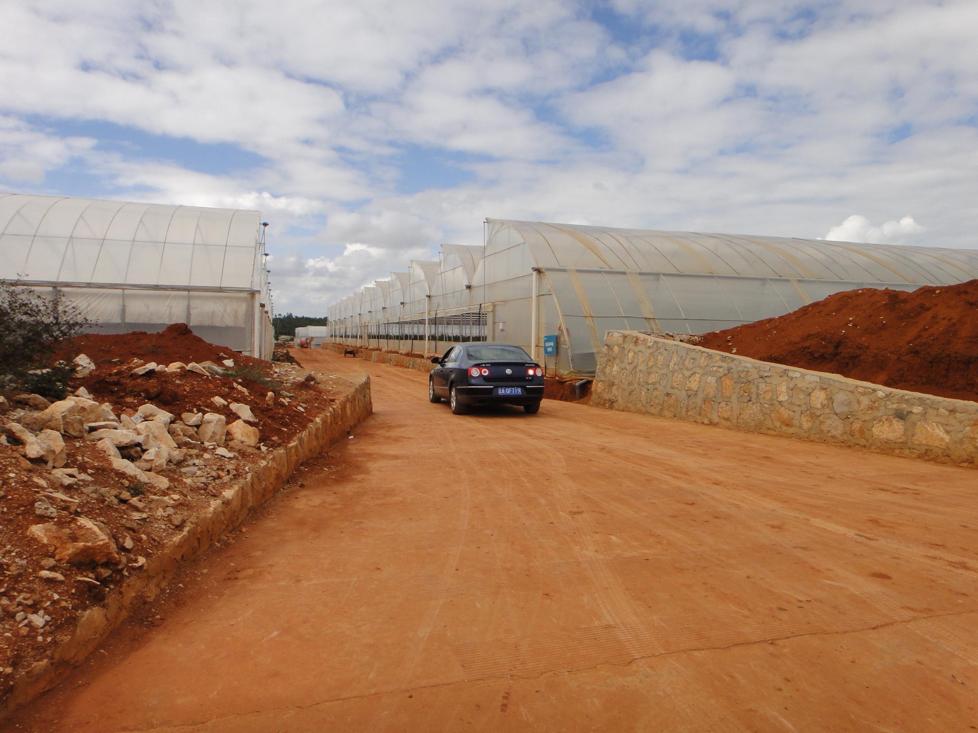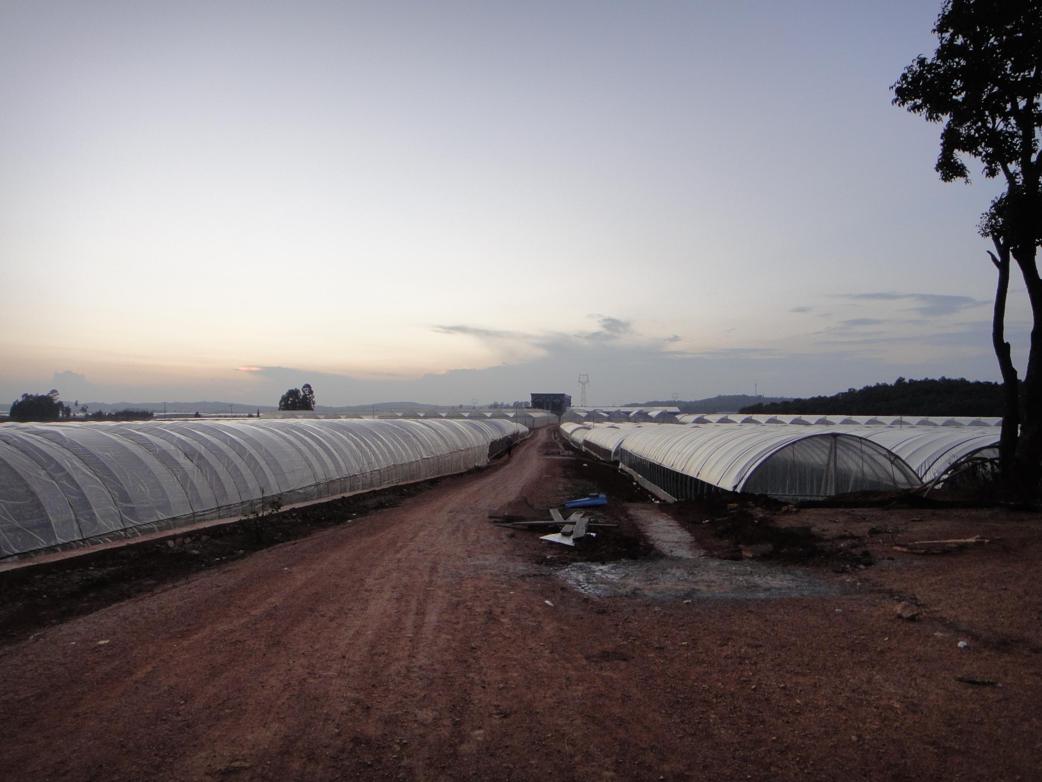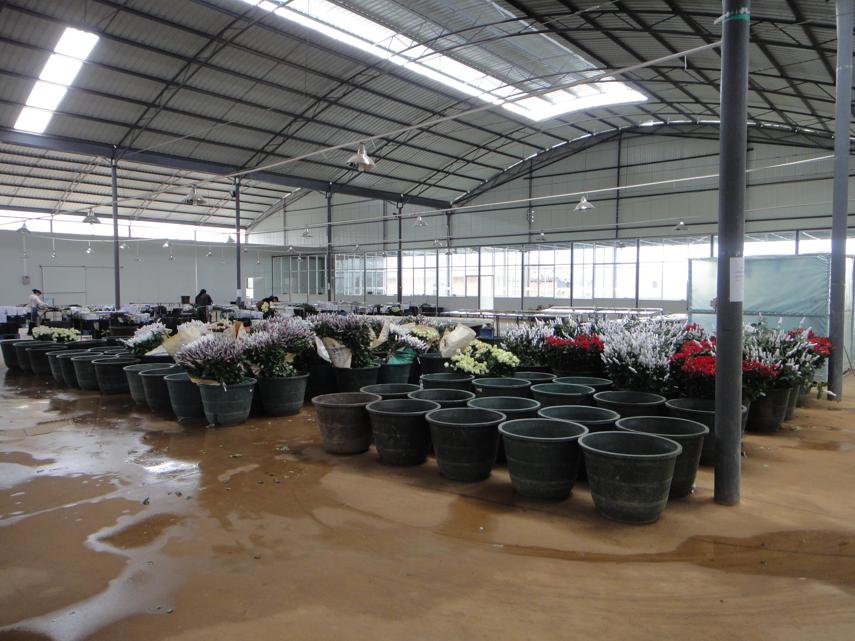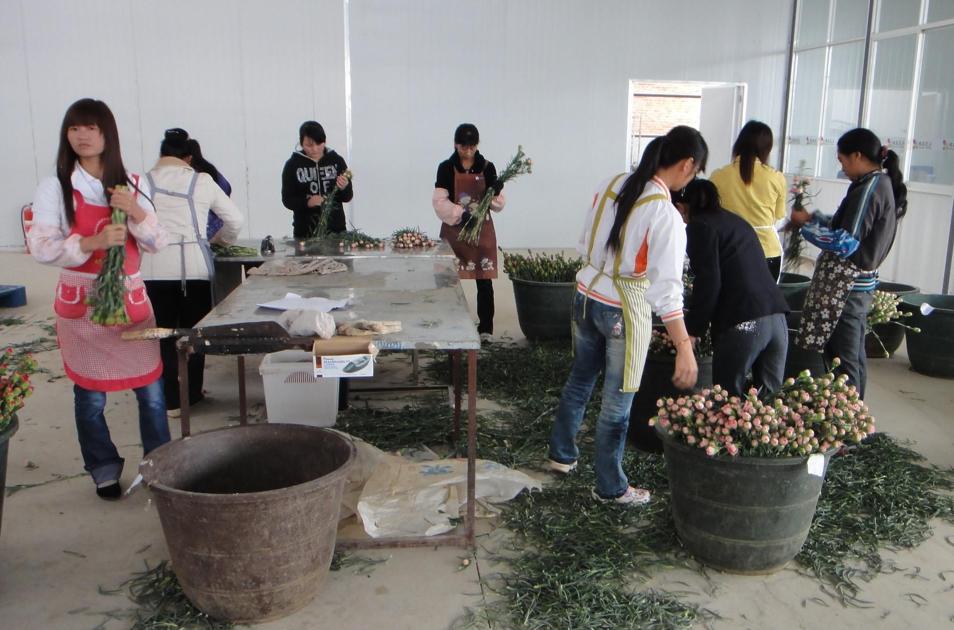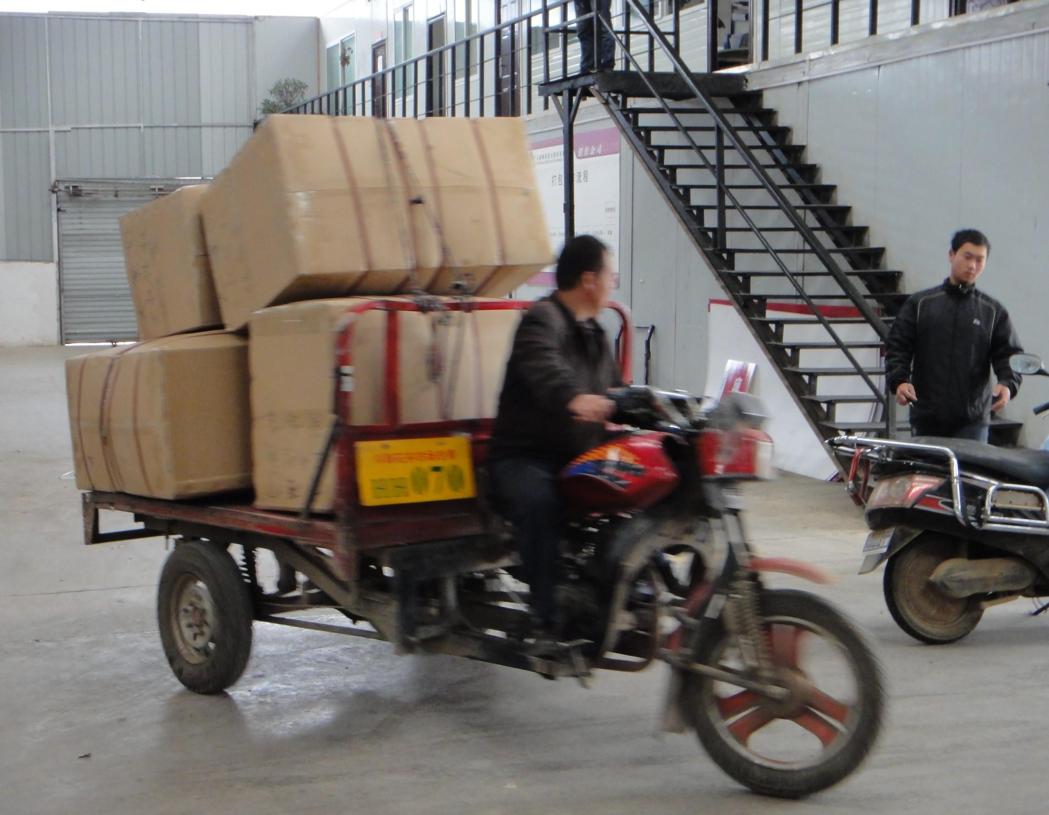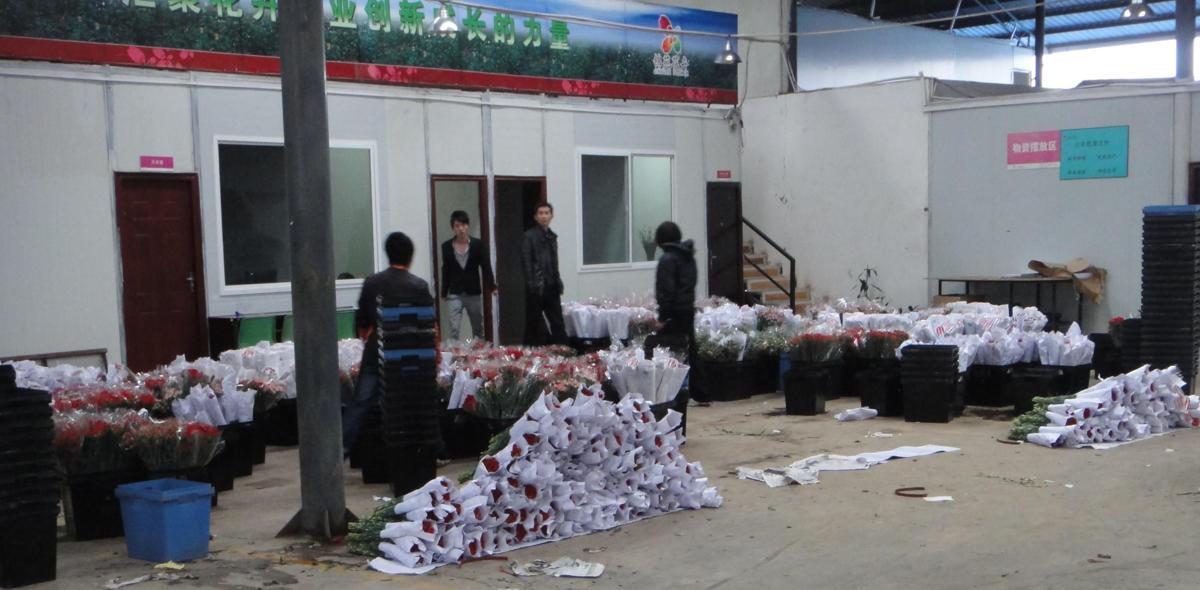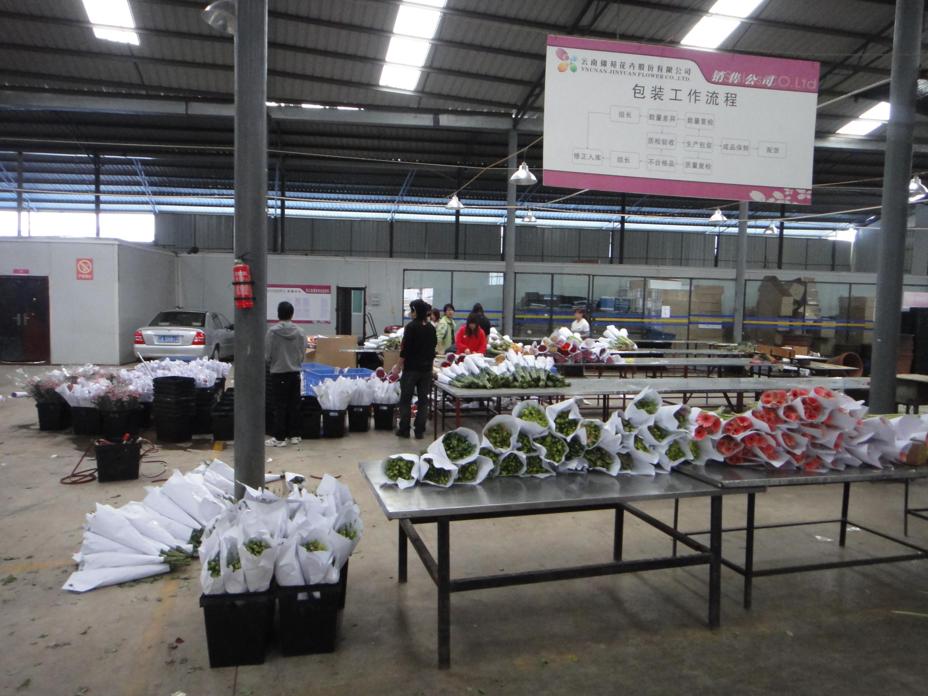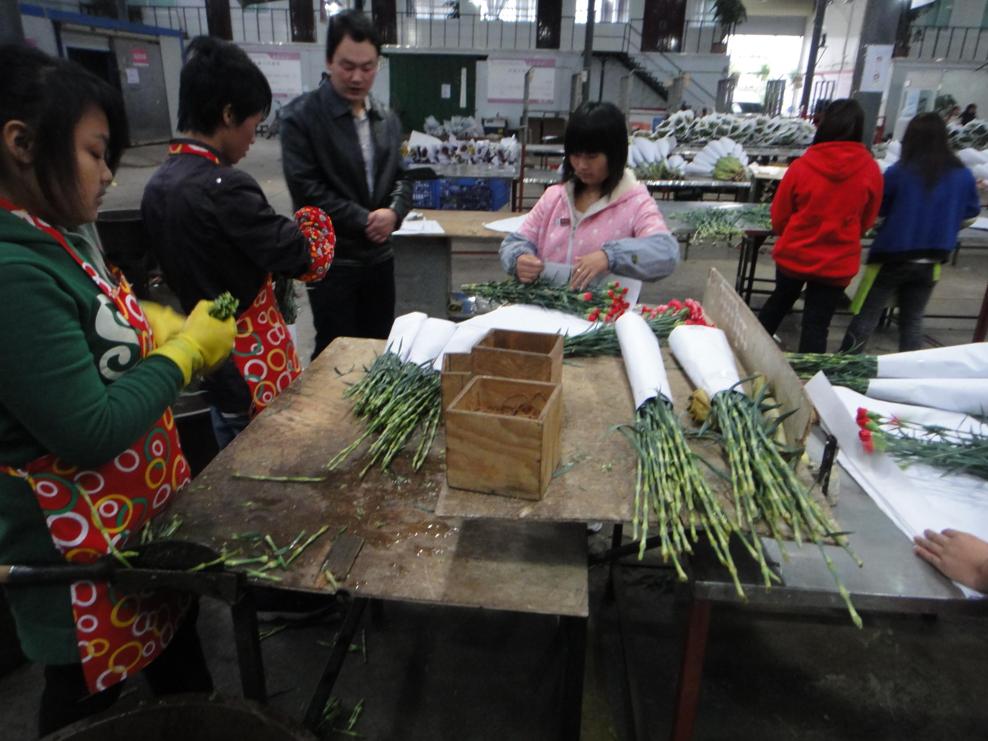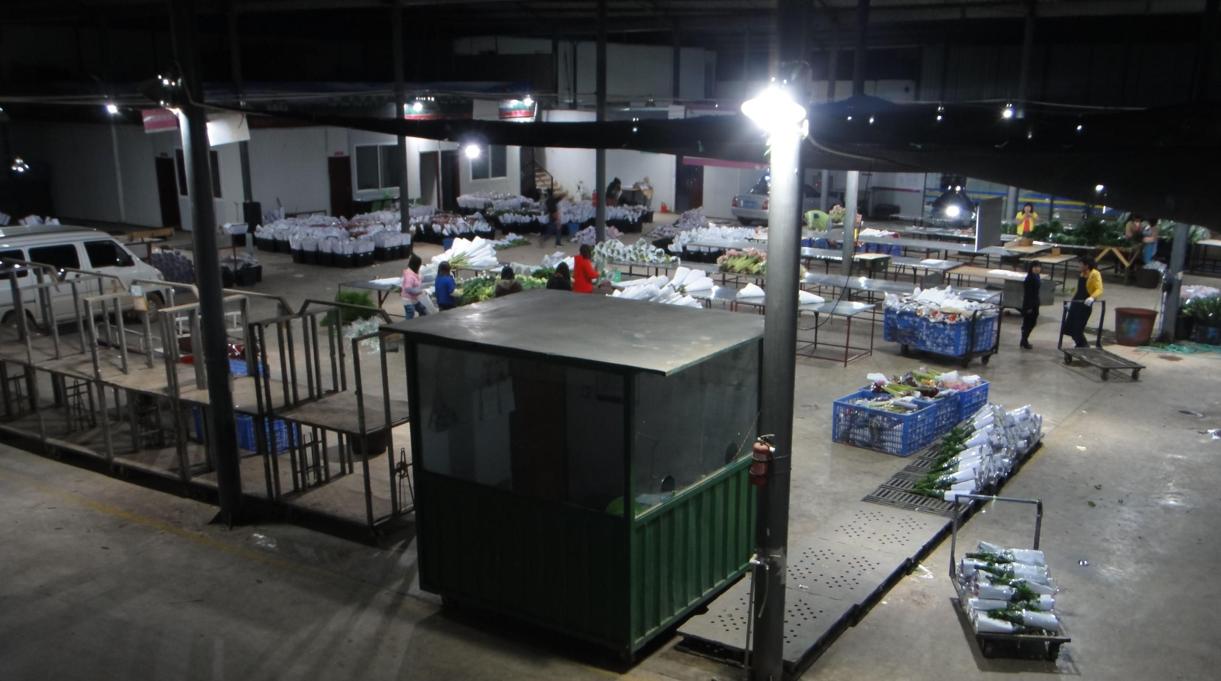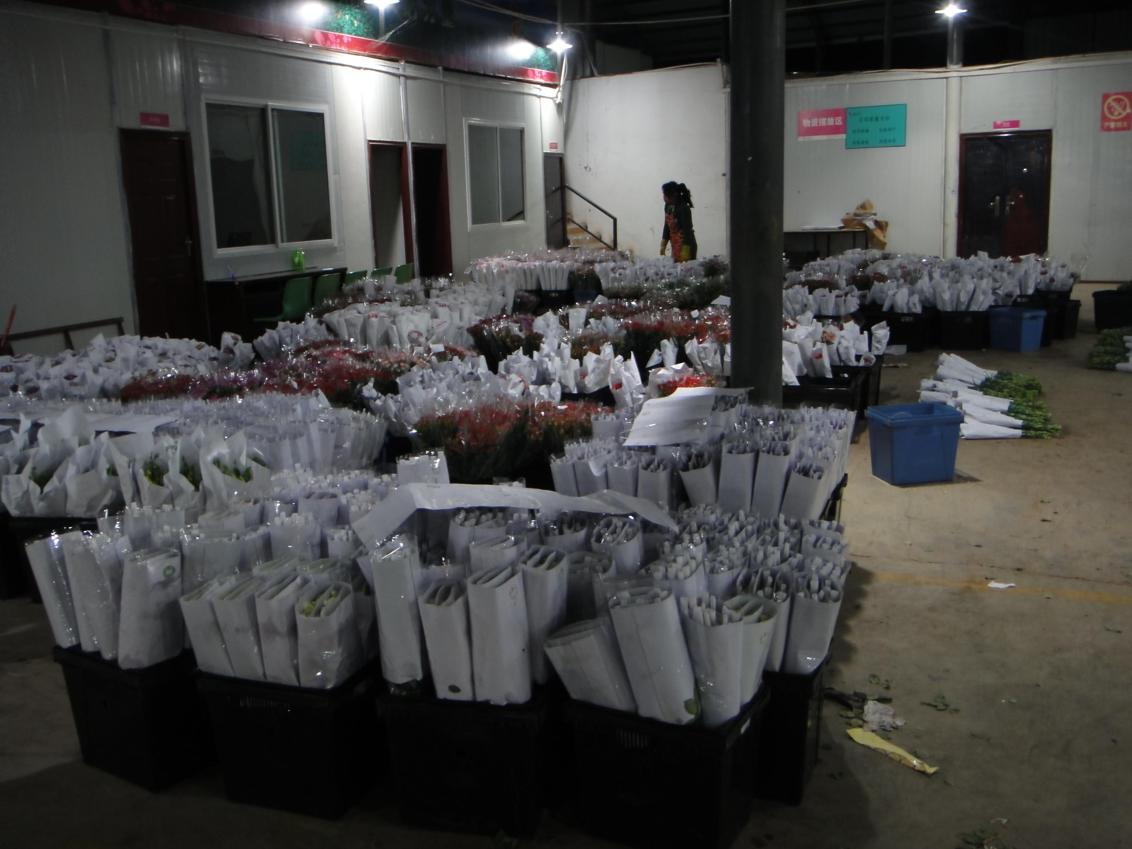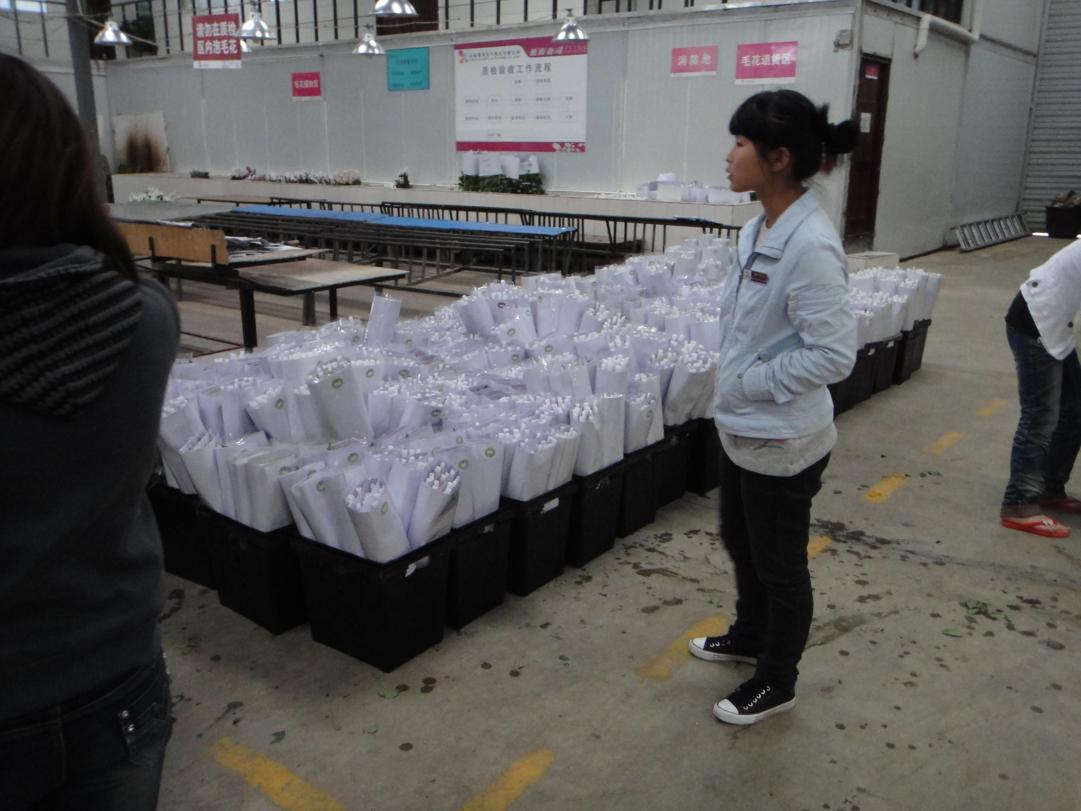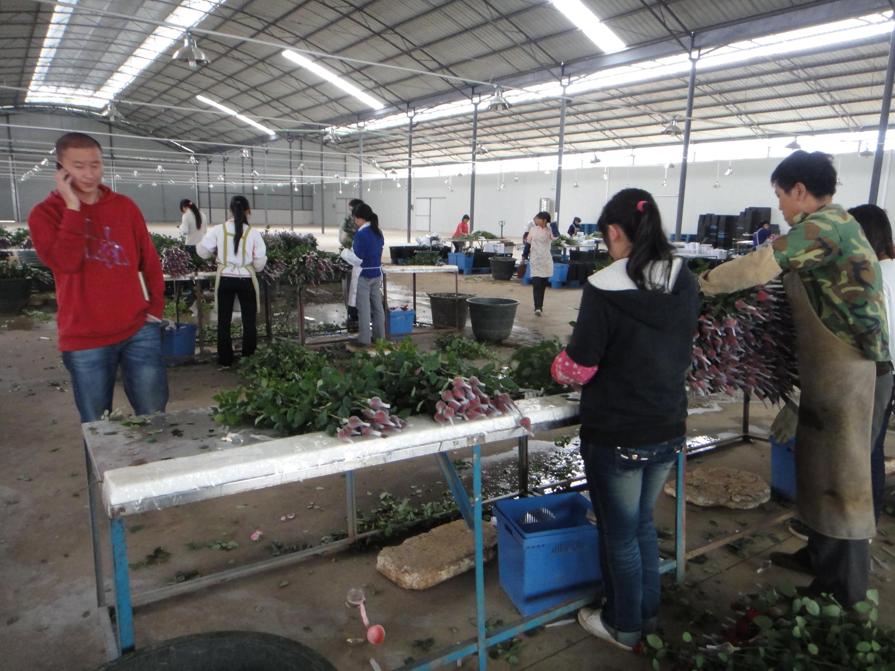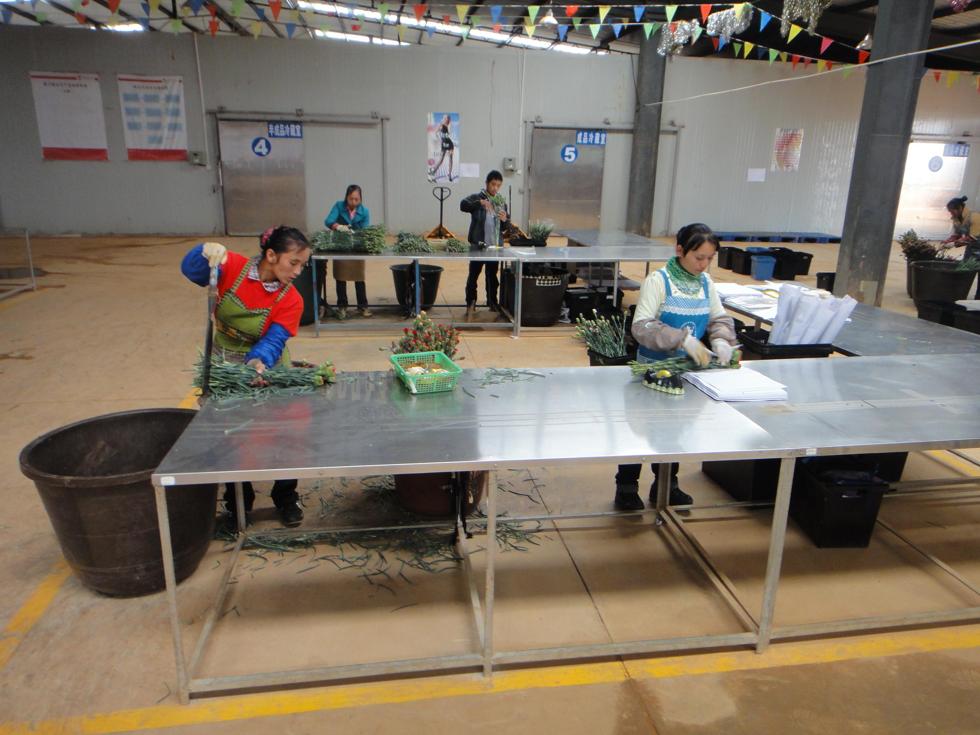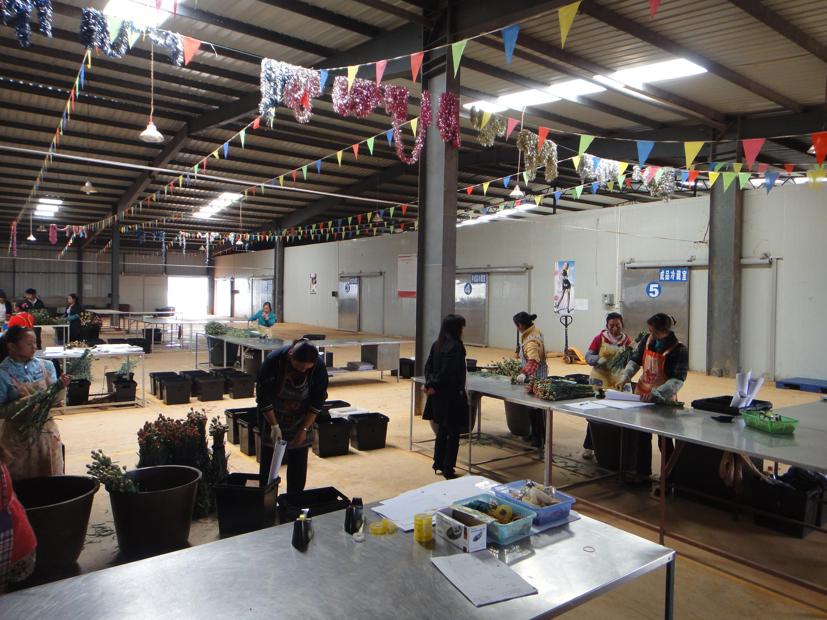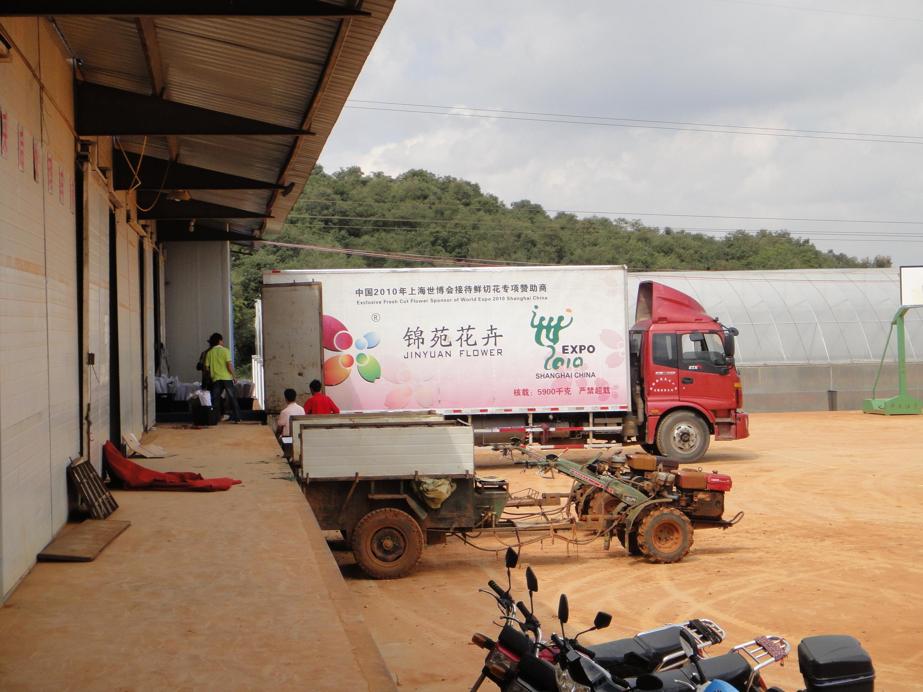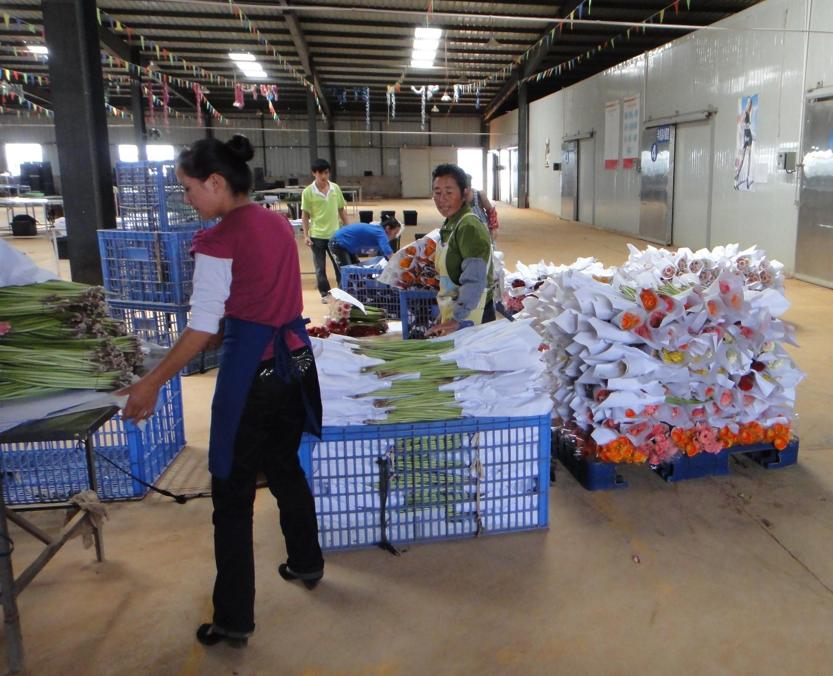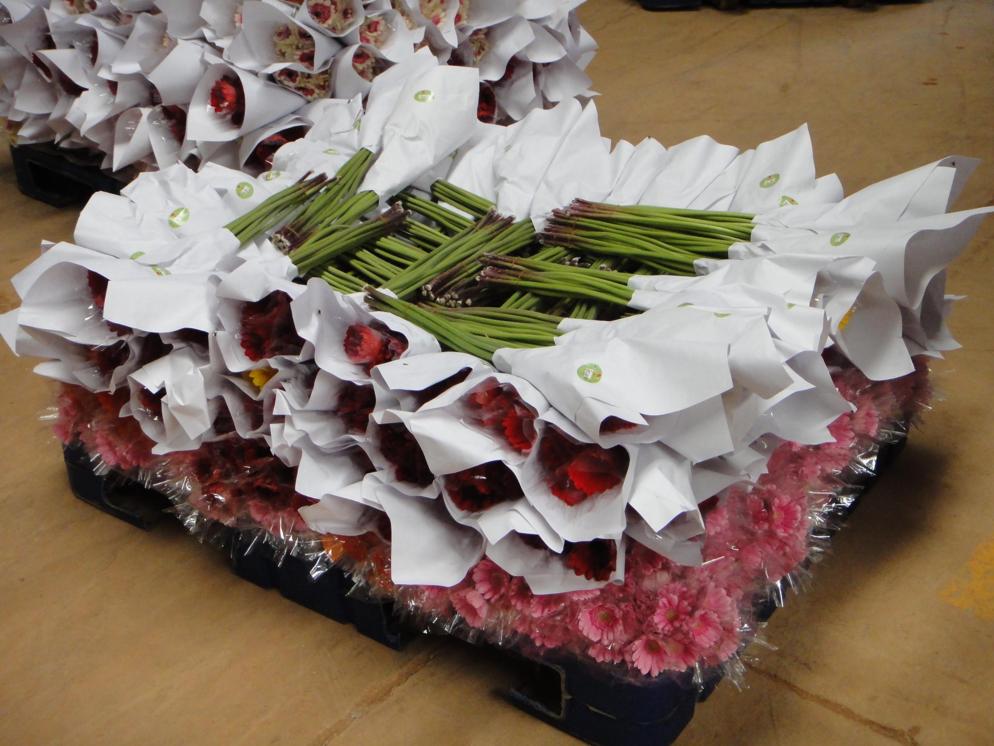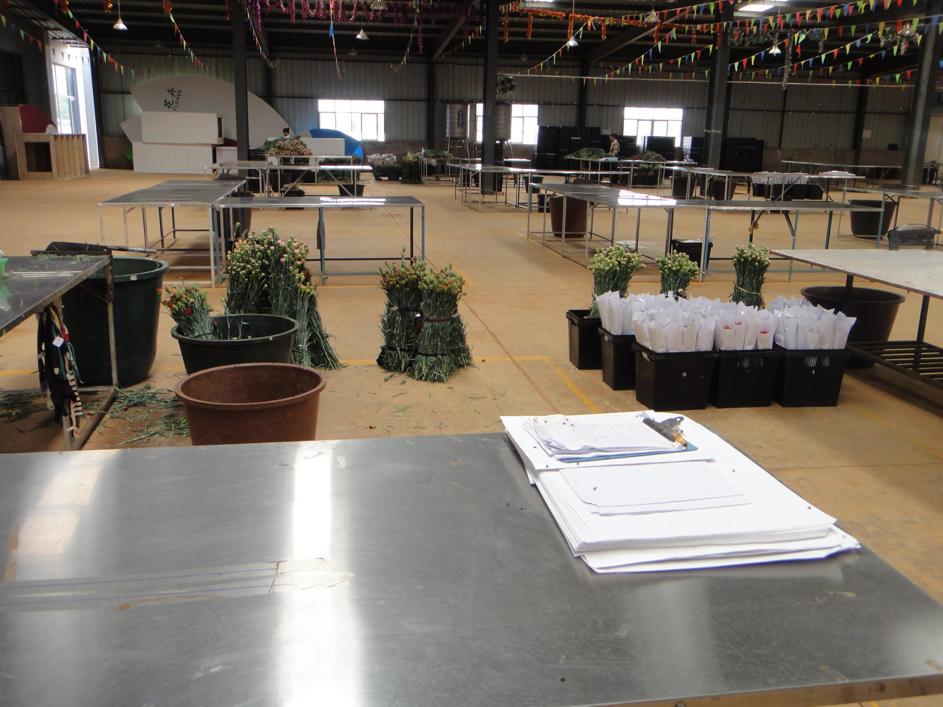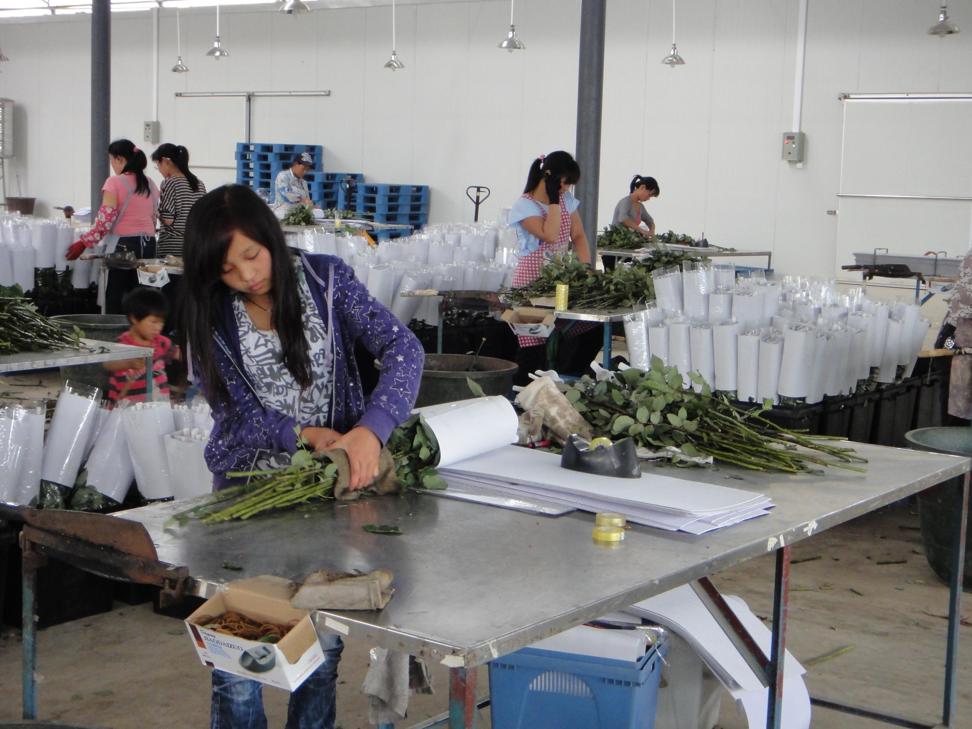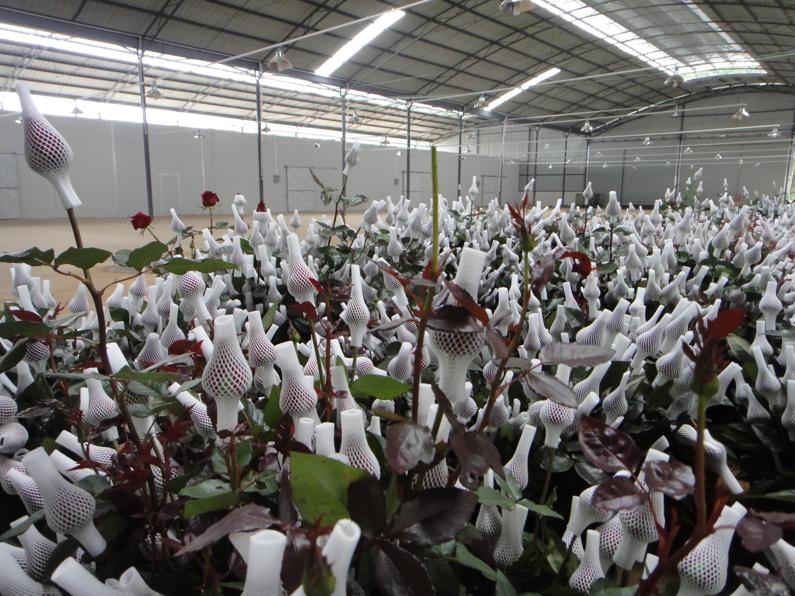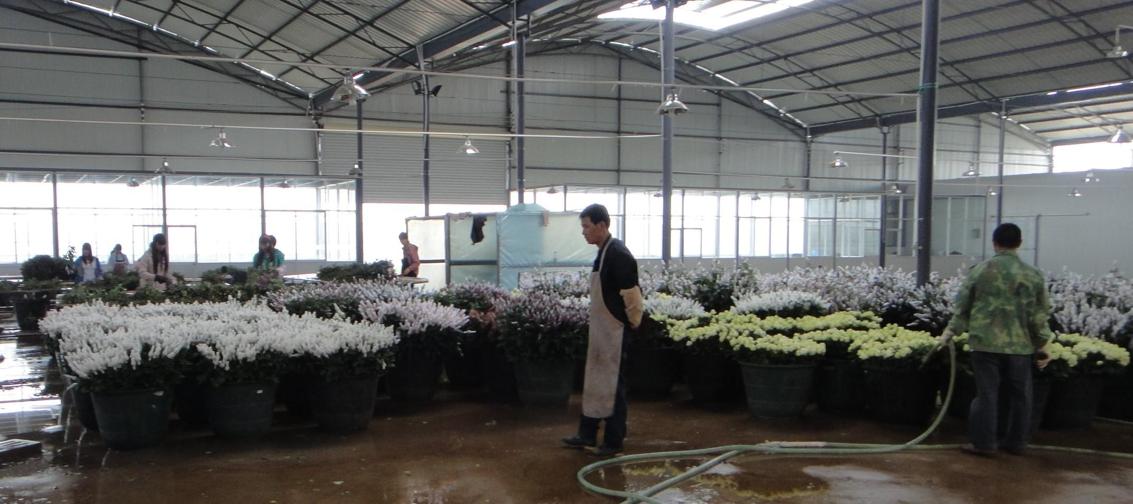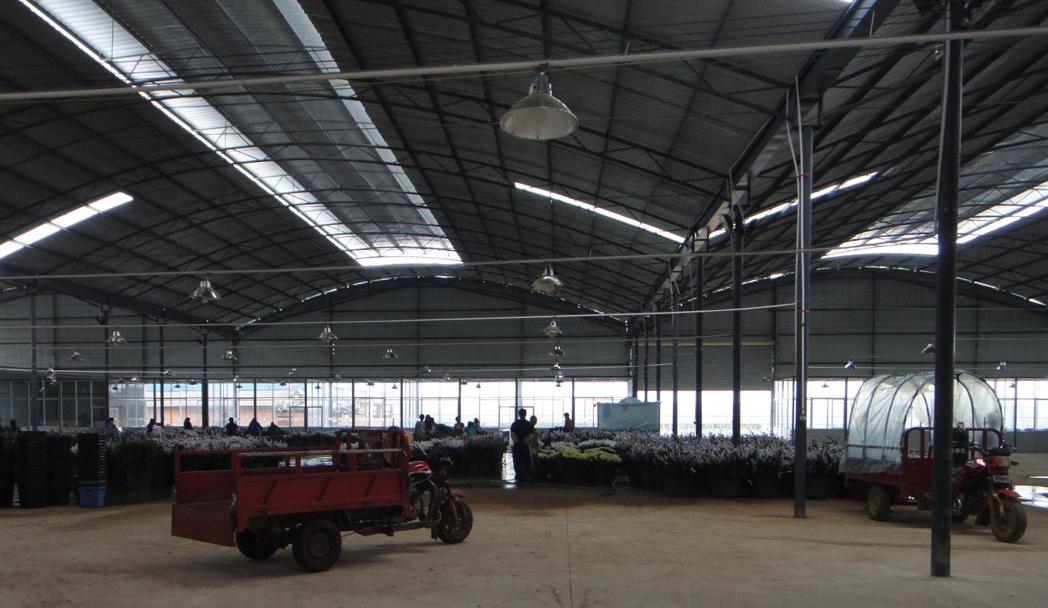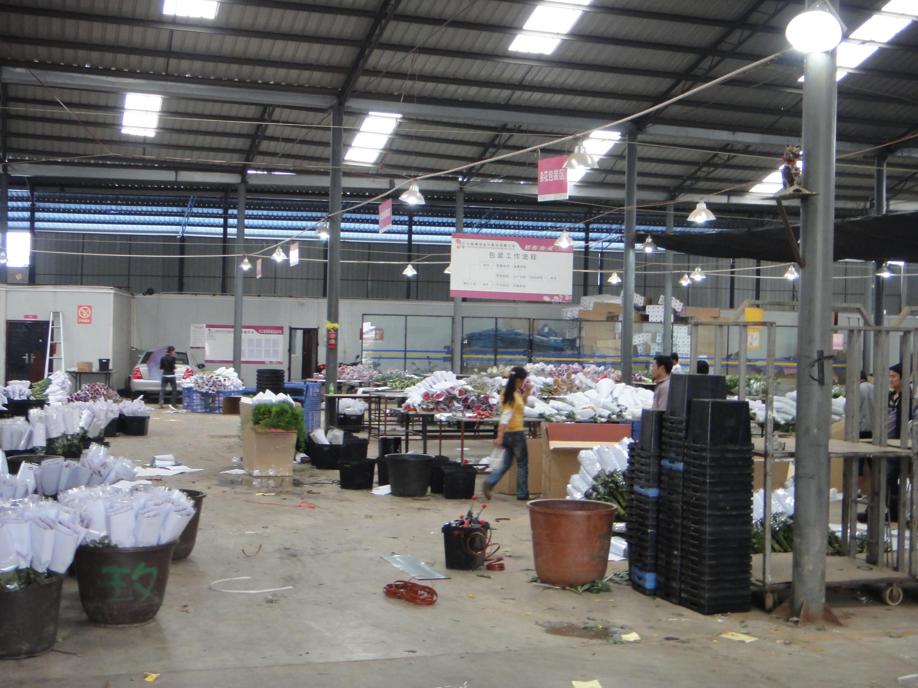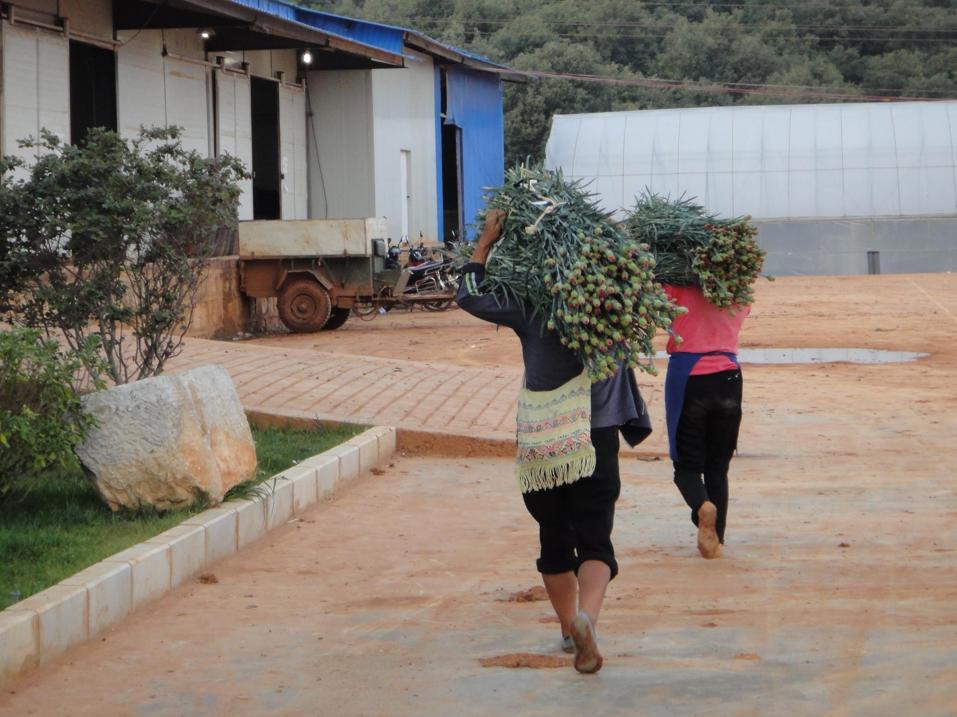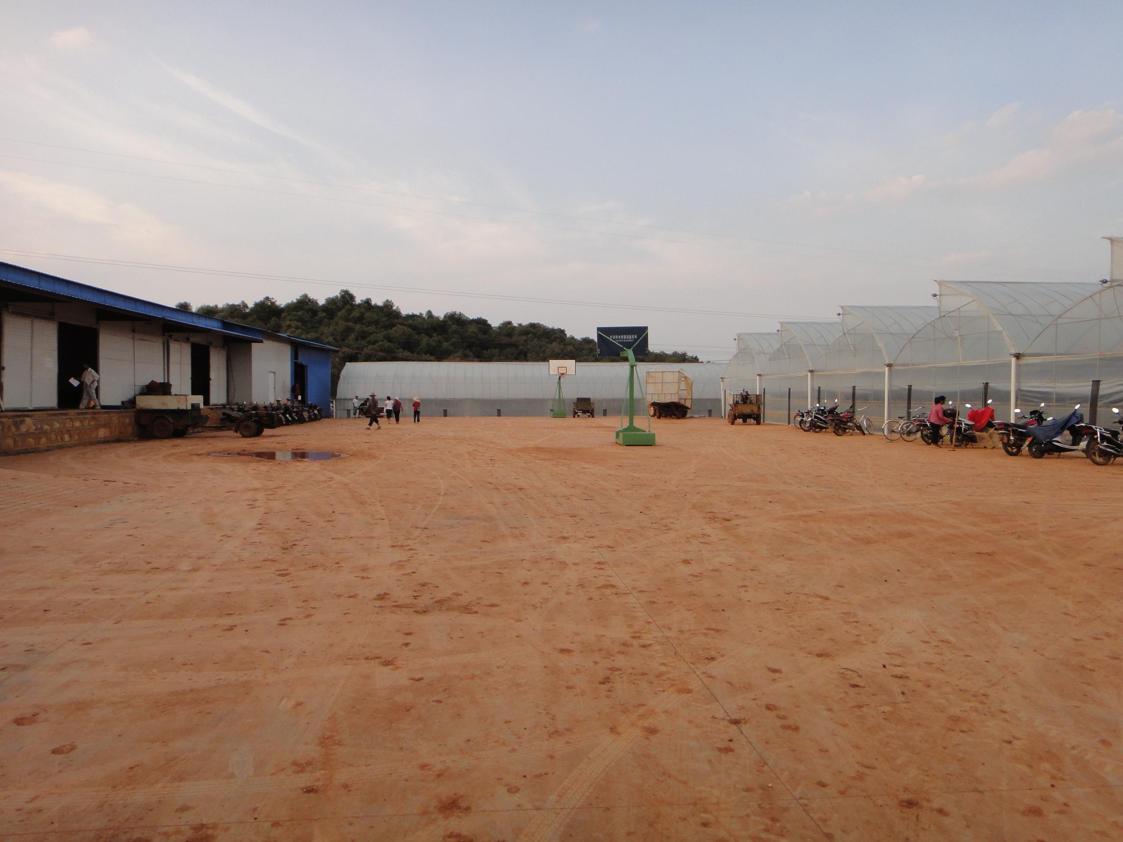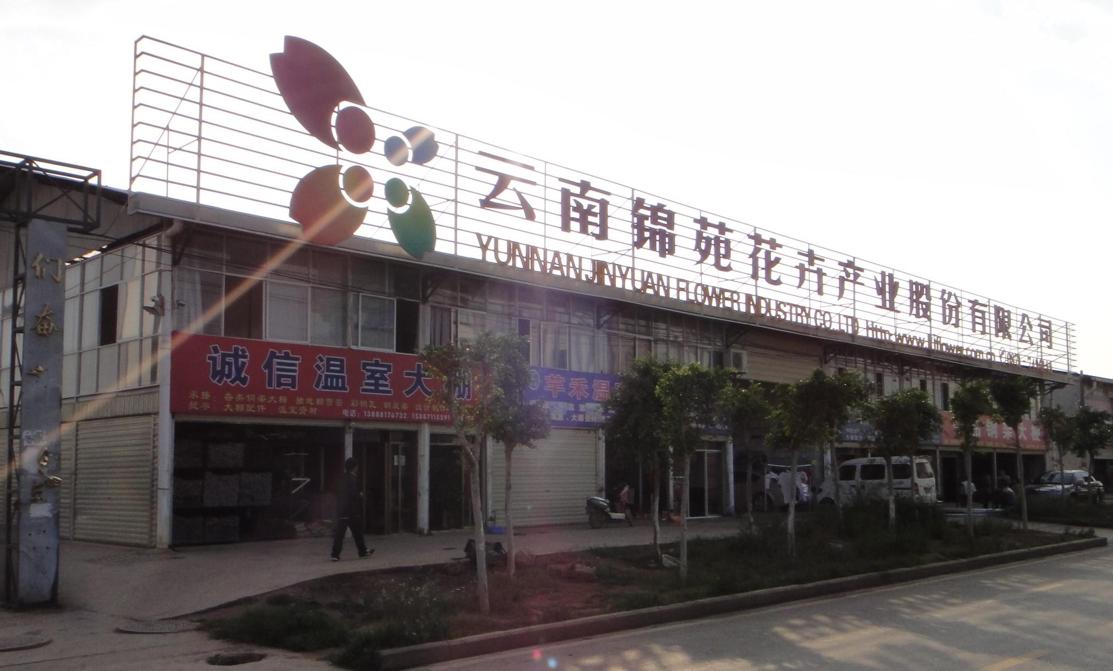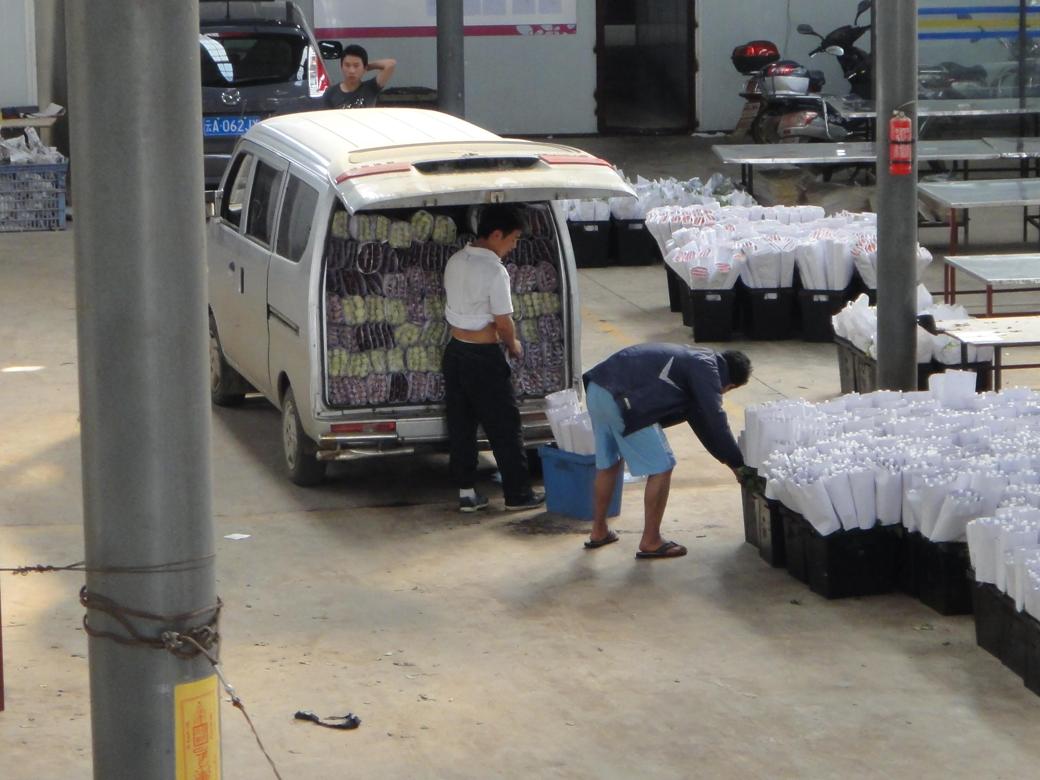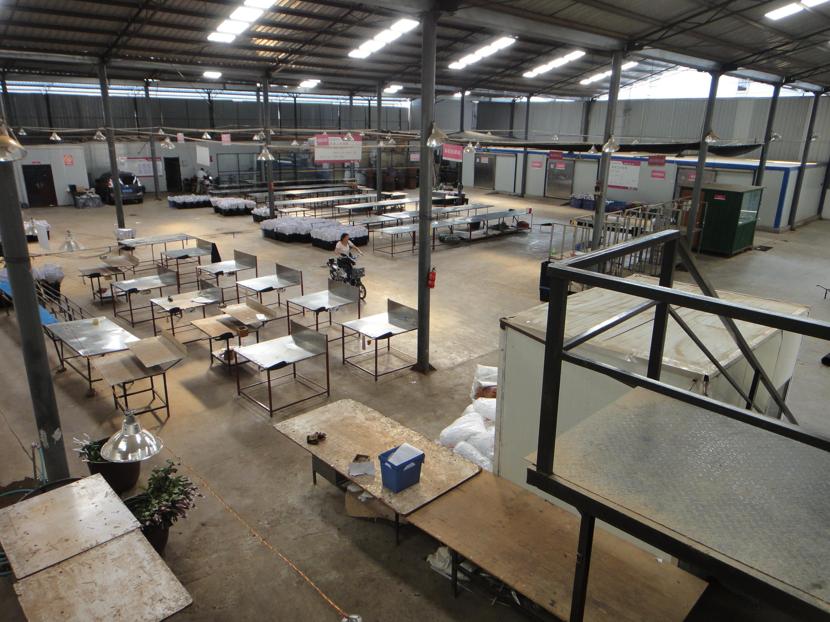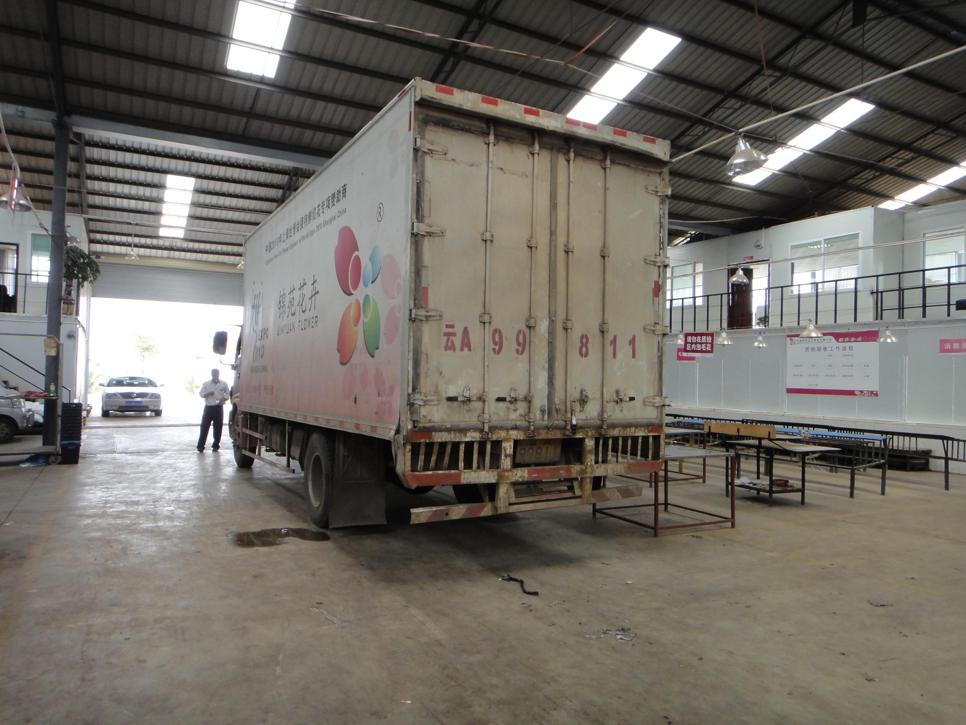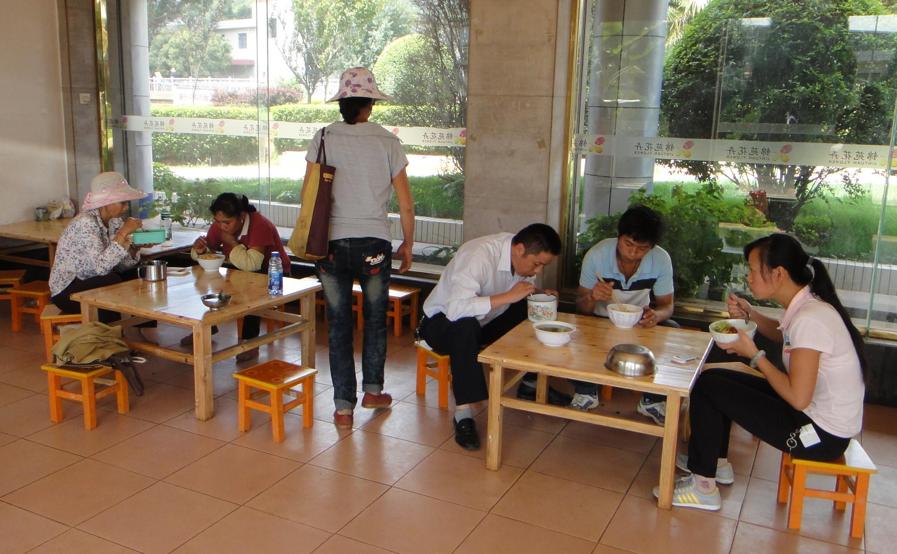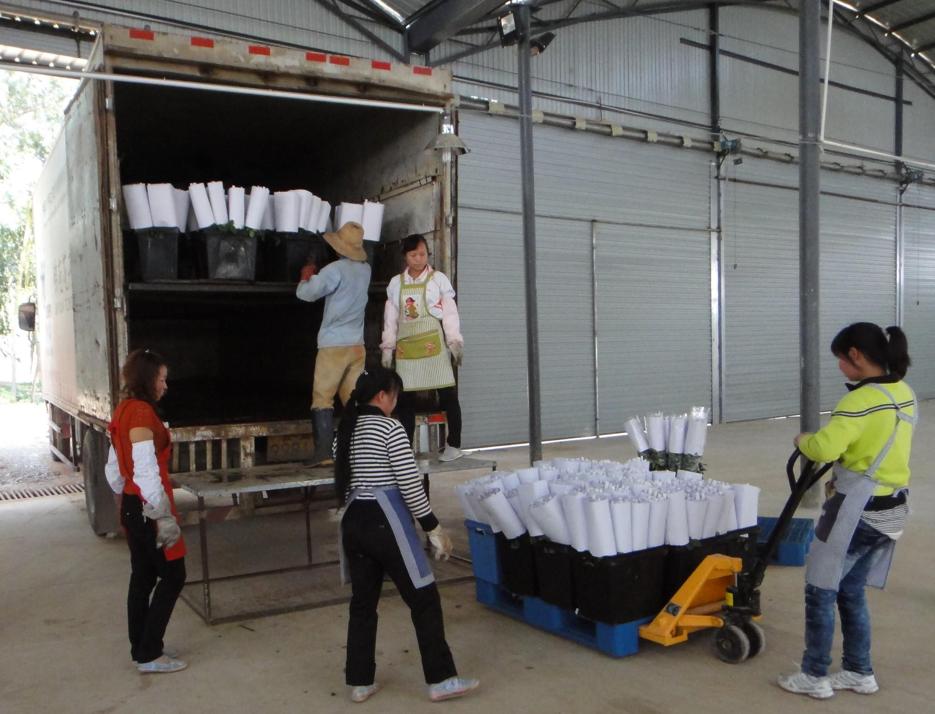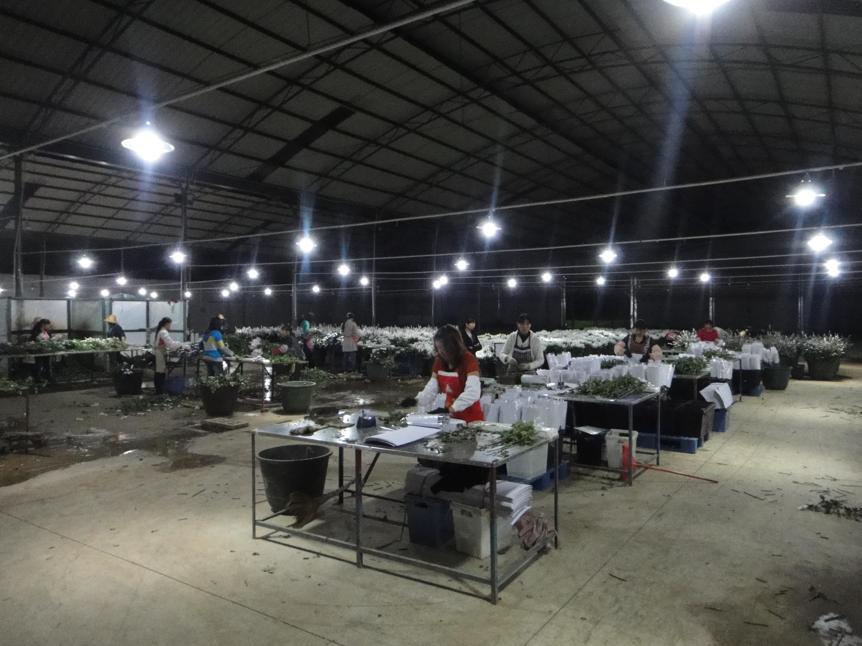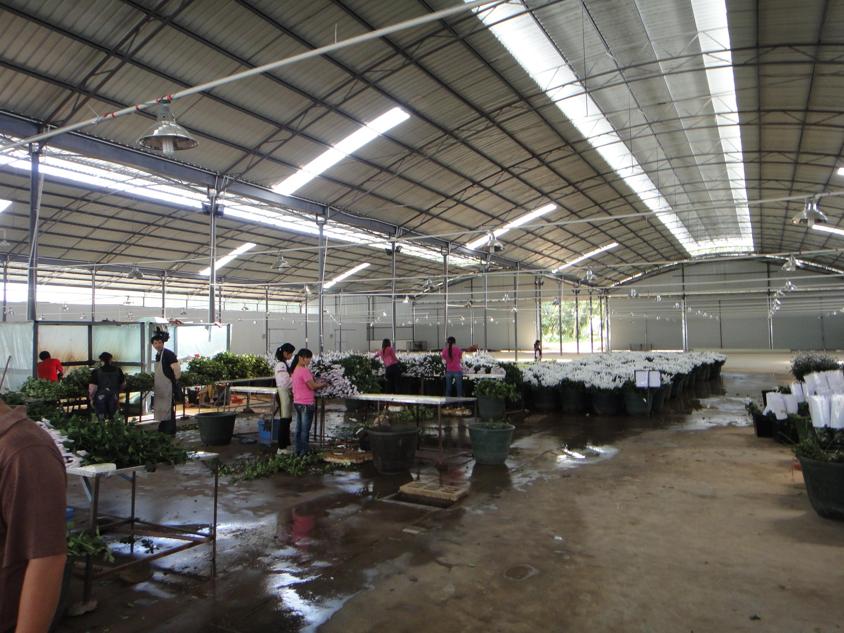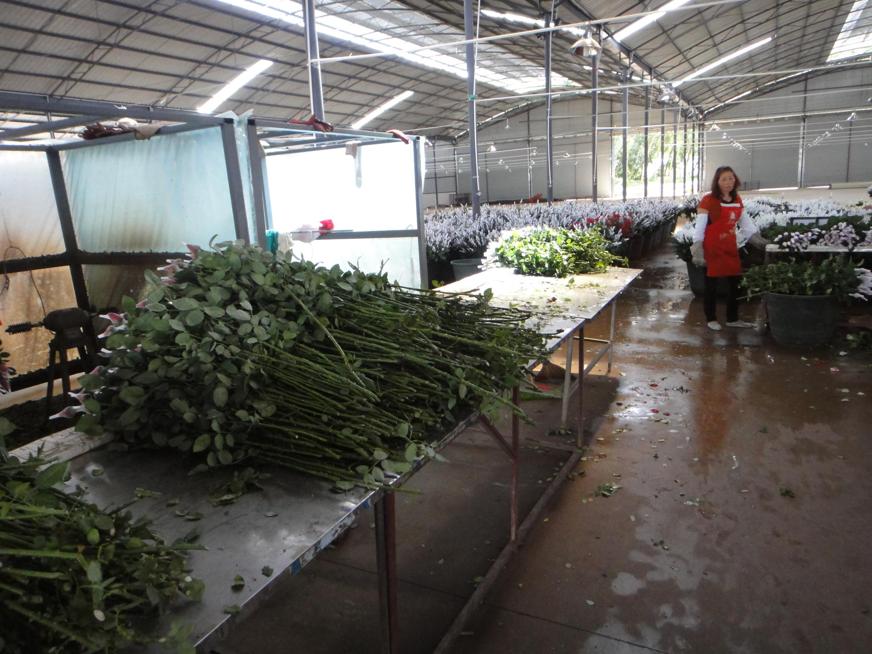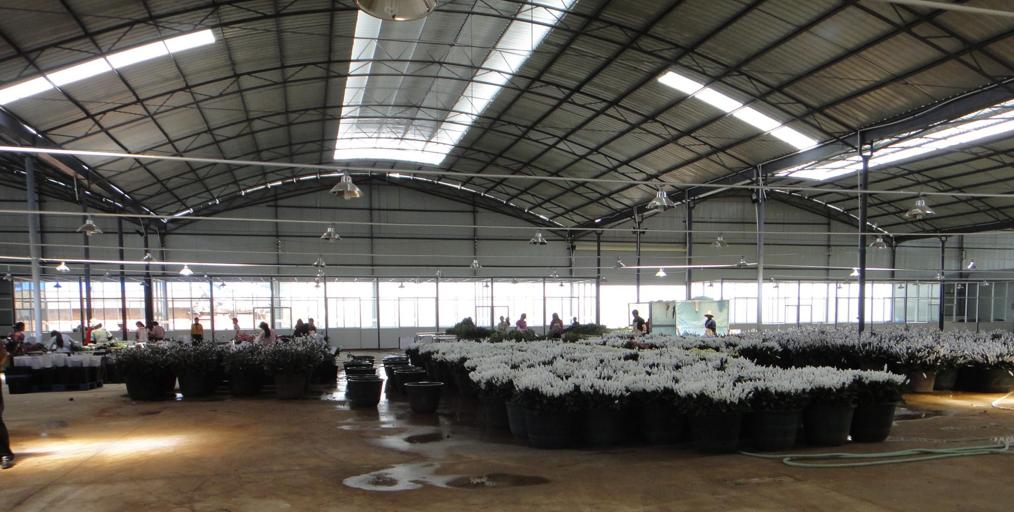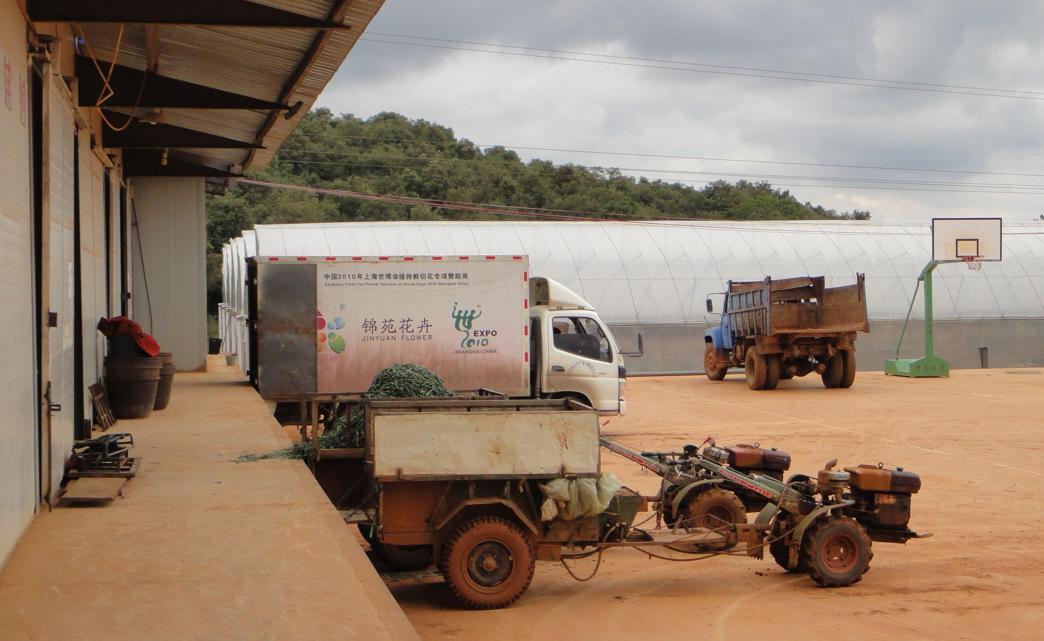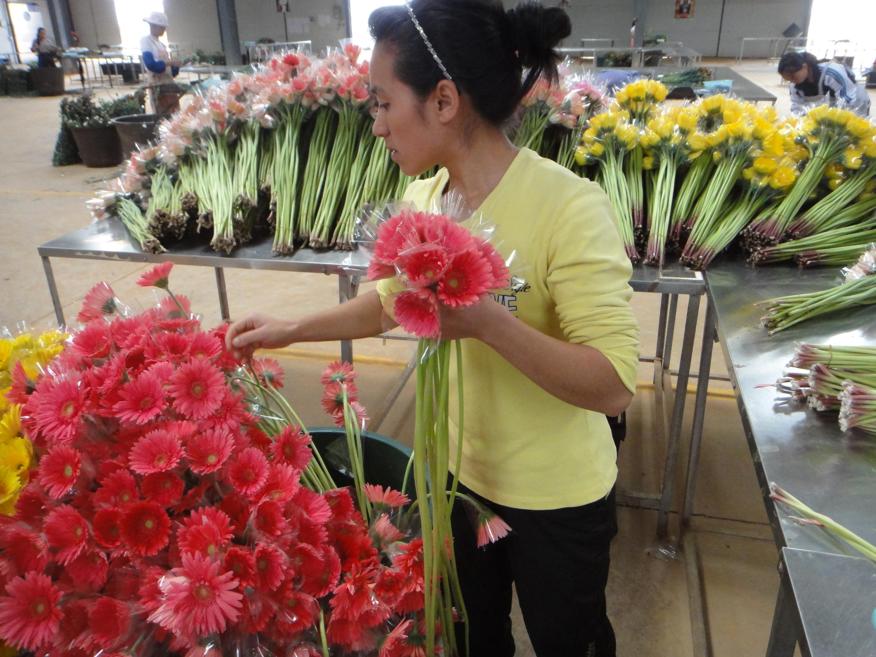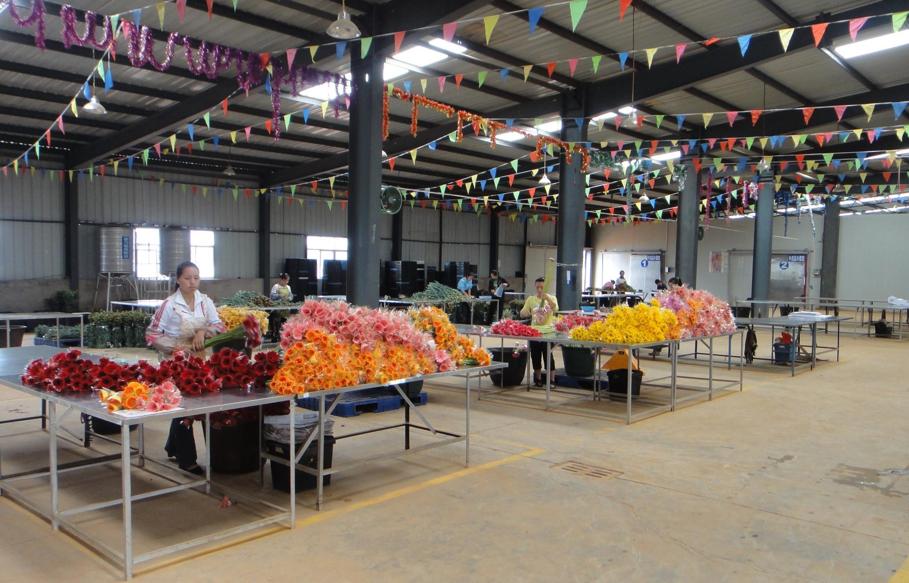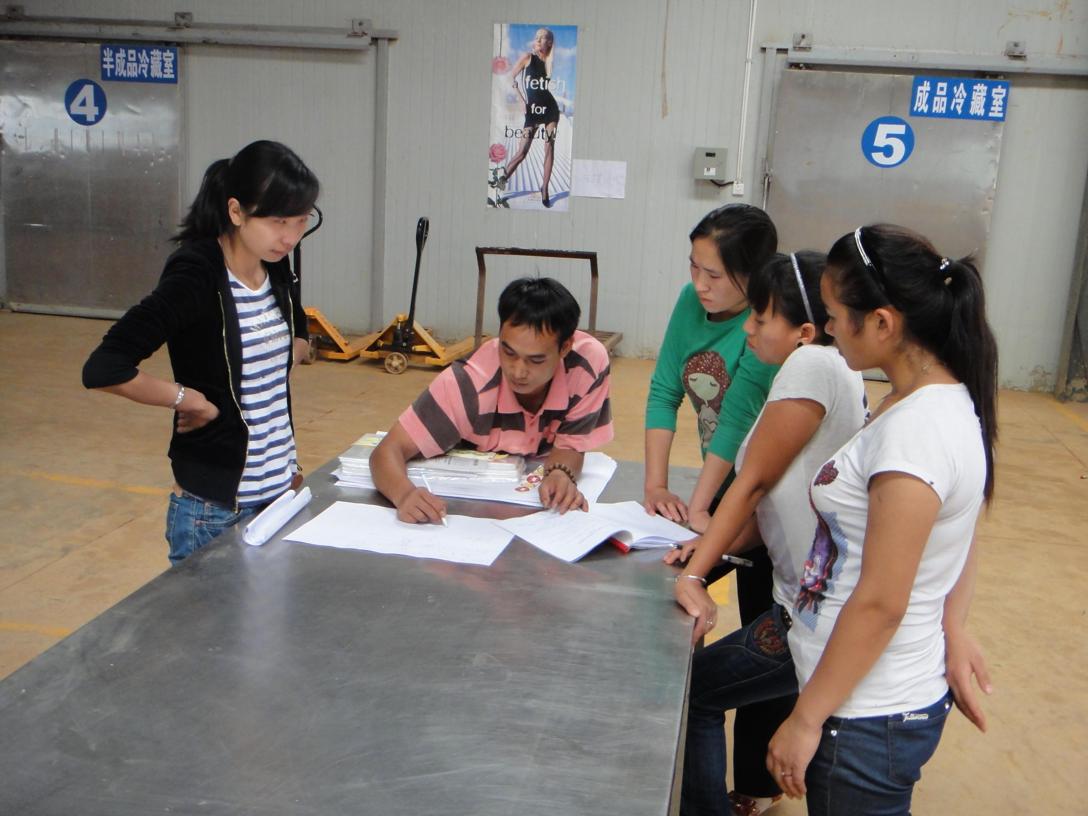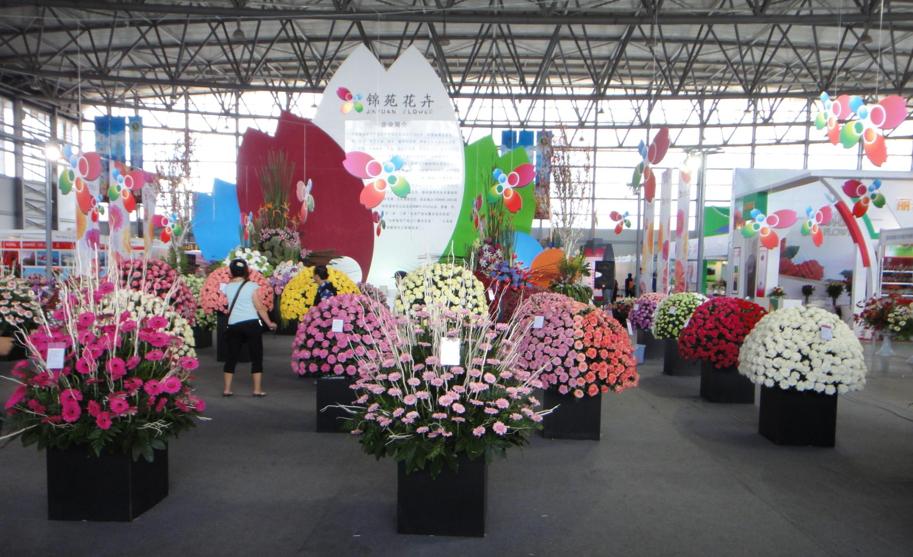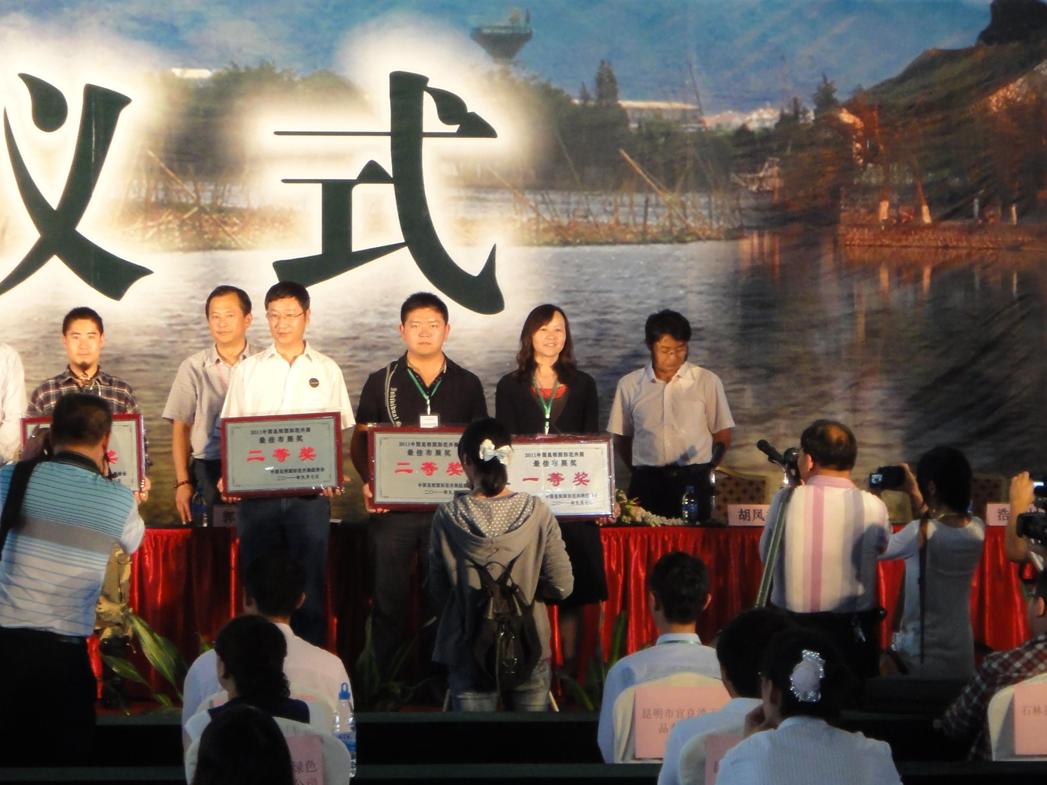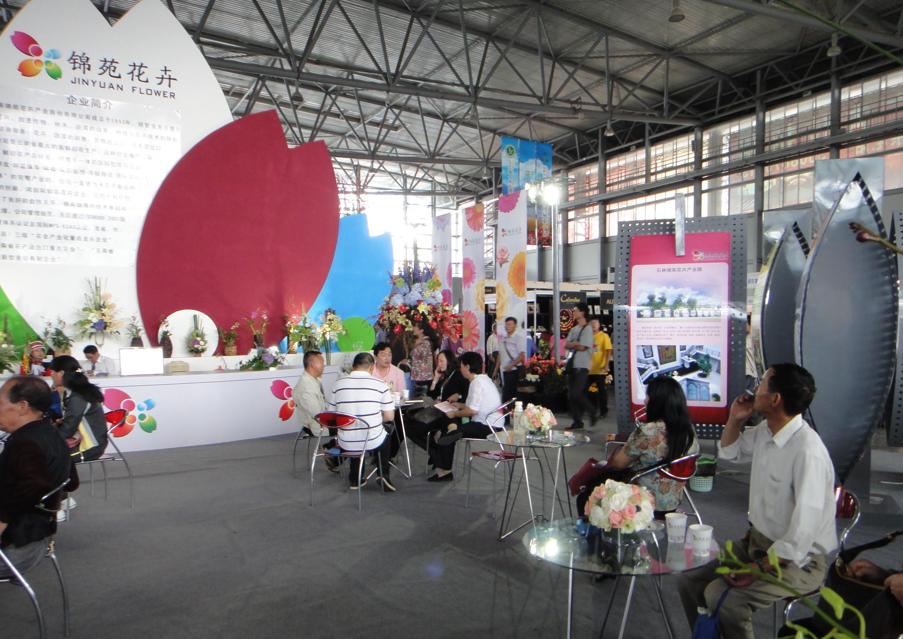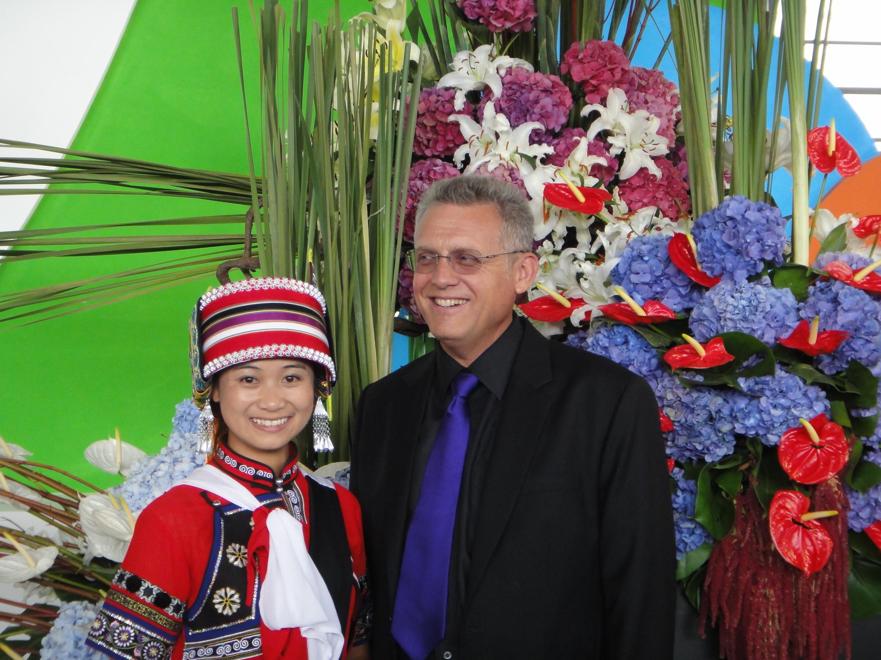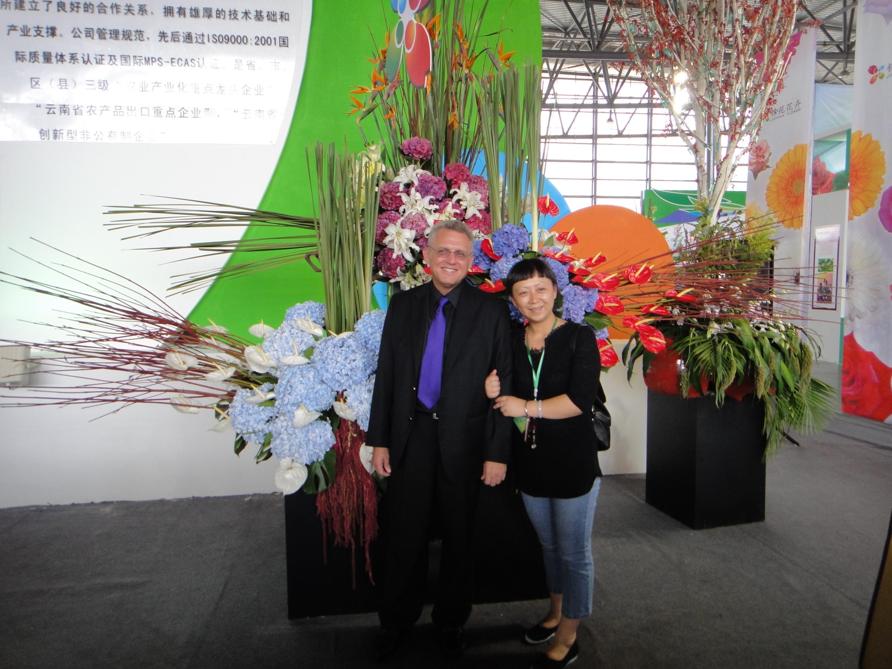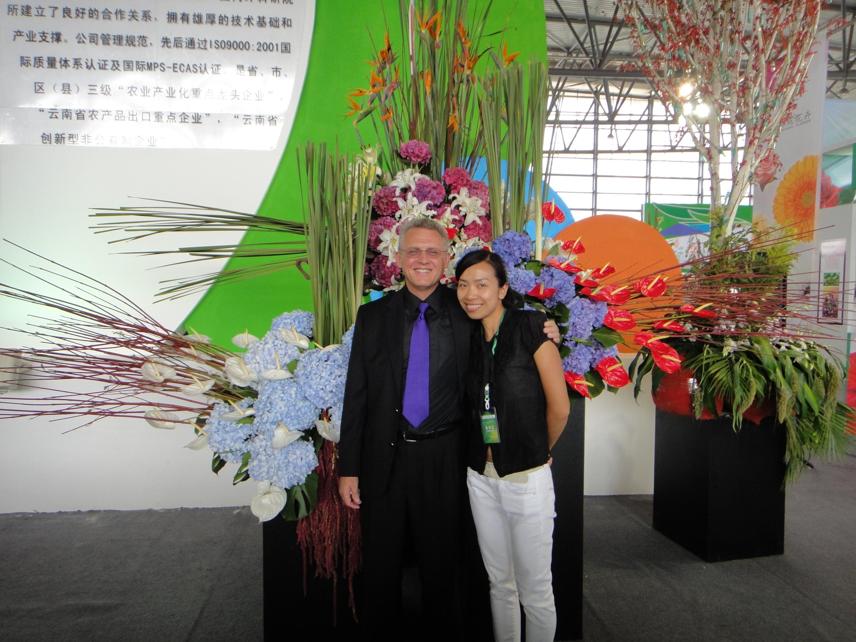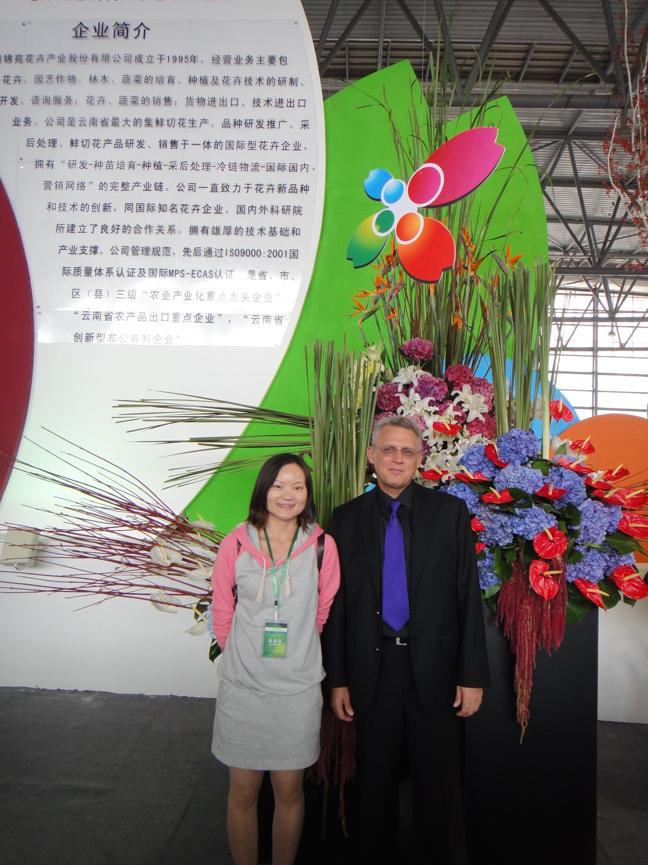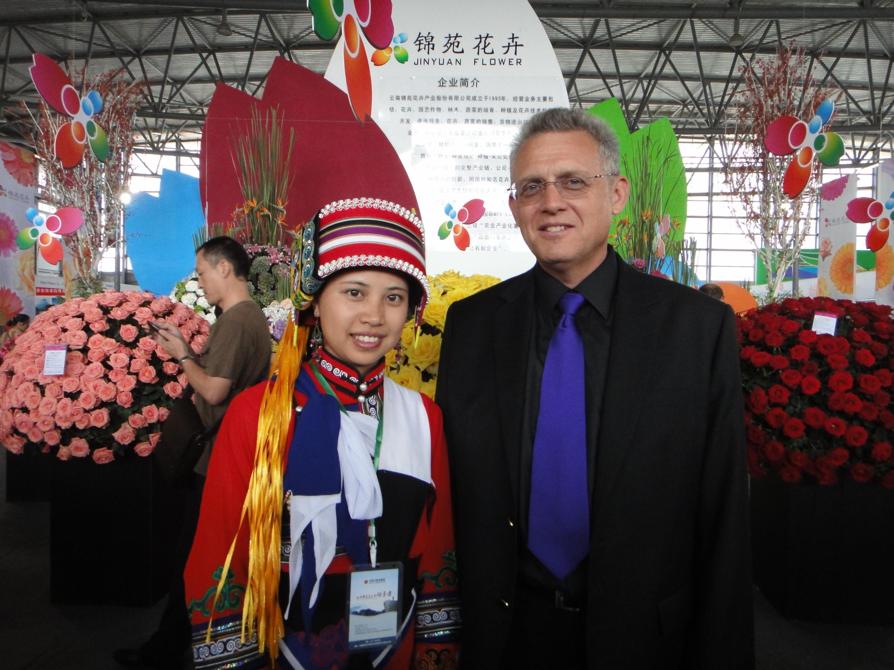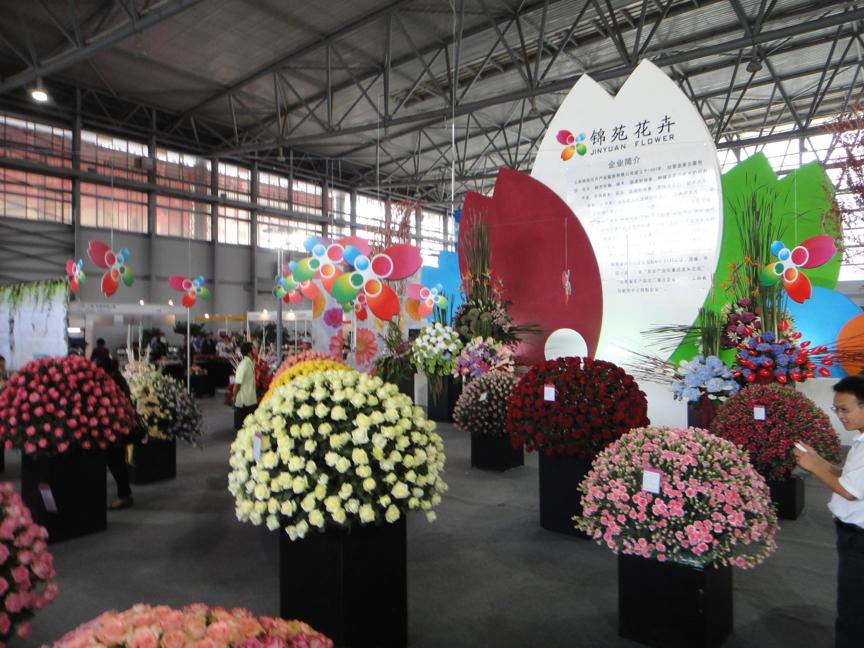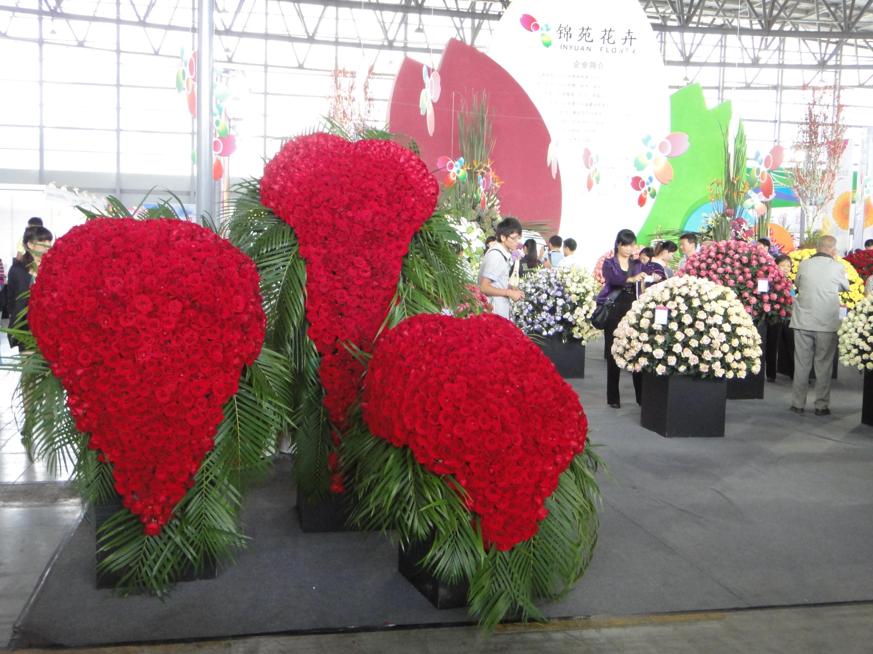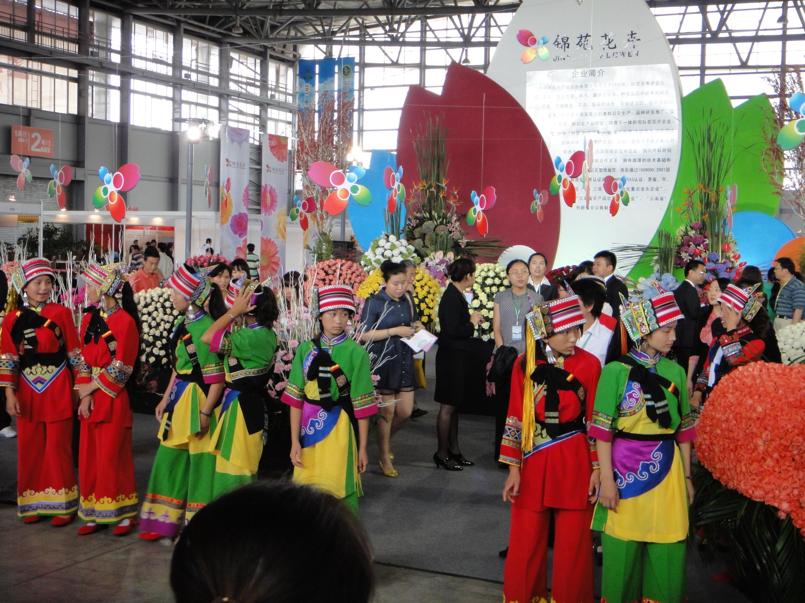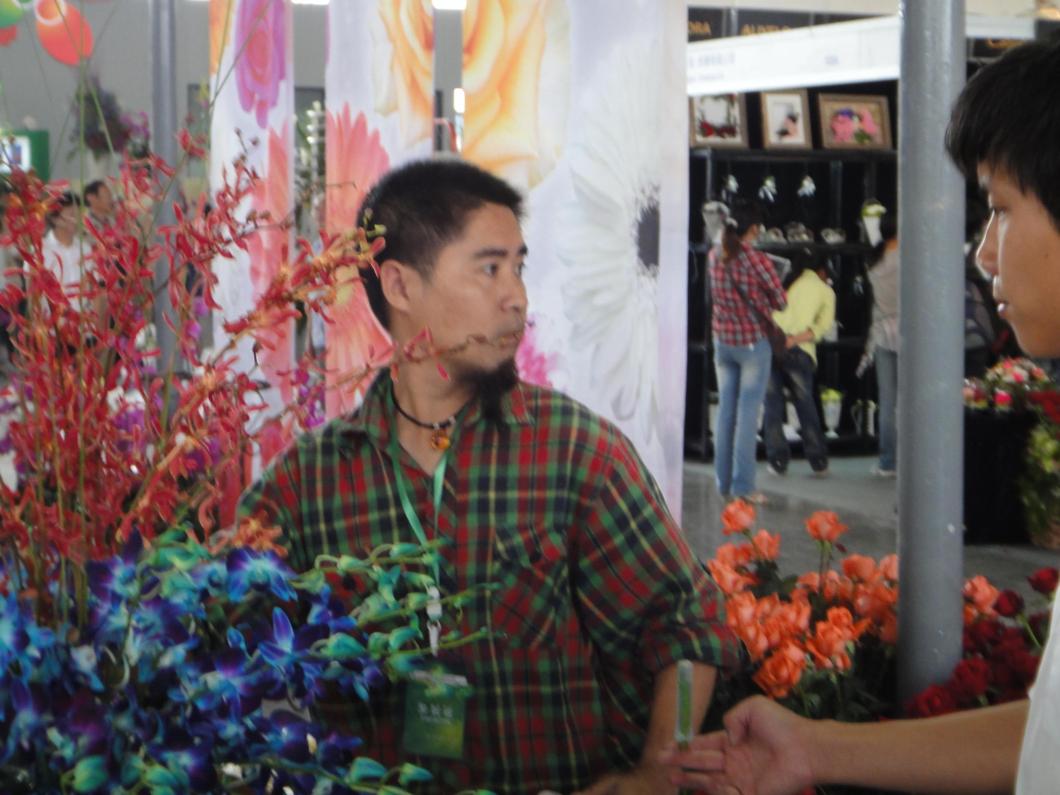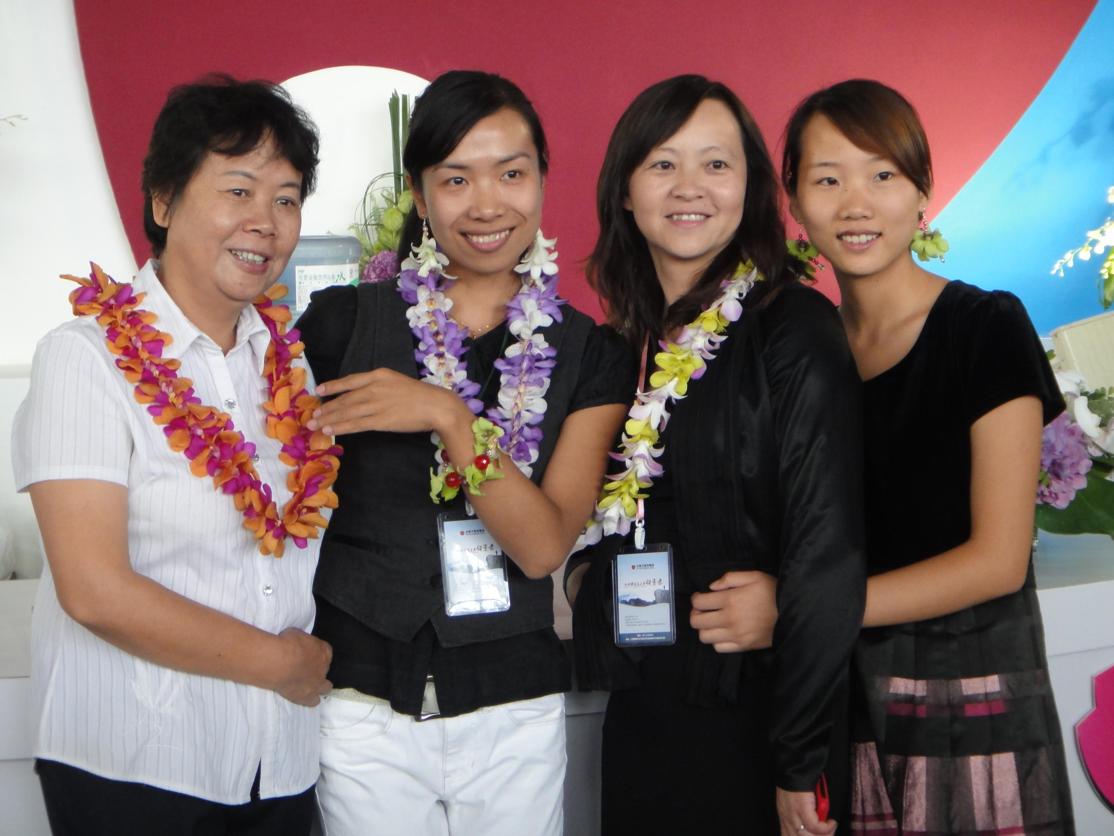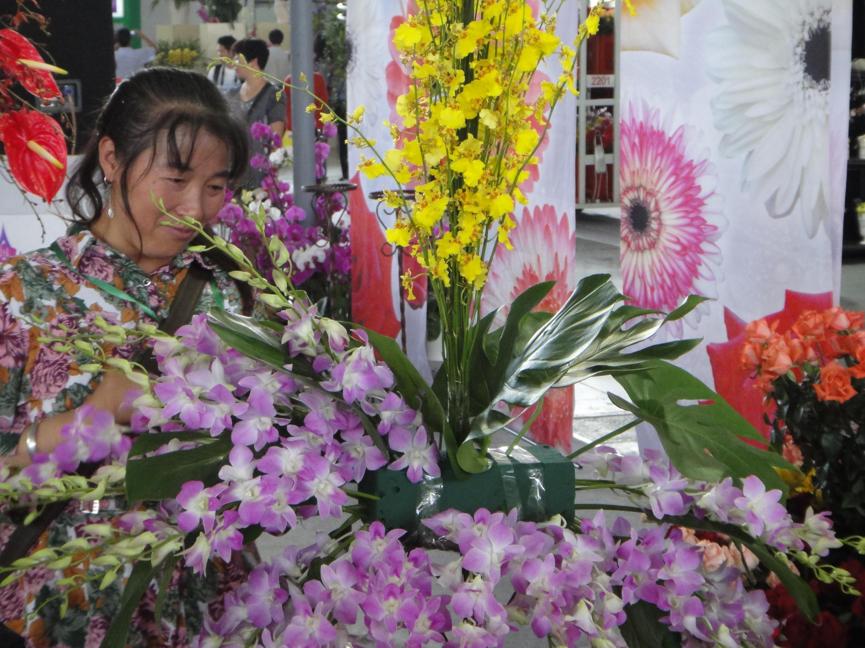Flower Business in China
My first foray into China while attending a conference for Chrysal Distrributors in Asia. We were in negotiation with Chrysal to become the primary distributor for Thailand. During that trip, I visited the largest flower market in China, Dounan, and several flower farms. The China flower business is centered around Kunming in Yunnan Province. They told me that Kunming was a city of 5 million people. I was impressed that it was clean and modern. But, the most significant comment that I remembered, was that Chinese people love America because we saved them from the Japanese in WW2.
In 2010, at the Chrysal Conference, I met a business owner from Hong Kong who had a bi-directional import/export business between Kunming and Bangkok. We visited each other’s business in Thailand, and she asked if she could bring a friend from China to see what our business looked like. At the time, we were looking into expanding our orchid export business into China – with its one billion people. So, I was happy for an opportunity make a connection in that market.
Within 30 days, that business owner arrived in Thailand, and came to visit our Packing House. After a tour of our facility, he told me through an interpreter that he was very impressed with our facility, saying that it was clean enough to eat off the floor! (Our main production room was only 4,000 square feet, and we had one or two people continuously sweeping, and there was a thorough cleaning after every work shift. Most flower processing facilities in most countries are not cleaned well, and have debris from flowers on the floor throughout every work day.).
After touring our facility, he invited me to visit his flower business in China, with a vague suggestion of some kind of joint business between us. We agreed that I would visit China two weeks later.
I flew from Bangkok to Kunming, not knowing who would meet me at the airport, and hoping that they would have a suitable translator for me, as I spoke no Chinese.
After arriving, I was treated exceptionally well. I was treated to meals at upscale restaurants and taken to visit several tourist destinations. But, the essence of the trip was to tour their facilities. After the tour, the Director of the Company asked if I would be interested in working as CEO. He claimed to want to improve quality and service and to expand exports to other countries. I requested time to consider the offer after returning home to Thailand.
The next step was to return to China to interview their staff individually. I wanted to get some insight into how employees thought of the company, and what they would think of an American who could not speak Chinese working as their CEO. I made another trip to Kunming a few weeks later for this purpose. With favorable results from the interviews and discussions, I decided to accept the position as CEO on a trial basis.
After two weeks in Thailand to prepare for the change, I returnd to Kunming to undertake the improvement and expansion of a company with 400 employees.
My initial interest and position in the company was in Operations – what the company was actually doing, and how I could raise their standard of performance. So, financial management was not a priority at that time. I knew little of the financial position of the company. I expected that to come later.
The company, Jin Yuan Flower Industry, had several operating locations. There were two large farms, in Shilin and in Anning, with a third in the planning stages. Also, there was a large operation in the Dounan Flower Market. The company headquarters was in a different location. In addition, they had a research and development division at another location.
At the Shilin farm, which is more than 100 acres, there was a three stroy office building with around 30 rooms. One room overlooking the farm became my sleeping quarters. My translator/assistant slept in the company dormatory, about a quarter mile away.
My initial assignment was to write a “Business Plan.” I understood my function as a Top Level Manager, so I developed an “Action Plan,” addressing all the deficiencies in the operations of the farm and post harvest flower processing. My objective was to make the company competitive in a global market. While not being an expert in flower farming, I had seen enough commercial flower farms in a number of countries, including China, to know a little about what they should look like and how they should run. I was more familiar with post harvest processing, office systems and staff management. All of these areas were in need of improvement.
The pictures on this page do not show the deficiencies. They are just meant to give an idea of what the overall operation looked like.
The most impressive aspect of this operation was its size. There were two very large farms, each in the range of 100 acres. But also, each farm had an office building, a canteen (serving lunch for workers), a dormitory, and a post harvest processing facility (packing house).
The packing houses were large, open air warehouses – typical in the cut flower industry. It was my intent to improve both the facilities and the methods used for post harvest, including sanitation facilities and practices.
As I went from Division to Division, questioning, examining, evaluating, teaching, I began to notice that although I was treated well, I was not getting 100% cooperation, as I expected.
My translator was a young woman who spoke English very well, and helped me gain a lot of insight into the people I was working with. Every day, we would discuss strategy and the reactions from staff and management of the company.
Eventually, towards the end of the 90 day trial period, I realized that they had no intention to keep me as a CEO. What they really wanted was a foreign figurehead in the place of a CEO, and a written plan they could publish as a part of an initial stock market offering. Me, as a FAKE CEO was just the tip of the iceberg.
The company had hired their external auditor as Chief Financial Officer, to give credibility to their financial reports. As I gradualy discovered, the company was surviving on government grants, NOT sales of flowers. They had unpaid construction bills more than 30 months old. But, the worst part was that they were feeding the CFO false production and sales information, and she was not auditing it. The company was like an empty shell – pretending to be very successful.
As part of the pretense, the company had the largest exhibit in the annual regional agricultural exhibition. I sat in the VIP section of an awards ceremony, in which our company received an award. The company had a very strong reputation, but as I discovered, it was not earned through good performance, but rather through connections with, and approval by the CCP. (One Vice President was a CCP Party Member).
The experience in China showed me typical qualities of Chinese people, both positive and negative. It also gave me a little insight into the place the CCP has in daily life and in relations to large and growing companies.

